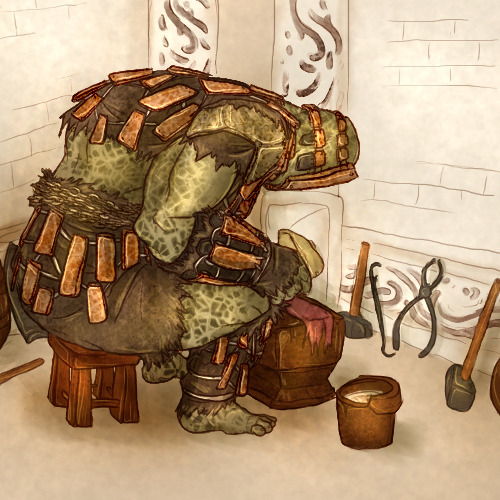
A Forenote
This supplemental Guide is meant to be a built-upon addition to The Complete Crafter made by AeronDrake. The items in this module are meant to reflect more exotic materials that are potentially harder to find, but with a higher payoff for item creation.
Some of the materials in this guide are also either replacement materials, or updated versions of them in order to grant a broader potential for both magical and nonmagical creations - and their unit costs reflect their new forms. Any updated materials are still used to craft the recommended items in the original document, but with potential for either improvements, or completely different items altogether.
Some materials may also be presented as innately magical, without the need of further enchantment. This means that while the materials exhibit magical properties, they are not affected by dead magic zones or antimgaical effects.
Example: Adamantium in this guide is listed as magical in nature, granting it a +1 magical bonus to attack and damage, and a +1 bonus to AC. This means that, even within the confines of an antimagical effect, these innate abilities remain - as they are fundamental traits of the material itself. This goes the same for all other materials, even ones that deal elemental damage. Only the magical effects applied to the items AFTER enchanting are affected by magical nullification.
Of course, as with all rules and guidelines in D&D, it is ultimately up to the DM to decide if these rules apply - or even if these materials exist on your world.
A Forenote on Aetherion Energy
In this document, several mentions of a damage type known as "Aetherion" are made, this is a type that is not typical in most senses as it works differently than most forms of damage:
- Aetherion Thought to be the spiritual twin of Force damage, Aetherion is, in simplistic terms, soul energy. Where Force damage shreds and tears down matter at the molecular level, Aetherion damage only targets souls and spirits and destroys them, rendering most bodies completely inert and "empty" No form of resistance, immunity, or vulnerability exists for such damage.....that is known.
All constructs of an artificial nature - not including those powered by a soul or similar spiritual power source - are immune to the effects of Aetherion, as they do not possess the "material" that is affected by this damage type.
In addition, this supplemental guide also delves into more items, weapons, and armor available to the characters that may appear in different D&D books.
This is to reflect foreign lands as well as technological developments.
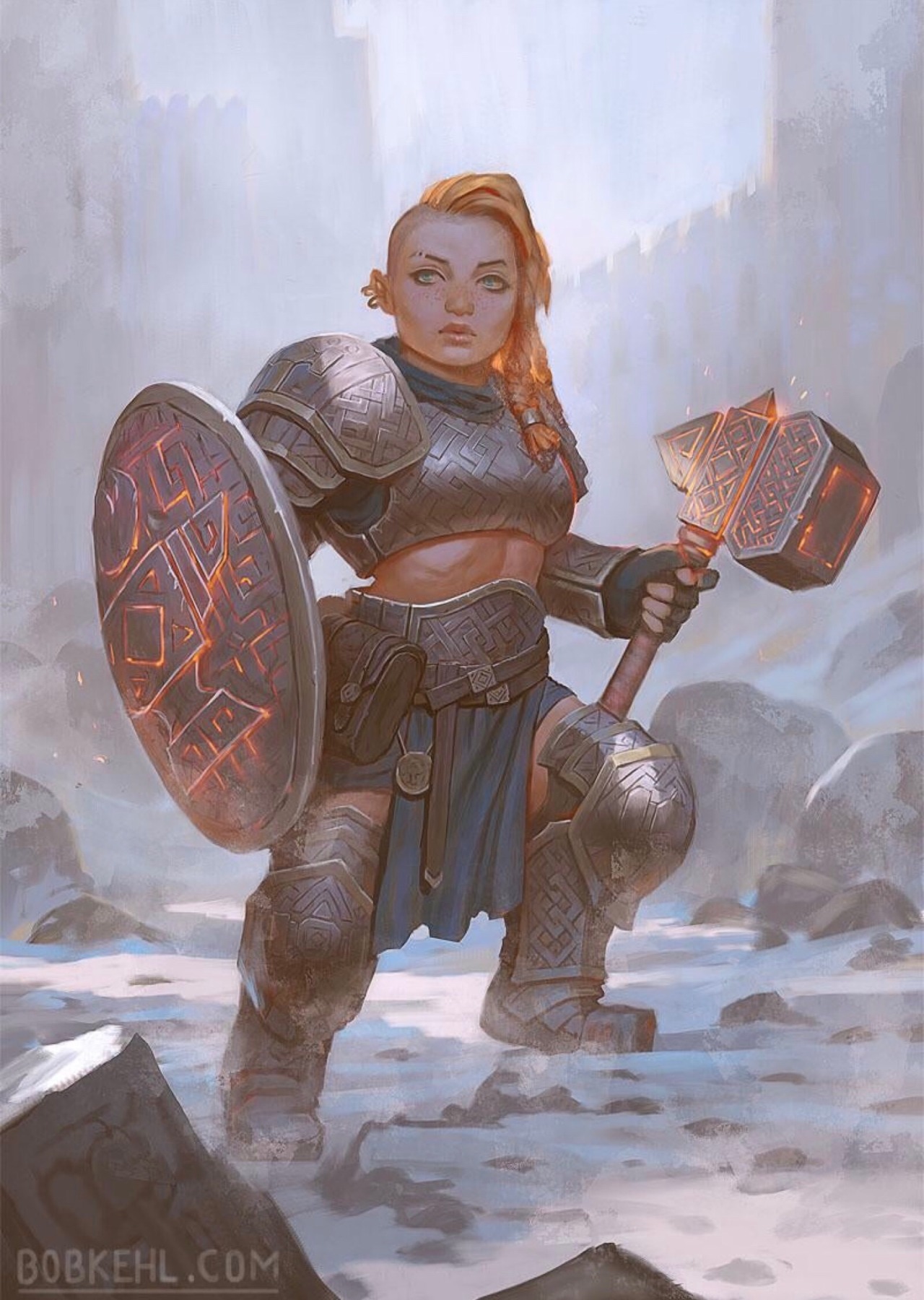

Crafting Basics
DURING ADVENTURES AND TRAVELS, A character can collect and harvest a series of materials and objects to craft common and special equipment. This supplement expands the following crafting rules, which can also be found in the Xanathar's Guide to Everything.
Crafting an Item
Following the rules in the previous Guide, these tables expand upon the original tables, including more challenge ratings for creatures for materials, another level of rarity, and more options for tool uses.
A character who has the time, the money, and the needed tools can use downtime to craft armor, weapons, clothing, or other kinds of nonmagical gear.
Resources and Resolution. In addition to the appropriate tools for the item to be crafted, a character needs raw materials worth half of the item's selling cost.
To determine how many workweeks it takes to create an item, divide its gold piece cost by 50. A character can complete multiple items in a workweek if the item's combined cost is 50 gp or lower. Items that cost more than 50 gp can be completed over longer periods of time, as long as the work in progress is stored in a safe location.
Multiple characters can combine their efforts. Divide the time needed to create an item by the number of characters working on it. Use your judgment when determining how many characters can collaborate on an item. A particularly tiny item, like a ring, might allow only one or two workers, whereas a large, complex item might allow four or more workers.


Tools and Abilities. A character needs to be proficient with the tools needed to craft an item and have access to the appropriate equipment. Everyone who collaborates needs to have the appropriate tool proficiency. You need to make any judgment calls regarding whether a character has the correct equipment. The following table provides some examples.
If all the requirements are met, the result of the process is an item of the desired sort. A character can sell an item crafted in this way at its listed price.
What Tool for What Item?
What is the best choice to craft a quarterstaff? Carpenter's Tools or Woodcarver's Tools?
The decision ultimately lies with the DM, but it should be noted neither the tools nor the proficiency brings with it any structural requirements (if they are necessary) for creating the item.
A Smith will still need a forge to properly apply their craft, just as a Cook would require a kitchen or campfire - keep these facts in mind when attempting to craft an item.
Tool Uses & Abilities
| Tools | Ability Score | Crafted Items |
|---|---|---|
| Alchemist’s Supplies | Intelligence | Acids, Oils, Perfumes |
| Brewer’s Supplies | Wisdom | Alcohol, Potions |
| Calligrapher’s Supplies | Dextrity | Scrolls, Spellbooks, Manuals |
| Carpenter’s Tools | Strength | Masks, Shields, Spellcasting Focuses |
| Cartographer’s Tools | Intelligence | Globes, Maps, Starmaps |
| Cobbler’s Tools | Dexterity | Boots, Shoes, Buckles, Belts |
| Cook’s Utensils | Wisdom | Foods, Spices |
| Glassblower’s Tools | Constitution | Glasses, Lenses, Bottles |
| Herbalism Kit | Wisdom | Potions, Antitoxins, Drugs |
| Jeweler’s Tools | Intelligence | Rings, Circlets, Necklaces |
| Leatherworker’s Tools | Dexterity | Leather & Hide Armor, Boots, Gloves |
| Mason’s Tools | Strength | Stones, Statues, Figurines |
| Painter’s Tools | Charisma | Portraits, Paintings |
| Poisoner's Kit | Intelligence | Poisons, Toxins, Drugs |
| Potter’s Tools | Dexterity | Bottles, Pots, Urns |
| Smith’s Tools | Strength | Armor, Weapons, Shields |
| Tinker’s Tools | Dexterity | Guns, Clockwork |
| Weaver’s Tools | Dexterity | Cloaks, Clothing, Robes |
| Woodcarver’s Tools | Dexterity | Masks, Shields, Spellcasting Focuses |
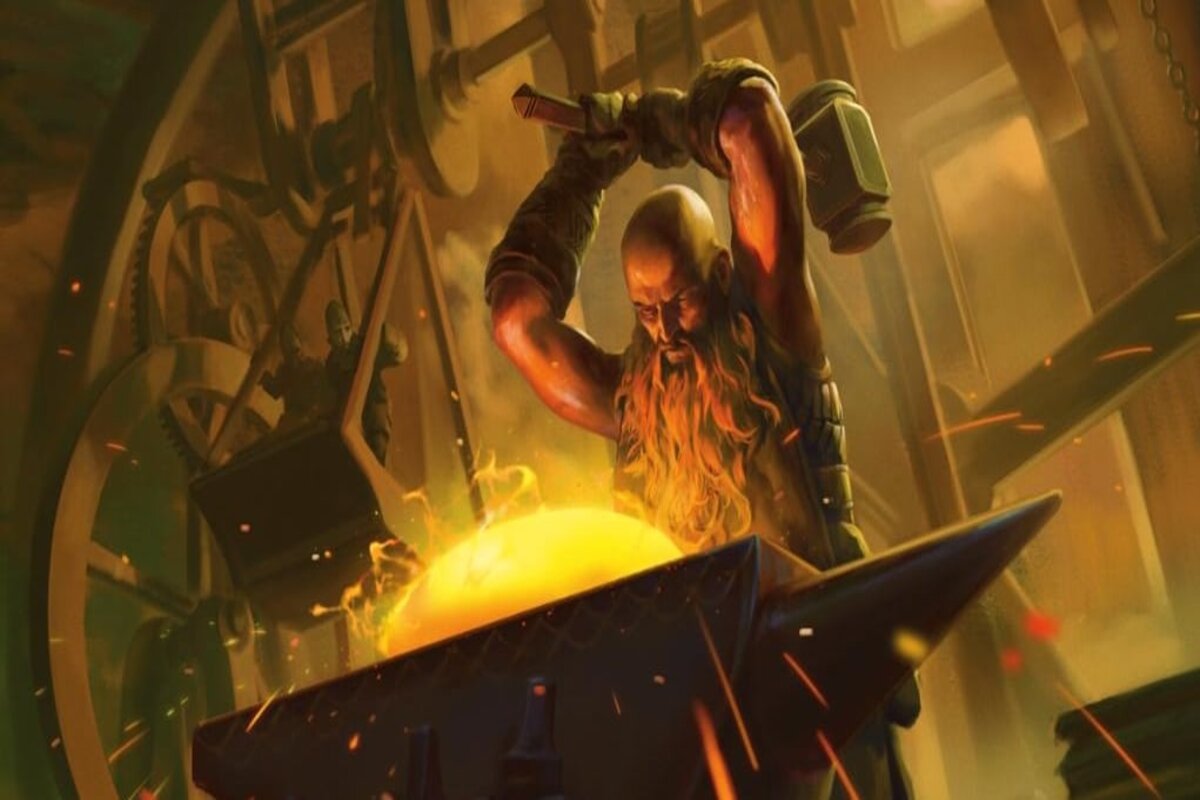

Materials for Crafting. As general rule, a character needs 3 units of the same material for crafting a medium-sized creature's armor or clothing, and 2 units of the same material for weapons, shields, and 10 pieces of ammunition. For bigger creatures, the character needs twice the amount of materials used for each size increment, and for smaller creatures, the character needs only half materials per each size smaller than medium.
Since magic items are more complex and unique features, a character might require more units of the same material or some units of different materials to craft the magic item.
Crafting Magic Items. Creating a magic item requires more than just time, effort, and materials. It is a long-term process that involves one or more adventures to track down rare materials and the lore needed to create the item.
Potions of healing and spell scrolls are exceptions to the following rules. For more information, see "Brewing Potions of Healing" later in this section and the "Scribing a Spell Scroll" section, below.
To start with, a character needs a formula for a magic item in order to create it. The formula is like a recipe. It lists the materials needed and steps required to make the item.
An item invariably requires an exotic material to complete it. This material can range from the skin of a yeti to a vial of water taken from a whirlpool on the Elemental Plane of Water. Finding that material should take as part of an adventure.
The Magic Item Ingredients table suggests the challenge rating of a creature that the characters need to face to acquire the materials for an item. Note that facing a creature does not necessarily mean that the characters must collect items from its corpse. Rather, the creature might guard a location or a resource that the characters need to access to.
Magic Item Ingredients
| Item Rarity | CR Range |
|---|---|
| Common | 1 - 3 |
| Uncommon | 4 - 8 |
| Rare | 9 - 12 |
| Very Rare | 13 - 18 |
| Legendary | 19 - 24 |
| Mythical/Artifact | 25 - 30+ |
If appropriate, pick a monster or a location that is a thematic fit for the item to be crafted. For example, creating a mariner's armor might require the essence of a water weird. Crafting a staff of charming might require the cooperation of a specific arcanaloth, who will help only if the characters complete a task for it. Making a staff of power might hinge on acquiring a piece of an ancient stone that was once touched by the god of magic – a stone now guarded by a suspicious androsphinx.
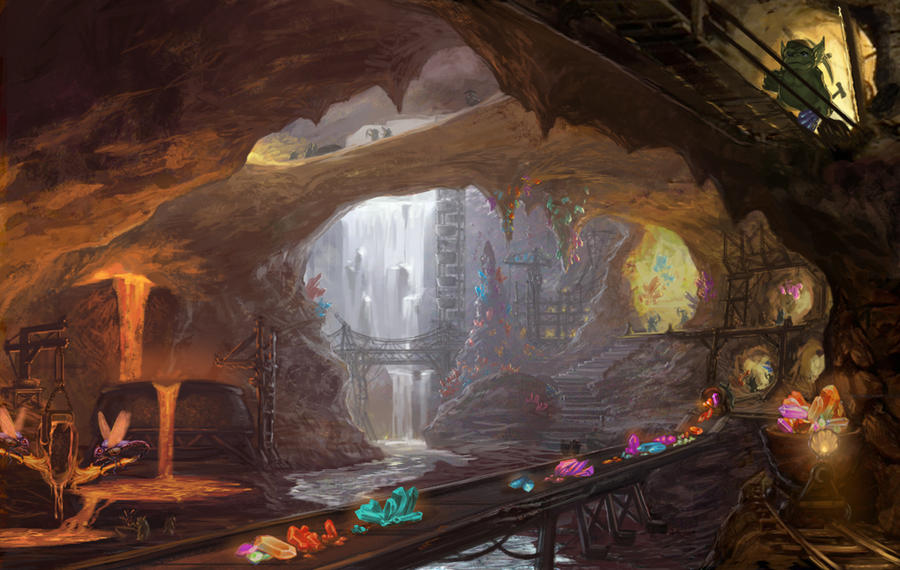

In addition to facing a specific creature, creating an item comes with a gold piece cost covering other materials, tools, and so on, based on the item's rarity. Those values, as well as the time a character needs to work in order to complete the item, are shown on the Magic Item Crafting Time and Cost table. Halve the listed price and creation time for any consumable items.
Magic Item Crafting Time and Cost
| Item Rarity | Workweeks* | Cost* |
|---|---|---|
| Common | 1 | 50 gp |
| Uncommon | 2 | 200 gp |
| Rare | 10 | 2,000 gp |
| Very Rare | 25 | 20,000 gp |
| Legendary | 50 | 100,000 gp |
| Mythical/Artifact | 100 | 500,000+ gp |
*Halved for a consumable item like a potion, scroll or talisman. Items may also be crafted several times faster if created by a superior craftsman - such as a Fire Giant Smith, a Demonic Craftsman, or even a Deity.
To complete a magic item, a character also needs whatever tool proficiency is appropriate, as for crafting a nonmagical object, or proficiency in the Arcana skill.
If all the above requirements are met, the result of the process is a magic item of the desired sort.
Complications. Most of the complications involved in creating something, especially a magic item, are linked to the difficulty in finding rare ingredients or components needed to complete the work. The complications a character might face as byproducts of the creation process are most interesting when the characters are working on a magic item: there's a 10 percent chance for every five workweeks spent on crafting an item that a complication occurs. The Crafting Complications table provides examples of what might happen.
Crafting Complications
| d6 | Complication |
|---|---|
| 1 | Rumors swirl that what you're working on is unstable and a threat to the community.* |
| 2 | Your tools are stolen, forcing you to buy new ones.* |
| 3 | A local wizard, artificer, or inventor shows keen interest in your work and insists on observing you. |
| 4 | A powerful noble offers a hefty price for your work and is not interesting in hearing a no for an answer.* |
| 5 | A dwarf clan accuses you of stealing its secret lore to fuel your work.* |
| 6 | A competitor spreads rumors that your work is shoddy and prone to failure.* |
*Might involve a rival.
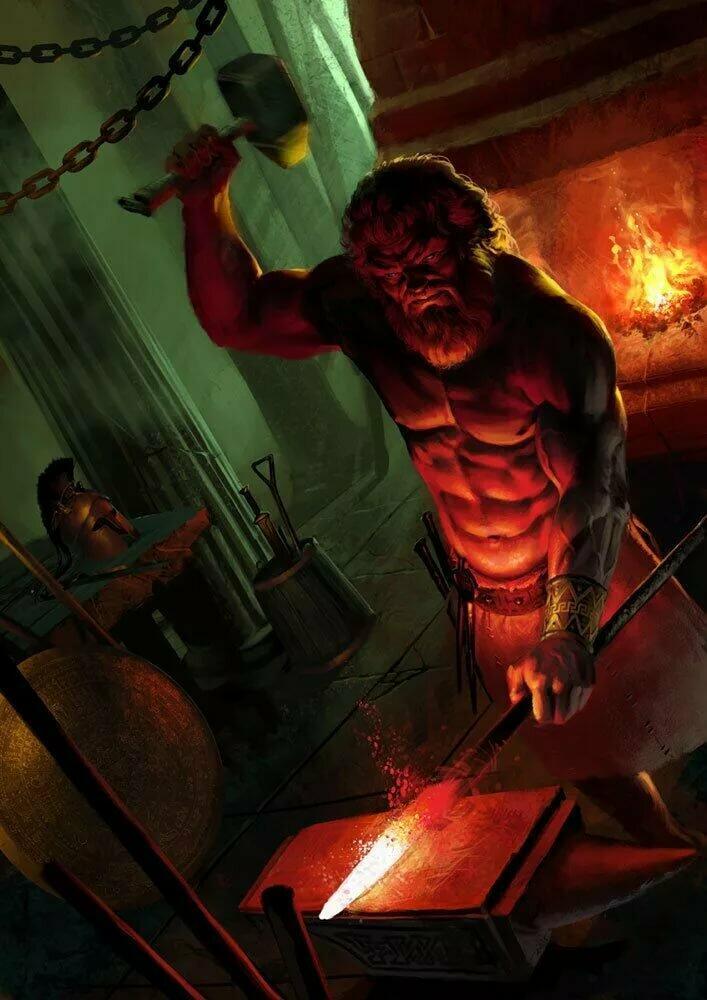

Talismans
A talisman is a single-use magic item similar to a potion or a wand. It can be triggered once before it loses its magical power. A talisman can hold a spell of up to 3rd level, and any character can activate the spell. Most talismans are beneficial to the user. Talismans with offensive capabilities are all but unheard of.
Most talismans are crafted by enchanters, mystics, or shaman, and sold at temples, shrines, or holy sites.
A typical talisman is a small item of jewelry made from various natural materials: bone, feathers, shells, dried plants, and the like. Talismans are rarely larger than a holy symbol, and have no appreciable weight.
The form of a talisman is often a clue to its function. A tortoise shell, for example, is obviously protective in nature. Talismans can be identified as any other magic items. All talismans are activated by using an action, and the talisman crumbles to dust or ash after it is used.
To generate talismans randomly, roll a D100 on the Talismans table.
Talismans
| Minor | Medium | Major | Talisman | Spell | Cost |
|---|---|---|---|---|---|
| 01-10 | - | - | Bone Shield | Sanctuary | 75gp |
| 11-20 | - | - | Heron Feather | Expeditious Retreat | 75gp |
| 21-30 | - | - | Golden Leaf | Pass Without a Trace | 75gp |
| 31-40 | - | - | Gray Mask | Disguise Self | 75gp |
| 41-50 | - | - | Paper Umbrella | Fog Cloud | 75gp |
| 51-60 | 01-20 | - | Brooch of Plenty | - | 150gp |
| 61-70 | 21-30 | - | Black Fan | - | 150gp |
| 71-80 | 31-40 | - | Bone Key | Knock | 150gp |
| 81-90 | 41-50 | - | Chickadee Feather | Levitate | 300gp |
| 91-95 | 51-55 | - | Mirror Shard | Mirror Image | 300gp |
| 96-100 | 56-60 | - | Gray Pendant | Misty Step | 300gp |
| - | 61-65 | - | Black Mask | Darkness | 300gp |
| - | 66-70 | - | Silent Bell | Silence | 300gp |
| - | 71-75 | 01-10 | Silvered Leaf | Speak with Plants | 300gp |
| - | 76-80 | 11-20 | Silvered Tooth | Speak with Dead | 300gp |
| Minor | Medium | Major | Talisman | Spell | Cost |
|---|---|---|---|---|---|
| - | 81-85 | 21-30 | Tortoise Shell | Warding Bond | 600gp |
| - | 86-90 | 31-40 | Green Acorn | Lesser Restoration | 600gp |
| - | 91-95 | 41-50 | Shadow Mask | Nondetection | 600gp |
| - | 96-100 | 51-60 | White Acorn | Clairvoyance | 600gp |
| - | - | 61-70 | Chromatic Stone | Meld into Stone | 600gp |
| - | - | 71-80 | Goldfish Scale | Water Breathing | 600gp |
| - | - | 81-85 | Lizard's Tail | Remove Disease | 600gp |
| - | - | 86-90 | Mirrored Mask | Invisibility | 900gp |
| - | - | 91-95 | Origami Fan | Gust of Wind | 900gp |
| - | - | 96-99 | Origami Hawk | Haste | 900gp |
| - | - | 100 | Incense of Focus | - | 1,200gp |
Brooch of Plenty This talisman provides its user with sufficient nourishment for one day’s sustenance. it also enhances the user’s rest, so that sleeping for 4 hours provides all the benefits of 8 hours of sleep. It crumbles to dust 24 hours after activation. (Crafting a brooch of plenty takes 1 day.)
Black Fan When activated, a black fan talisman surrounds the user in an aura of power and mystery. This aura inspires a measure of both fear and awe in people the user interacts with, giving the user advantage on Charisma checks for 1 hour. The talisman must be worn visibly on the user’s clothing for the duration of the effect. It crumbles into ash at the end of the hour. (Crafting a black fan takes 2 days.)
Incense of Focus A spellcaster who burns this incense at the end of a long rest gains an additional spell slot of 1st, 2nd, 3rd, or 4th level. The spell slot you gain, must be of a level you already have spell slots for. Roll a d4 to determine the spell level. (Crafting an incense of focus takes 3 days.)
Crafting a talisman requires materials worth half it's listed value in gold (mostly what the talisman looks like), as well as proficiency in the Arcana skill and must provide any material components required for the casting of the spell. The Talisman must reflect it's intended use in some way, usually with it's appearance. Moreover, the character must have the spell prepared, or it must be among the character's known spells, in order to create the talisman.
Crafting any talisman takes an amount of days equal to it's spell slot level.
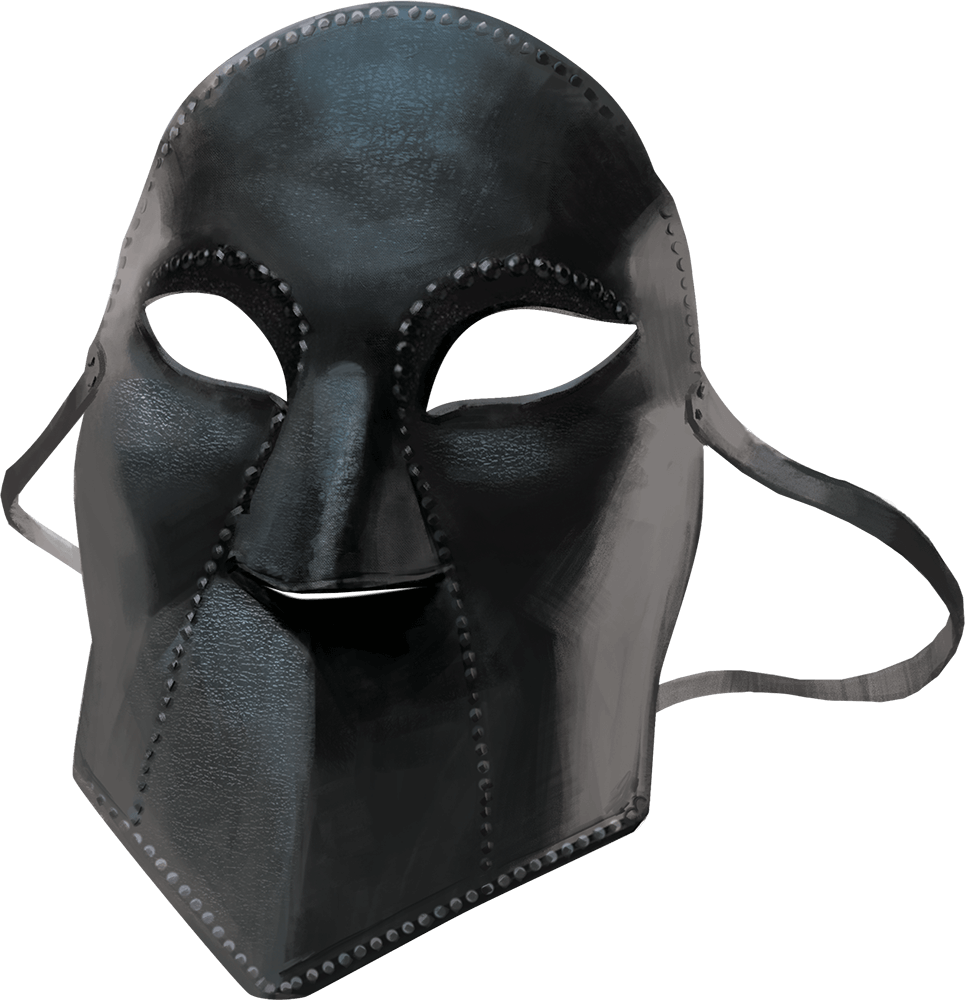
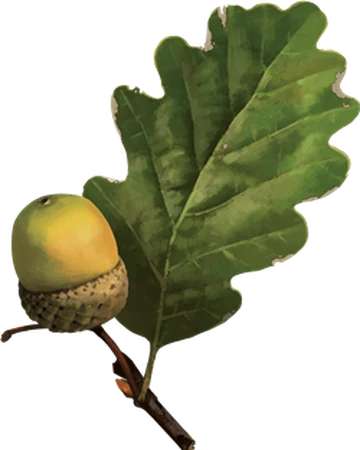
Mixing a Potion
With effort and focus, a person with the time on their hands can brew useful potions typically found in the world. As they are all forms of a restoration potion, they all follow the basic alchemical formula; and therefore, can all be brewed through the same methods. So as long as an alchemist knows how to make a potion of healing, they can make a mana or stamina potion as well - so long as he has the correct ingredients.
These 3 potion types fall into a special category for item crafting, separate from other magic items. A character who has proficiency with the herbalism kit or alchemist's supplies can create these potions. The times and costs for doing so are summarized on the Restoration Potion Creation table.
Restoration Potions Creation
| Type | Rarity | Time | Cost |
|---|---|---|---|
| Base | Common | 1 Day | 25 gp |
| Greater | Uncommon | 1 Workweek | 100 gp |
| Superior | Rare | 2 Workweeks | 1,000 gp |
| Supreme | Very Rare | 3 Workweeks | 10,000 gp |
| Extreme | Legendary | 4 Workweeks | 100,000 gp |
Healing Potion
One of the most commonly seen potion types, You regain hit points when you drink this potion. The number of hit points depends on the potion’s rarity, as shown in the Healing Potions table. Whatever its potency, the potion’s red liquid glimmers when agitated.
Healing Potions
| Type | Rarity | HP regained |
|---|---|---|
| Healing | Common | 2d4 + 2 |
| Greater Healing | Uncommon | 4d4 + 4 |
| Superior Healing | Rare | 8d4 + 8 |
| Supreme Healing | Very Rare | 10d4 + 20 |
| Extreme Healing | Legendary | 20d4 + 50 |
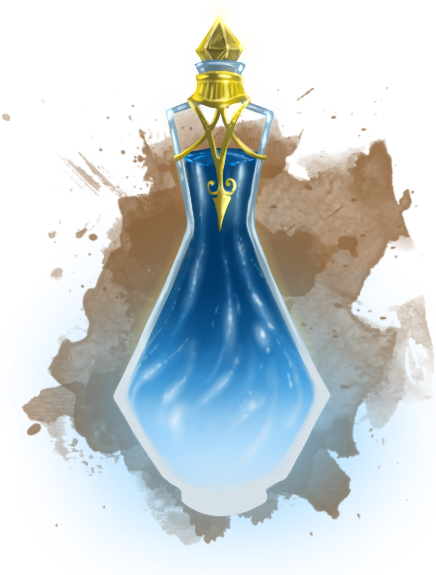



Mana Potion
This blue liquid is created using the essence of magic extracted from alchemical ingredients. When you drink this potion, you gain a number of points you can use to regain spell slots you already used (or recover Ki or Mana points equal to the points shown). The number of points depends on the potion's rarity, as shown in the mana potions table.
Mana Potions
| Type | Rarity | Points |
|---|---|---|
| Mana | Common | 1d4 + 1 |
| Greater Mana | Uncommon | 2d4 + 2 |
| Superior Mana | Rare | 3d4 + 3 |
| Supreme Mana | Very Rare | 4d4 + 4 |
| Extreme Mana | Legendary | 5d4 + 5 |
In the following table you can see how many points you need to spend for recovering a spell slot. When you use the potion, you must distribute the points immediately. You can recover any number of used spell slots if you have enough points to do so, and every point left is lost.
| Spell Slot | Point Cost |
|---|---|
| 1st | 2 |
| 2nd | 3 |
| 3rd | 5 |
| 4th | 6 |
| 5th | 7 |
| 6th | 9 |
| 7th | 10 |
| 8th | 11 |
| 9th | 13 |
(Mana potions cannot restore 10th - 12th level spell slots)
Stamina Potion
This yellow-orange liquid is created from the flow of energy. When you drink this potion, it restores used abilities, depending on the class of whoever drinks it. Such as Action surges for fighters, Rages for barbarians, Bardic Inspirations for bards, Channel Divinities for clerics/paladins, and similar.
Stamina Potions
| Type | Rarity | Ability points regained |
|---|---|---|
| Stamina | Common | 1 |
| Greater Stamina | Uncommon | 2 |
| Superior Stamina | Rare | 3 |
| Supreme Stamina | Very Rare | 4 |
| Extreme Stamina | Legendary | 5 |
If restored to full, you gain however many more uses of the ability that go over max for 12 hours, and then they are lost.
Scribing a Spell Scroll
With time and patience, a spellcaster can transfer a spell to a scroll, creating a spell scroll.
Resources. Scribing a spell scroll takes an amount of time and money related to the level of the spell the character wants to scribe, as shown in the Spell Scroll Costs table. In addition, the character must have proficiency in the Arcana skill and must provide any material components required for the casting of the spell. Moreover, the character must have the spell prepared, or it must be among the character's known spells, in order to scribe a scroll of that spell.
If the scribed spell is a cantrip, the version of the scroll works as if the caster were 1st level.
High Magic spells levels 10 - 12th, are under DM's discretion on whether they will include access to such godly magics. If so, examples of such can be found from Pryxis's Pages of Pure Magic .
It is also up to the DM to determine the spell Save DC and attack bonus to High Magic spell scrolls - keeping in mind their extreme power.
Spell Scroll Costs
| Spell Level | Time | Cost |
|---|---|---|
| Cantrip | 1 Day | 15 gp |
| 1st | 1 Day | 25 gp |
| 2nd | 3 Days | 250 gp |
| 3rd | 1 Workweek | 500 gp |
| 4th | 2 Workweeks | 2,500 gp |
| 5th | 4 Workweeks | 5,000 gp |
| 6th | 8 Workweeks | 15,000 gp |
| 7th | 16 Workweeks | 25,000 gp |
| 8th | 32 Workweeks | 50,500 gp |
| 9th | 48 Workweeks | 250,000 gp |
| 10th | 80 Workweeks | 750,000 gp |
| 11th | 128 Workweeks | 1,000,000 gp |
| 12th | 200 Workweeks | 2,500,000 gp |
Complications. Crafting a spell scroll is a solitary task, unlikely to attract much attention. The complications that arise are more likely to involve the preparation needed for the activity. Every workweek spent scribing brings a 10 percent chance of a complication, examples of which are on the Scribe a Scroll Complications table.
| d6 | Complication |
|---|---|
| 1 | You bought up the last of the rare ink used to craft scrolls, angering a wizard in town. |
| 2 | The priest of a temple of good accuses you of trafficking in dark magic.* |
| 3 | A wizard eager to collect one of your spells in a book presses you to sell the scroll. |
| 4 | Due to a strange error in creating the scroll, it is instead a random spell of the same level. |
| 5 | The rare parchment you bought for your scrolls has a barely visible map on it. |
| 6 | A thief attempts to break into your workroom.* |
*Might involve a rival.

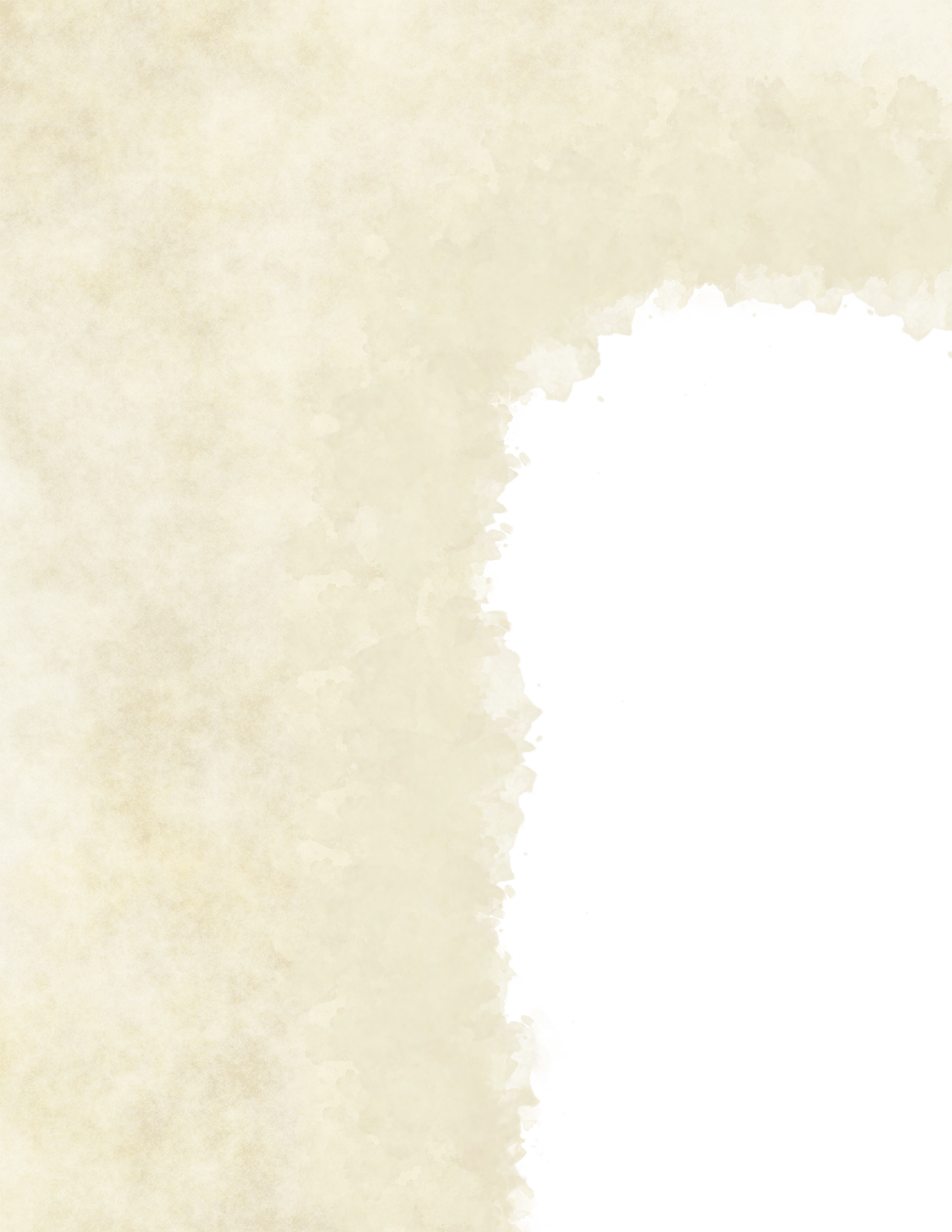
Collecting Materials
WHEN ADVENTURING, IT'S POSSIBLE TO find common and exotic materials which are used to craft new objects and gear. In this section you will find new rules for collecting materials, which can be used for crafting new weapons, armor, clothing, and other kind of gear. This document expands the crafting rules found in the downtime revisited section of the Xanathar's Guide to Everything to focus on the process of collecting new materials for crafting magic items.
Material Sources
When the characters are camping in a forest, exploring an abandoned mine, diving in the ocean, or surviving in a dungeon, they can also search and gather raw materials for crafting.
Every day, characters can collect materials while traveling through the wild or exploring a dungeon or a cave. These materials can be found by mining a mineral vein, gathering plants and herbs for potions and other concoctions, and harvesting or collecting creature parts for later use.
Creature Materials
Creature parts are mostly used as alchemical materials and for creating armor and weapons. Others take some of the creature parts as trophies and decorations for their armor and houses.
When characters hunt down or finds a dead creature they can attempt to harvest some parts for crafting and surviving. Since creatures and monsters varies in type and rarity, the characters must make a specific ability check. The Extracting Creature Parts table shows which ability check a character must make to extract some parts from a creature. The DC for harvesting a part equals to 12 plus half the creature challenge rating (creatures with a challenge rating lower than 2 don't add it to the DC).
Extracting Creature Parts
| Creature Type | Ability Check |
|---|---|
| Aberration, construct, dragon, elemental, ooze | Arcana |
| Beast, giant, humanoid, monstrosity, plant | Nature |
| Celestial, fey, fiend, undead | Religion |
The number of checks a character can make depends of the size of the creature. Every harvest check takes 1 hour to complete, even if the character fails the roll. Each successful check gives the character a number of units which can be used for crafting new pieces of equipment, objects, and other kind of gear.
The DM determines the number of checks the party can make for each part they want to harvest.
The DM also decides the amount of units a character get, but the number of units cannot exceed the maximum shown in the table below.
| Creature Size | Maximum Checks | Max Units per Check |
|---|---|---|
| Tiny | 1 | 1/4 unit |
| Small | 2 | 1/2 unit |
| Medium | 3 | 1 unit |
| Large | 4 | 2 units |
| Huge | 5 | 3 units |
| Gargantuan | 6 | 4 units |
| Colossal | 7 | 5 units |
| Titanic | 8 | 6 units |
For example, characters can make multiple checks for harvesting various units of scales from a large red dragon, but they can make only one check for harvesting the heart (which gives only 1 unit instead of two). Some units may also have been destroyed from fighting the creature.


Parts Values
The value of each harvested unit goes from 1% to 50% of the experience of the creature - with the exception of truly mythical creatures being an astronomical 100% value. The harvested parts of common creatures have a value of 1% of the creature's experience, while the rarer creature's parts value is close to 50% of the creature's experience. You can determine the values of each extracted part in the following table.
Unit Values
| CR | Creature Rarity | Unit Value |
|---|---|---|
| 6 or less | Common | 1% of the creature exp. |
| 7 - 12 | Uncommon | 5% of the creature exp. |
| 13 - 18 | Rare | 10% of the creature exp. |
| 19 - 24 | Very Rare | 25% of the creature exp. |
| 25 - 29 | Legendary | 50% of the creature exp. |
| 30+ | Mythical | 100% of the creature exp. |
Examples:
-
If a character harvests one unit of feathers from a hippogriff (CR 1), the value of the feather unit will be 1% of the base experience (200 exp), which is 2 gp.
-
A unit of pseudodragon's scales is worth 5 sp (CR 1/4), and a unit of an adult blue dragon's scales is worth 1,500 gp (CR 16).
-
1 Unit of a the scales of a Tarrasque (CR 30+) would be an astronomical 155,000 gp - a price truly worthy of the shed scales of the World Eater.
Other Materials
In addition to the materials a character can collect from creatures, there are plenty of other sources for gathering raw materials for crafting and other uses. These materials are divided in metals (like orichalcum and adamantium), stones & crystals (like coral and animite), woods (like kirinwood and livingwood) and plants and herbs.
Metals, Stones & Crystals
Metals, Stones & Crystals are minerals - the earthen materials used for making armor, weapons, and when using exotic materials, those pieces of gear gain special qualities.
- Minerals - To extract minerals, a character must use a miner's pick - or similar tool - and make a Strength (athletics) check. The DC for extracting ores is always 15. On a success, the character collects a number of ore units equal to 2d4 + its Constitution modifier (minimum 1 unit).
If needed, the character must make an Intelligence (Nature) check first to find a vein or a place where the ores or crystals are abundant.
The time used for extracting minerals equals to 1 day of downtime activity. This represents all the time the character uses to find and extract the materials.
Woods, Plants & Herbs
There're also other materials which are not ores or gemstones - mainly woods - which can be also used to craft weapons, armor, and other kind of items and gear. Plants and Herbs are mostly used for creating alchemical mixtures, cooking, and in some cases for creating dyes for painting.
- Wood - For collecting Wood materials, a character needs to make a Strength (Athletics) or a Dexterity check, depending on the material (DC 15). On a success, the character collects a number of units equal to 2d4 + its Constitution modifier (minimum 1).
For example, if a character wants to collect some units of kirinwood, he must make a Strength (Athletics) check to cut down the tree with an axe and get the material. On a success, the character collects a number of kirinwood units equals to 2d4 + its Constitution modifier.
- Plants & Herbs - To gather plants, herbs and other similar resources the character must success a DC 15 Intelligence (Nature) check. On a success, the character collects a number of units equal to 2d4 + its Intelligence modifier (minimum 1 unit).
The time used for gathering woods, plants and herbs equals to 1 hour for each check, and you can make a number of checks per day equal to your Intelligence modifier (minimum 1).
Buying & Selling
It's up to the DM to determine if collected materials can be sold (and in some cases, bought). The value of each unit depends of the material. For more information about special materials and values, read the material description section of this supplement.
Killing, Chilling, & Filling
If characters want to keep some creature parts for later use, they need to maintain the parts in a chilled place to avoid decomposition. Check the Bag of Colding later in this supplement.
Later in this module, the material known as "Creature Essence" is mentioned - these "Essence salts" are essential in crafting items of a specified creature's type - such as Giant Slaying, or Dragon slaying items, and similar. In order to extract essence salts from a creature, one may utilize what's known as an "Essence Extraction Device" which is also mentioned later.
Expanded Materials
In the following section you can find a list of materials, their unit value and properties. Some of these materials might have other special features. For example, an armor made with dragon bones could grant you resistance to the dragon's breath weapon damage type.
Unless the materials are used for crafting magic items, a piece of gear crafted with any of these materials is non-magical - even when some of the features they grant are magical.
Plants and Herbs by Areas
In the following tables you can see examples of plants for various environments. When a character succeeds a roll to gather plants and herbs, the DM can chose one of the following plants or roll a d20 to determine it randomly.
Arctic & Tundra
| 1d20 | Name | Rarity |
|---|---|---|
| 1 - 5 | Blue herb | Common |
| 6 - 10 | Drojos ivy | Common |
| 11 - 15 | Ucre bramble | Common |
| 16 - 17 | White poppy | Uncommon |
| 18 | Taggit Bloom | Rare |
| 19 | Kreet paste | Rare |
| 20 | Angel bloom | Very Rare |
Caves & Subterranean
| 1d20 | Name | Rarity |
|---|---|---|
| 1 - 5 | Twilight wormwood | Common |
| 6 - 10 | Blue herb | Common |
| 11 - 15 | Mandrake root | Common |
| 16 - 17 | Abyss flower | Uncommon |
| 18 | Night Maize | Rare |
| 19 | Kasuni juice | Rare |
| 20 | Blackleaf rose | Very Rare |
Deserts & Arid
| 1d20 | Name | Rarity |
|---|---|---|
| 1 - 5 | Drojos ivy | Common |
| 6 - 10 | Ellond scrub | Common |
| 11 - 15 | Ucre bramble | Common |
| 16 - 17 | Dried ephedra | Uncommon |
| 18 | Nug Fungus | Rare |
| 19 | Olina petals | Rare |
| 20 | Ebrium fungus | Very Rare |
Lakes, Rivers and Ocean
| 1d20 | Name | Rarity |
|---|---|---|
| 1 - 5 | Twilight wormwood | Common |
| 6 - 10 | Blue herb | Common |
| 11 - 15 | Mandrake root | Common |
| 16 - 17 | Aniseed sap | Uncommon |
| 18 | Wuggy Moss | Rare |
| 19 | Kreet paste | Rare |
| 20 | Chromatic mud | Very Rare |
Forests & Woodlands
| 1d20 | Name | Rarity |
|---|---|---|
| 1 - 5 | Twilight wormwood | Common |
| 6 - 10 | Drojos ivy | Common |
| 11 - 15 | Ellond scrub | Common |
| 16 - 17 | Blood herb | Uncommon |
| 18 | Black Ivy | Rare |
| 19 | Thunderleaf | Rare |
| 20 | Wisp stems | Very Rare |
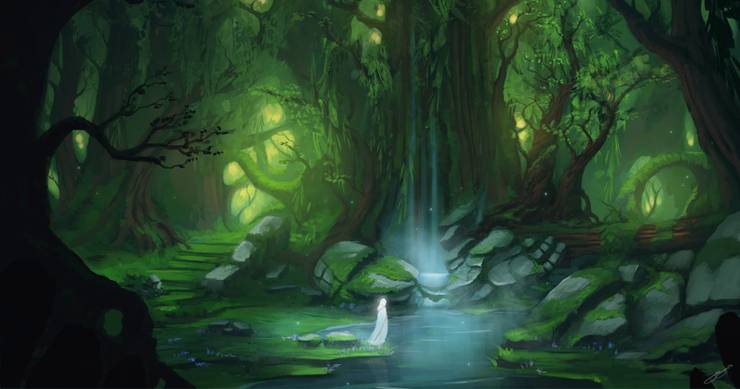
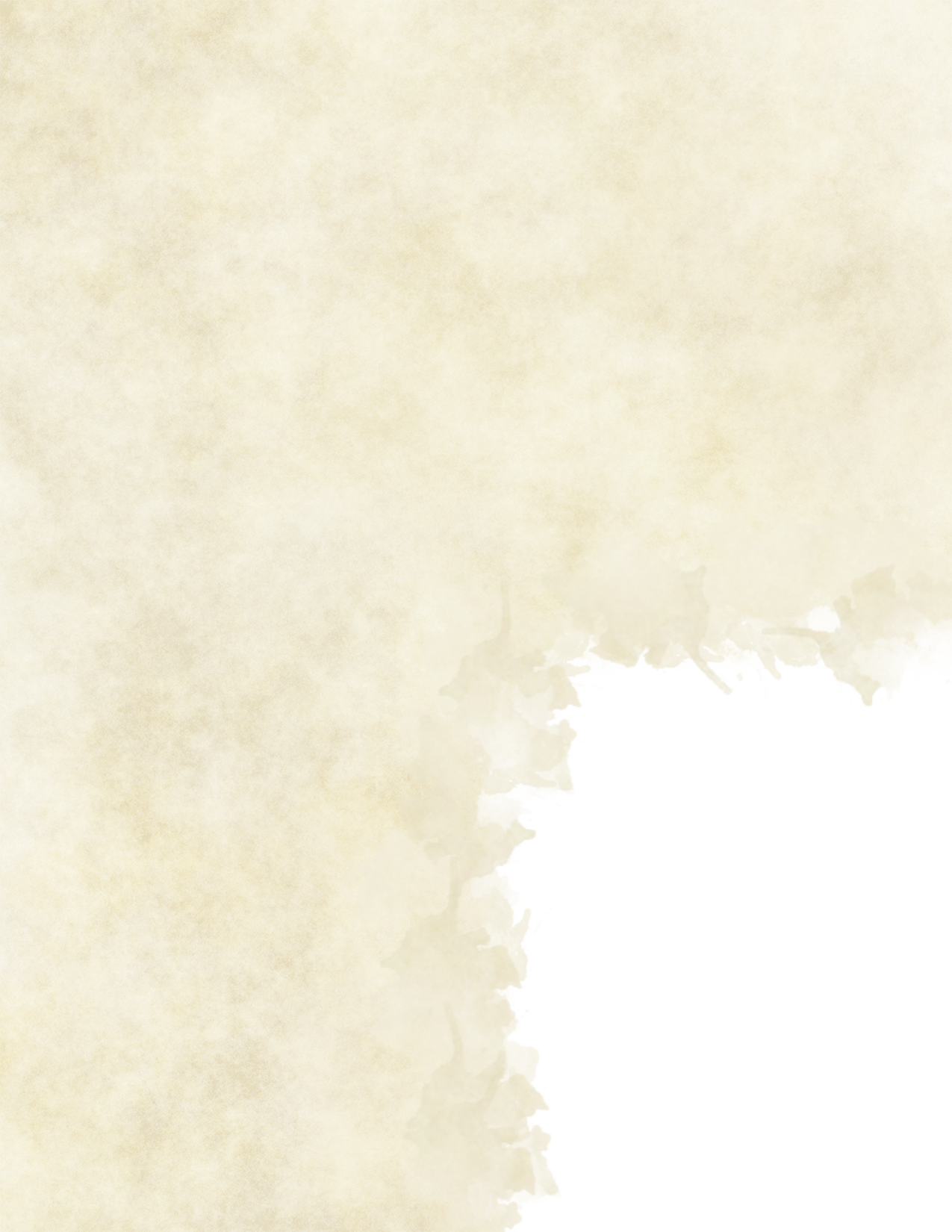
Mountains & Steppes
| 1d20 | Name | Rarity |
|---|---|---|
| 1 - 5 | Drojos ivy | Common |
| 6 - 10 | Ellond scrub | Common |
| 11 - 15 | Mandrake root | Common |
| 16 - 17 | Ash chives | Uncommon |
| 18 | Vein Lily | Rare |
| 19 | Kasuni juice | Rare |
| 20 | Dragontongue petals | Very Rare |
Plains & Hills
| 1d20 | Name | Rarity |
|---|---|---|
| 1 - 5 | Ellond scrub | Common |
| 6 - 10 | Mandrake root | Common |
| 11 - 15 | Ucre bramble | Common |
| 16 - 17 | Aniseed sap | Uncommon |
| 18 | Blood Tree Sap | Rare |
| 19 | Lunar nectar | Rare |
| 20 | Dragontongue petals | Very Rare |
Swamps & Wetlands
| 1d20 | Name | Rarity |
|---|---|---|
| 1 - 5 | Twilight wormwood | Common |
| 6 - 10 | Blue herb | Common |
| 11 - 15 | Ucre bramble | Common |
| 16 - 17 | Frenn moss | Uncommon |
| 18 | Gnoll's Weed | Rare |
| 19 | Ecire laurel | Rare |
| 20 | Spineflower berries | Very Rare |
Supernatural Herbs
When characters go to a regional area that is especially supernatural or magically potent, at times the local plant life is also just as affected.
For instance, if a nexus of magic exists in an isolated pocket of a particularly dense forest, not only do the characters roll on the "forest & woodlands" table, but they also roll on the "Supernatural" table to see what incredibly rare plants or herbs they find and harvest - which cannot normally be found - and usually only in very small amounts.
Supernatural
| 1d20 | Name | Rarity |
|---|---|---|
| 1 - 2 | Viping Vitalis | Rare |
| 3- 4 | Kirin's Fang | Rare |
| 5 - 6 | Nightcall Bloom | Rare |
| 7 - 8 | Xeni Leaves | Rare |
| 9 | Olus Veritis | Rare |
| 10 | Ghost Blossom | Rare |
| 11 | Spriteball Petals | Rare |
| 12 | Mother Tulip | Rare |
| 13 | Lamurma Bell | Rare |
| 14 | Nightmare Root | Rare |
| 15 | Ironhand | Very Rare |
| 16 | Silverstem | Very Rare |
| 17 | Annam's Finger* | Very Rare |
| 18 | Tenser's Thorn | Very Rare |
| 19 | Pargen Vine | Very Rare |
| 20 | Black Lotus | Legendary |
*Annam's Finger Roll Chart
Annam's Finger is the name given to the berries found on this gnarled blooming root, which can be distilled into potions of giant strength - mentioned later.
This is the Roll chart for what concentration of Annam's Finger you may harvest:
Roll a D6
- 1-2 Brown Berries - hill giant
- 3 Grey Berries - frost/stone giant
- 4 Red Berries - fire giant
- 5 White Berries - cloud giant
- 6 Violet Berries - storm giant
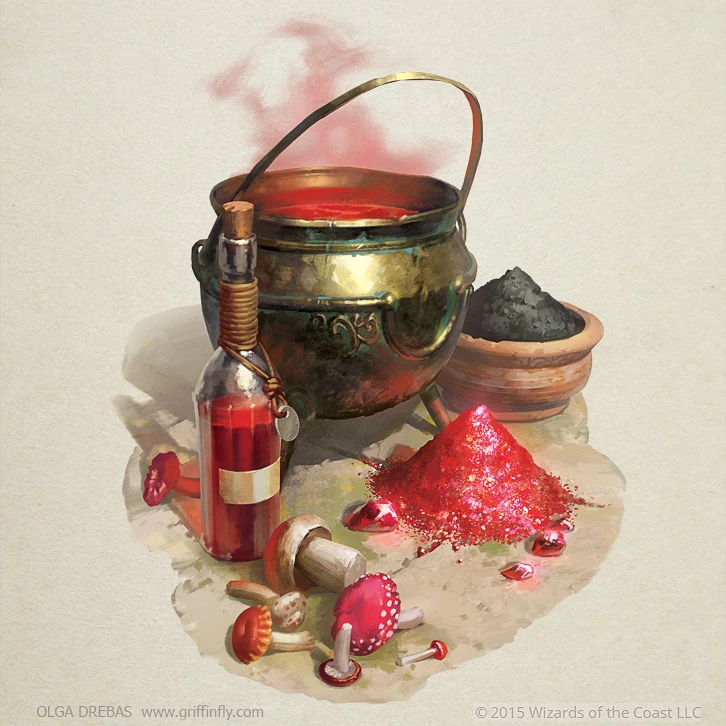


Plants & Herbs
Unlike the lists for metals, stones, crystals, and woods - plants and herbs are sorted in alphabetical order.
Abyss Flower
A dark pink flower with a thorny stem used to create poisons.
Unit value: 10 gp
Alchemy: Used to craft the poison called malice.
Angel Bloom
This tiny white yellow flower is found in mountains near rocks and stones.
Unit value: 40 gp
Alchemy: Used to craft potions of flying.
Annam's Finger
These tiny, multicolored berries are found inside flowers that bloom on rare twisted, and gnarled roots.
Unit value: 150 gp
Alchemy: Used to craft potions of giant strength.
Aniseed Sap
This amber like fluid is known for its resistance against cold.
Unit value: 10 gp
Alchemy: Used to craft potions of cold resistance.
Ash Chives
This plant grow in clumps from underground bulbs and produce round, hollow gray leaves.
Unit value: 10 gp
Alchemy: Used to craft the poison called burnt othur fumes.
Black Ivy Leaves
Grey leaves fallen from the pitch black Ivy vines.
Unit value: 20 gp
Alchemy: Used to craft the poison called black ivy paste.
Blackleaf Rose
This blood red rose have a black stem with small reddish thorns.
Unit value: 40 gp
Alchemy: Used to craft the poison called midnight tears, and it's more potent form called goodbye kiss.
Black Lotus
A violet-black, silky, lotus flower that radiates a slight warmth from within. Faint multichromatic colors can be seen glowing on it's undersides - and small motes of colorful starlight dance around it. This flower is mythically rare.
Unit value: priceless
Alchemy: Used to craft potions of Unleashed Potential, or the poison called void's blood.
Blood Herb
A dark red herb found in forests, with a similar shape to the blue herb.
Unit value: 5 gp
Alchemy: Used to craft potions of poison.
Blood Tree Sap
Extracted from a rare tree known as the blood tree, the sap is thick, red, and poisonous.
Unit value: 20 gp
Alchemy: Used to craft the poison called assassin's blood.
Blue Herb
A medicinal dark blue herb that grows in almost every terrain near water sources like rivers and lakes.
Unit value: 5 gp
Alchemy: Used to craft base restoration potions (ie: potion of healing, potion of mana, potion of stamina).
Chromatic Mud
This rare mud can be found near oceans, and it reflects the light from any light source, glowing faintly.
Unit value: 40 gp
Alchemy: Used to craft oils of sharpness.
Dragontongue Petals
These golden petals are spicy when eaten, giving a similar effect as drinking firewater.
Unit value: 10 gp
Alchemy: Used to craft potions of dragon's breath.
Dried Ephedra
A brown shrub found in warm arid regions which has tiny scale-like leaves.
Unit value: 10 gp
Alchemy: Used to craft potions of fire resistance.
Drojos Ivy
A purple climbing or ground-creeping woody plant used by animals and humanoids as natural ropes in jungles and forests.
Unit value: 5 gp
Alchemy: Used to craft potions of climbing.
Ebrium Fungus
This brown fungus is known by its strong odor and potent poison when dried and grinded.
Unit value: 40 gp
Alchemy: Used to craft the poison called torpor.



Ecire Laurel
An aromatic evergreen shrub with green, glabrous leaves that grows in swamps.
Unit value: 20 gp
Alchemy: Used to craft potions of poison resistance.
Ellond Shrub
A dried looking woody plant which is smaller than a tree and has several main stems arising at or near the ground.
Unit value: 5 gp
Alchemy: Used to craft alchemist's fire
Ghost Blossom
A rare white flower that releases a faint white mist when it blooms, creating the appearance of a stereotypical ghost.
Unit value: 40 gp
Alchemy: Used to craft the poison called ghost blossom extract.
Gnoll Weed
A smelly brown weed that grows in swampy areas. On its own, the weed only causes mild numbness, but once refined it is a decent paralytic - a favorite smokable of Gnolls.
Unit value: 20 gp
Alchemy: Used to craft the poison called lockjaw.
Frenn Moss
A blue gray moss that grows in swamps and marshes.
Unit value: 10 gp
Alchemy: Used to craft the poison called essence of ether.
Ironhand
A slate grey flower with vaguely hand-shaped petals encircling a bright blue center.
Unit value: 100 gp
Alchemy: Used to craft potions of heroism.
Kasuni Juice
A white dense liquid extracted from the spherical flower of a Kasuni plant.
Unit value: 20 gp
Alchemy: Used to craft oils of slipperiness.
Kirin's Fang
A yellowish, bone colored, oblong berry that grows on sets of yellow vines. Gives off a vaguely meaty smell.
Unit value: 20 gp
Alchemy: Use to craft potions of primal savagery.
Kreet Paste
A thick viscous fluid extracted from a Kreet mushroom, found in humid cold places.
Unit value: 20 gp
Alchemy: Used to craft potions of greater restoration (ie: potion of greater healing, potion of greater mana, potion of greater stamina).
Lamurma Bell
A bright violet, conical shaped flower bloom that gives off a faint, low humming sound.
Unit value: 40 gp
Alchemy: Used to craft potions of haste.
Lunar Flower
The nectar from this white tiny flower can only be harvested under moonlight.
Unit value: 20 gp
Alchemy: Used to craft potions of force resistance.
Mandrake Root
This root has small air bags inside of it, and when the root is squished the air sounds like screams for a few seconds.
Unit value: 10 gp
Alchemy: Used to craft potions of thunder resistance.
Mother Tulip
A faintly translucent white tulip that grows in very rare patches - it glows at night.
Unit value: 100 gp
Alchemy: Used to craft the poison called mother's mercy.
Night Maize
A narcotic plant that resembles black corn, but grows low to the ground and only in the underdark. The kernels are ground to a pulp and mixed into a liquid, typically bourbon.
Unit value: 40 gp
Alchemy: Used to craft the poison called brawler's bourbon.
Nightcall Bloom
This Deep, blood red flower has an inner violet center that contains a light sensitive airbag - when night descends, the flower opens and lets out a low howling sound.
Unit value: 40 gp
Alchemy: Used to craft potions of wrath, and the poison called insanity mist.



Nightmare Roots
A twisted plant that grows deep within the abyss, it's red and brown roots snake its way through all of it's layers, and seem to feed on the horrors present there.
Unit value: 75 gp
Alchemy: Used to craft the poison called nightmare powder.
Nug Fungus
Found beneath the desert sands, typically near oases or forests of cacti, this creamy tan fungus draws moisture from its surroundings.
Unit value: 20 gp
Alchemy: Used to craft the poison called dust of the desert winds.
Olina Petals
These pink petals have small bright red dots, known for its venomous properties.
Unit value: 20 gp
Alchemy: Used to craft the poison called pale tincture.
Olus Veritis
These bright green, semi metallic, leaves grow in ivy bunches and have tiny serrated edges.
Unit value: 40 gp
Alchemy: Used to craft the poison called truth serum.
Pargen Vine
A thick, metallic gold vine with blooming pink flowers. It exhibits an extremely sweet smell.
Unit value: 200 gp
Alchemy: Used to craft phials of resurrection.
Silverstem
Small, sharp silver grass blades that are incredibly rigid, when they scrape against themselves in the wind, they produce slight screeching.
Unit value: 100 gp
Alchemy: Used to craft potions of glibness.
Spineflower Berries
Small purple brown berries that grows in the center of the spineflower, a rare plant with sharp petals and a stem filled with spines.
Unit value: 40 gp
Alchemy: Used to craft potions of superior restoration (ie: potion of superior healing, potion of superior mana, potion of superior stamina).
Spriteball Petals
These ball-shaped masses of colorful flowery petals are a favorite amongst the smaller feyfolk, as they are hollow inside the ball shaped flower.
Unit value: 75 gp
Alchemy: Used to craft oils of etherealness, and the poison called pallid deception
Taggit Bloom
A narcotic flower resembling a yellow rose, these flowers release a sickly sweet smell when in full bloom that causes dizziness and sometimes blackouts. These flowers resiliently grow in arctic and frozen regions.
Unit value: 20 gp
Alchemy: Used to craft the poison called oil of taggit.
Tenser's Thorn
These ghastly, pale blue shrubs have ghost-white thorns on their stalks - the shrub glows in the dark.
Unit value: 150 gp
Alchemy: Used to craft potions of prowess.
Thunderleaf
These yellow leaves are soft to touch and known for gliding around their trees on their own accord after falling off.
Unit value: 20 gp
Alchemy: Used to craft potions of flying.
Twilight Wormwood
A purple gray fibrous plant with straight stems, growing up to 3 feet tall. The leaves are spirally arranged, and they're known for their poisonous properties.
Unit value: 5 gp
Alchemy: Used to craft basic poison.
Ucre Bramble
A white rough tangled prickly shrub with thorny stems that grows in almost every plain, no matter the temperature.
Unit value: 5 gp
Alchemy: Used to craft potions of radiant resistance.
Vein Lily
These lilies grow in areas where rotting organic matter is present, but it can be found naturally in mountain areas - presumably due to lost dead climbers or frozen corpses.
Unit value: 20 gp.
Alchemy: Used to craft the poison called veinrot extract.
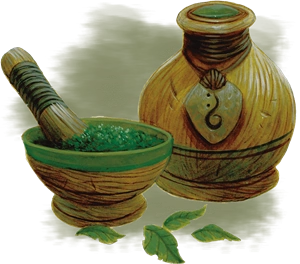
Additional Potions
Later in this module are the aforementioned potions that have not been seen in any D&D book thus far. Such as the "potion of primal savagery", "potion of wrath", "phial of resurrection", "potion of glibness", "potion of prowess", and the ultimate "potion of unleashed potential".
Viping Vitalis
A collection of red-hued, moss-like ivy that hangs from trees, rock sides, and other surfaces.
Unit value: 75 gp
Alchemy: Used to craft potions of supreme restoration (ie: potion of supreme healing, potion of supreme mana, potion of supreme stamina).
Wisp Stems
This tiny flower looks like a bright blue dandelion seed head. Even though it looks pretty, the stem is the only usable part for alchemical concoctions.
Unit value: 40 gp
Alchemy: Used to craft potions of vitality.
White Poppy
A beautiful white flower that grows up to 4 feet tall and consists of 5 petals, giving it a small star-like shape.
Unit value: 10 gp
Alchemy: Used to craft potions of growth, and potions of diminution.
Wuggy Moss
A mossy bright green sponge that grows along shorelines - its tendency to disperse oxygen from the surrounding water usually keeps waterlife from thriving nearby.
Unit value: 20 gp
Alchemy: used to craft the poison called fish out of water.
Xeni Leaves
Dark grey trees with Sage green leaves, these seemigly haunted trees look in a constant state of autumnal death - the leaves decay rapidly when shed from the branches within a few days - leaving a smokey vapor in their wake.
Unit value: 40 gp
Alchemy: Used to craft potions of gaseous form.
More art than science?
The plants and herbs listed are attributed to crating most forms of potions and poisons that are available in game. However, some methods of creating potions may require multiple differing ingredients - as per DM's discretion:
- Perhaps the "Extreme Restoration Potion", with no obvious ingredient listed, would require a unit of each ingredient that made up it's lesser forms, namely: blue herb, kreet paste, spineflower berries, and viping vitalis.
- A "Potion of Invulnerability" may require a unit of each other resistance potion's ingredients.
- Even a "Resurrection Draught" may require the ingredients of an "Extreme Restoration potion" to be combined with Pargen Vine.



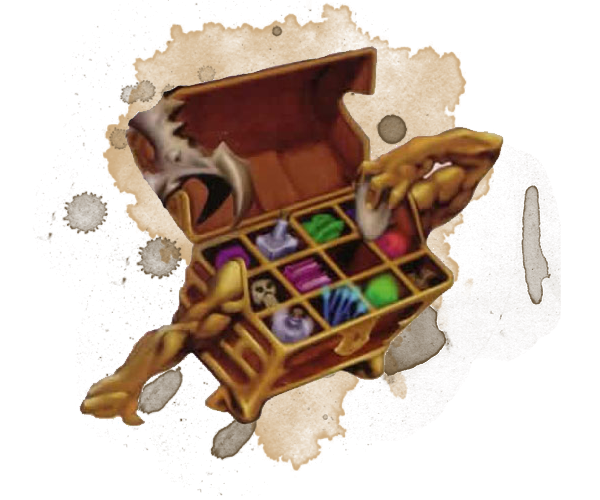
Creatures
Creature materials are used mainly for clothing and armor, as hides and leathers aren't utilized for crafting weapons.
Bone (updated)
A series of bones joined together, mostly used by shamans and wildlings.
Unit value: Determined by the creature's CR.
Weapon: Replaces the metal and wood; gain +1 to their damage rolls.
Armor: Replaces the metal. While wearing a medium or heavy armor (non hide) made with bones, you gain a +3 bonus to Charisma (Intimidation) checks you make.
Chitin (updated)
These flexible shells of chitinous creatures such as giant crabs or remorhaz are used to craft armors, known to be lighter than metallic armors.
Unit value: 100 gp
Armor: Replaces the metal. While wearing a medium armor (non hide) made with chitin, the armor's dexterity bonus increases by 1.
Heavy armors made with chitin reduce the Strength requirement by 1.
Creature Essence
All creatures are different, but they're grouped up in types which determines their fundamental natures. These items are generally referred to as "salts" for the sake of simplicity (ie: fire salts - for fire elementals, dragon salts - for dragons, etc.)
Unit value: Determined by the creature's CR.
Weapon: Can be used to craft specific slaying weapons such as weapons of dragon or giant slaying.
Other: Can be used to craft specific potions, alchemical concoctions, and magic items such as a brazier of commanding elementals
Essence Salts
All creatures are divided into types, and characters can extract a unit of their essence using an essence extraction device - each creature can only grant 1 unit of essence salts. Essence salts come in many forms - and there is typically a salt for each type of creature. Below are a few examples of common salts:
- Ignan salts - fire elementals
- Aquan salts - water elementals
- Terran salts - earth elementals
- Auran salts - air elementals
- Monstra salts - monstrosities
- Draco salts - dragons
- Jotun salts - giants
- Sinister salts - undead, cursed and shadowfell creatures
- Jovial salts - fey, otherworldly and feywild creatures
- Profane salts - infernal creatures
- Hallowed salts - celestial creatures
- Psudon salts - aberration creatures
Monster Feathers
Hippogriffs, Rocs, giant eagles and other flying creatures have beautiful, multicolored feathers used to show their majesty.
Unit value: Determined by the creature's CR.
Armor: While wearing clothing or any non-metallic armor made with monster feathers, you gain a +3 bonus to Wisdom (Animal Handling) checks you make.
Monster Scales
Scales harvested from creatures, with a variety of colors, shapes and sizes.
Unit value: Determined by the creature's CR.
Armor: Replaces the metal. Used to craft a scale mail, or similarly scaled, armor.
Illkalic Hide
This sage-brown hide is harvested from bog and marshland creatures.
Unit value: 250 gp
Armor: While wearing clothing or a hide/leather armor made with illkalic hide, acid damage you take is reduced by 3.
Solstini Hide
This white-grey hide is harvested from tundra and cold area creatures.
Unit Value: 250 gp
Armor: While wearing clothing or a hide/leather armor made with solstini hide, cold damage you take is reduced by 3.
Ellond Hide
This brown-orange hide is harvested from desert and dry area creatures.
Unit value: 250 gp
Armor: While wearing clothing or a hide/leather armor made with ellond hide, fire damage you take is reduced by 3.
Zetic Hide
This indigo blue hide is harvested from coastal and oceanic area creatures.
Unit value: 250 gp
Armor: While wearing clothing or a hide/leather armor made with zetic hide, lightning damage you take is reduced by 3.
Dinakond Hide
This stale stone-grey hide is harvested from mountainous and elevated area creatures.
Unit value: 250 gp
Armor: While wearing clothing or a hide/leather armor made with Dinakond hide, thunder damage you take is reduced by 3.
Thoxx Hide
This splotched sickly green and black hide is harvested from especially poisonous environmental creatures.
Unit value: 250 gp
Armor: While wearing clothing or a hide/leather armor made with Thoxx hide, thunder damage you take is reduced by 3.
Stellar Hide
This brightly pale, and slightly metallic, cream colored hide is harvested from celestial and similar creatures.
General: All Stellar hide items are ritualistically magical in nature - weapons, armor, and items are considered magical for overcoming resistance and immunity.
Unit value: 500 gp
Armor: While wearing clothing or a hide/leather armor made with stellar hide, radiant damage you take is reduced by 3.
Shadow Hide
This deep, almost pitch black, dark hide is harvested from infernal and similar creatures.
General: All Shadow hide items are ritualistically magical in nature - weapons, armor, and items are considered magical for overcoming resistance and immunity.
Unit value: 500 gp
Armor: While wearing clothing or a hide/leather armor made with shadow hide, necrotic damage you take is reduced by 3.
Paranic Hide
This slick grey, mottled purple hide is harvested from abberations and particularly psychic creatures.
General: All Paranic hide items are magical in nature, weapons gain a +1 magical bonus to attack and damage rolls, and armor gains a +1 to it's AC.
Unit value: 750 gp
Armor: While wearing clothing or a hide/leather armor made with paranic hide, psychic damage you take is reduced by 3.
Other uses for hides?
As stated earlier, hides and leathers aren't traditionally used for crafting weapons; however, if your DM allows it, hides used in the construction/hilting of weapons may add an additional effect:
+3 (elemental damage) to their damage rolls. - based on the damage type the hide usually protects against.
Mysterid Hide
This rare, seemingly opalescent hide, is harvested from creatures of a supernatural origin - typically those affected or mutated by exceptionally magical energies. It is difficult to find a creature that exhibits such mutations - and harder to extract from said creature.
General: All Mysterid hide items are magical in nature, weapons gain a +1 magical bonus to attack and damage rolls, and armor gains a +1 to it's AC.
Unit value: 750 gp
Armor: While wearing clothing or a hide/leather armor made with mysterid hide, force damage you take is reduced by 3.
Titan Marrow
The bones left over from falled titans, such as Astral Dreadnoughts, Atropals, Empyreans, Krakens, Tarrasques, and other legendary creatures of Godly construction. These bones carry inside them residual divine energies from the Titans they once were a part of, and therefore, still retain massive power.
Titan Marrow is rediculously rare to come across, as killing a Titan will no doubt be an achievement of monumental proportions - doing so, and then harvesting it's bones would yield extreme renown and reward. Therefore it's value is too astronomical to state. Titan Marrow has all effects of Bone, with it's own abilities as well:
General: All Titan Marrow items are highly magical in nature, weapons gain a +2 magical bonus to attack and damage rolls, and armor gains a +2 to it's AC.
All Titan's Ivory items bestow Advantage to all Charisma (Intimidation) and Charisma (Persuassion) checks the wearer makes.
Weapons: The crit range for Titan Marrow weapons is increased by 1 - regardless of what your current crit range is.
Armor and Shields: Once per dawn, bestows upon it's wearer temporary hit points equal to 2x one of the creature's hit dice. These temporary hit points last until the next dawn. (ex: a barbarian with d12 hit dice, rolls a 6 on one, therefore; gains 12 temporary hp till next dawn.)

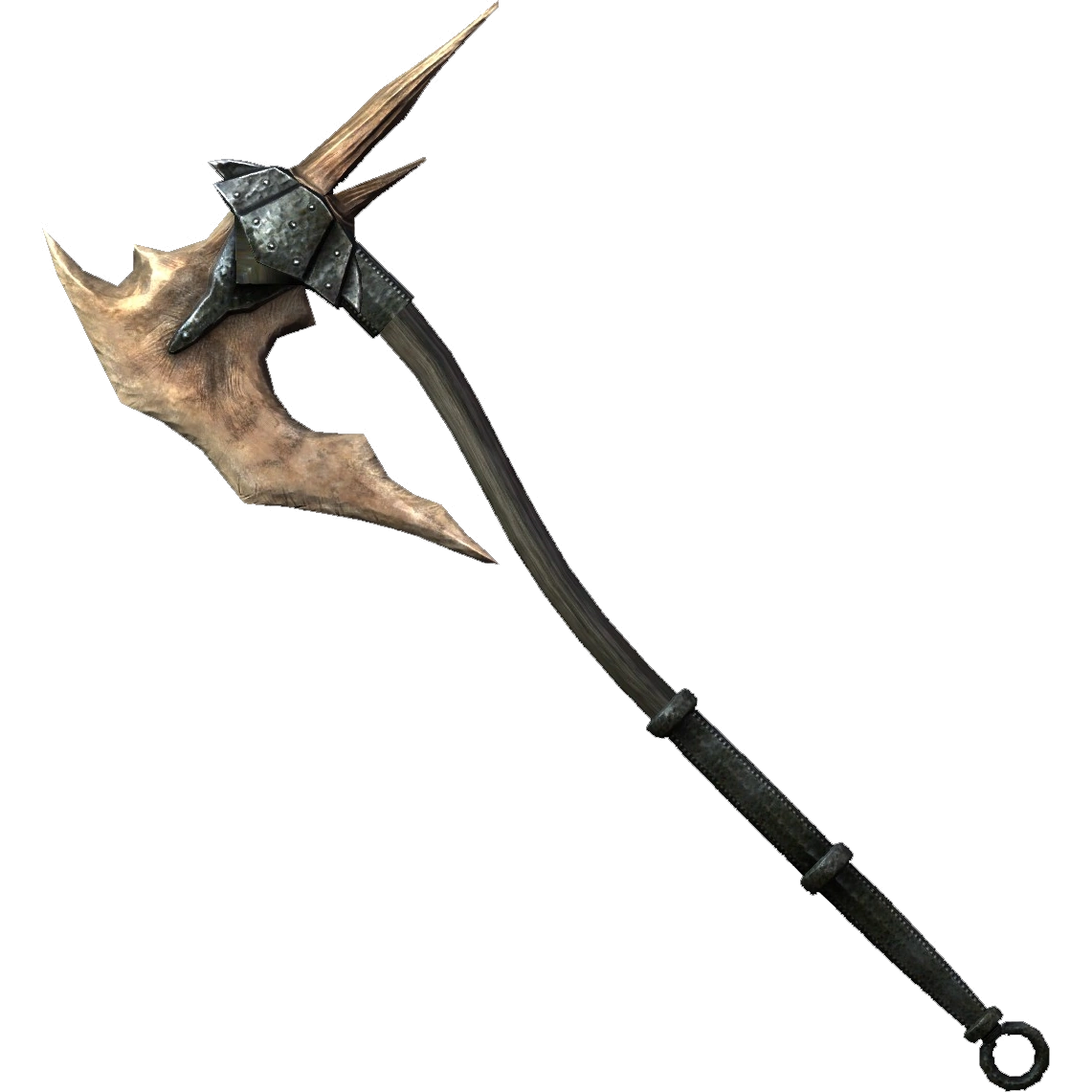

Metals
Iron
A sturdy metal overall, iron is inferior to steel in practical regards. Any item made with iron will cost less than a steel equivalent, but will be slightly less effective.
Unit Cost: Half it's normal steel cost in gold.
General: All items made of Iron have the DC of strength checks made to break them reduced by 1. (as compared to steel items of the same make.)
Weapons, traps, and other metallic creations: Gain -1 to their damage rolls (to a minimum of 1 damage)
Armor and Shields: Gain -1 to their AC value.
Steel
The ubiquitous choice for smiths, crafters, and handymen when arming a soldier or warrior, or even preparing tools and items. Strong and durable, smiths can always put their trust in steel.
Unit Cost: As per standard cost.
General: All items made with steel follow the same rules as their Player's Handbook equivalent as well as any special rules granted by a Trait crafted into the item.
Alchemical Silver
A natural deterrent against most supernatural beings, Some monsters are susceptible to silvered weapons, so cautious adventurers invest extra coin to plate their weapons with alchemical silver. Created by the process of transmuting lead into silver, this is why it maintains some form of magical properties without having to be enhanced by further magical effects.
Unit Cost: 100 gp
Weapons: Count as a magical weapon for the purposes of overcoming resistances and immunities.
Armor and Shields: You impose disadvantage on attacks from creatures hurt by silver.
Cold Iron (updated)
Appearing to be mundane iron, but exhibits a faint blue sheen when exposed to magical light. Cold Iron is mundane iron worked entirely without heat, being fashioned exclusively while cold and with slight ritualistic magics, this process, however, does not make the cold iron magical - but does make it particularly effective against the Fey folk.
Unit Cost: 250 gp
Weapons: When you hit a fey creature with a Cold iron weapon, you can reroll the damage and use either result.
Armor and Shields: Grants a +1 bonus to any saving throws made against attacks or spells made by fey creatures. Additionally, while a creature is donned with an item of Cold Iron, they have advantage against being charmed or magically put to sleep.
Diolode
A form of iron that is mottled purple and with a red sheen when exposed to magical light. Typically found near extremely calm or untouched lakes, rivers, or other natural water sources. Something about the nature of this metal seems to bring out calm contentment in living creatures. It is often used to make holy symbols or sacred objects. The nature of this metal makes it particularly effective to combat undead.
Unit Cost: 250 gp
Weapons: When you hit an undead creature with a Diolode weapon, you can reroll the damage and use either result.
Armor and Shields: Grants a +1 bonus to any saving throws made against attacks or spells made by undead creatures. Additionally, a creature donned with an item of Diolode on their corpse cannot be turned into undead unless the item is removed, and only 6 hours after removing it.
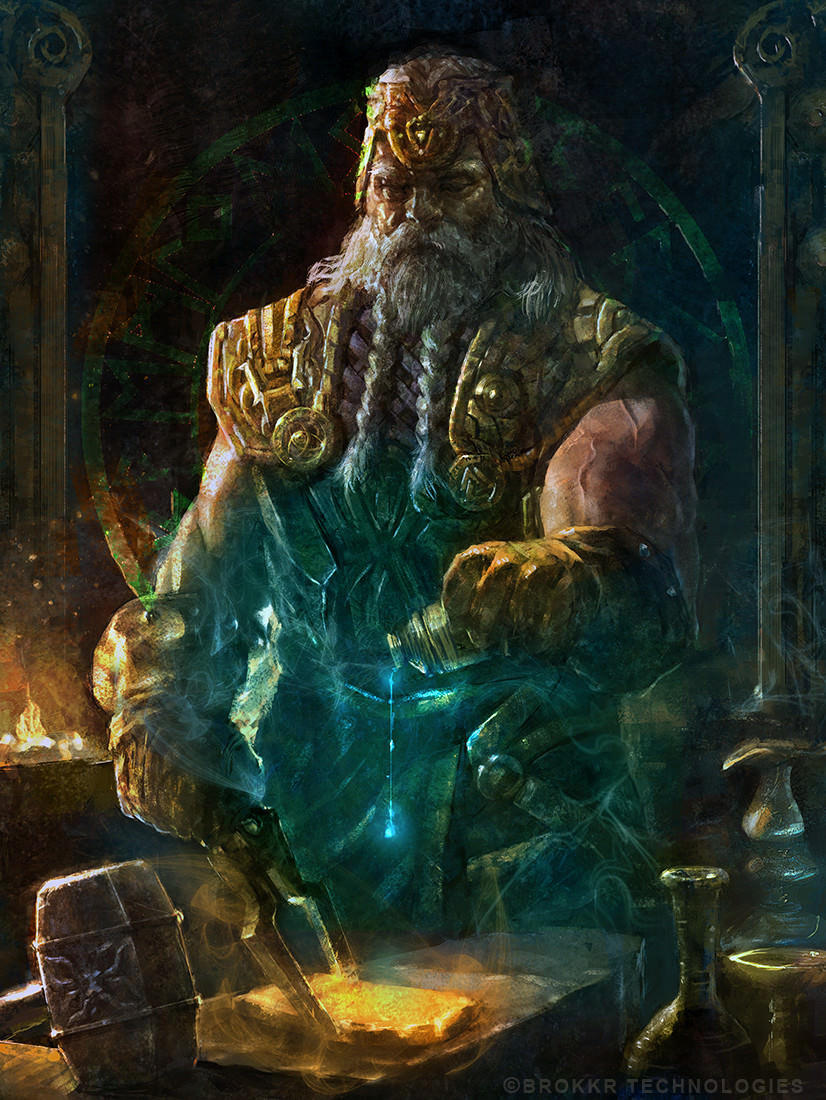


Caustinite
A deep, metallic sickly green, Caustinite is an acidic metal, sometimes in mass quantities, it can dissolve itself from being overly acidic. Found typically under ancient bogs and swamplands near volcanic vents, this metal is difficult to handle.
Unit Cost: 500 gp
Weapons: Deals an extra 1d6 Acid damage on strike.
Armor and Shields: Reduce the amount of damage done by sources of acid by 1d6.
Cryrium
Bearing the color of sky blue silver, Cryrium is an unnaturally cold metal that consistently gathers a layer of frost on it's surface. Found in the most remote and desolately cold and frozen tundras where ice and snow have fallen for centuries untouched.
Unit Cost: 500 gp
Weapons: Deal an extra 1d6 Cold damage on strike.
Armor and Shields: Reduce the amount of damage done by sources of cold by 1d6.
Feverus (Replaces Infernal Steel)
A matte bronzen steel while cold, Feverus is a constantly hot metal that appears as heated iron. Always putting off heat with a faint red glow, this metal is typically found in barren magma fields, volcanoes, and other consistently hot areas; especially where lavaflow is common.
Unit Cost: 500 gp
Weapons: Deal an extra 1d6 Fire damage on strike.
Armor and Shields: Reduce the amount of damage done by sources of fire by 1d6.
Fulmenar (Replaces Darksteel)
A semi-metallic blackened blue metal with a purple sheen, Fulmenar is an energized metal that, at times, discharges static and electrical pulses. Typically found in mountain tops and coastal crags where storms rage and the force of the tides and lightning push their way into the surrounding ore.
Unit Cost: 500 gp
Weapons: Deal an extra 1d6 Lightning damage on strike.
Armor and Shields: Reduce the amount of damage done by sources of lightning by 1d6.
Tonitius
A deep, mirrored gray metal with a pinkish hue, Tonitius is seemingly normal in it's function, yet, when it is struck, or strikes another surface, it reverberates loudly with a deafening tone. This metal is found in deep canyons and craters where rockslides, avalanches, and tumultuous earthquakes are very common.
Unit Cost: 500 gp
Weapons: Deal an extra 1d6 Thunder damage on strike.
Armor and Shields: Reduce the amount of damage done by sources of thunder by 1d6.
Morghite (Replaces Plaguesteel)
A russet brown metal with specks of green throughout its surface, Morghite is a fume-producing and noxious substance. It gives off a toxic, nauseating smell that makes it difficult to mine, but not difficult to find. Found normally in old jungle caves and locations where toxic substances are highly common such as extremely old sewers.
Unit Cost: 500 gp
Weapons: Deal an extra 1d6 Poison damage on strike.
Armor and Shields: Reduce the amount of damage done by sources of poison by 1d6.
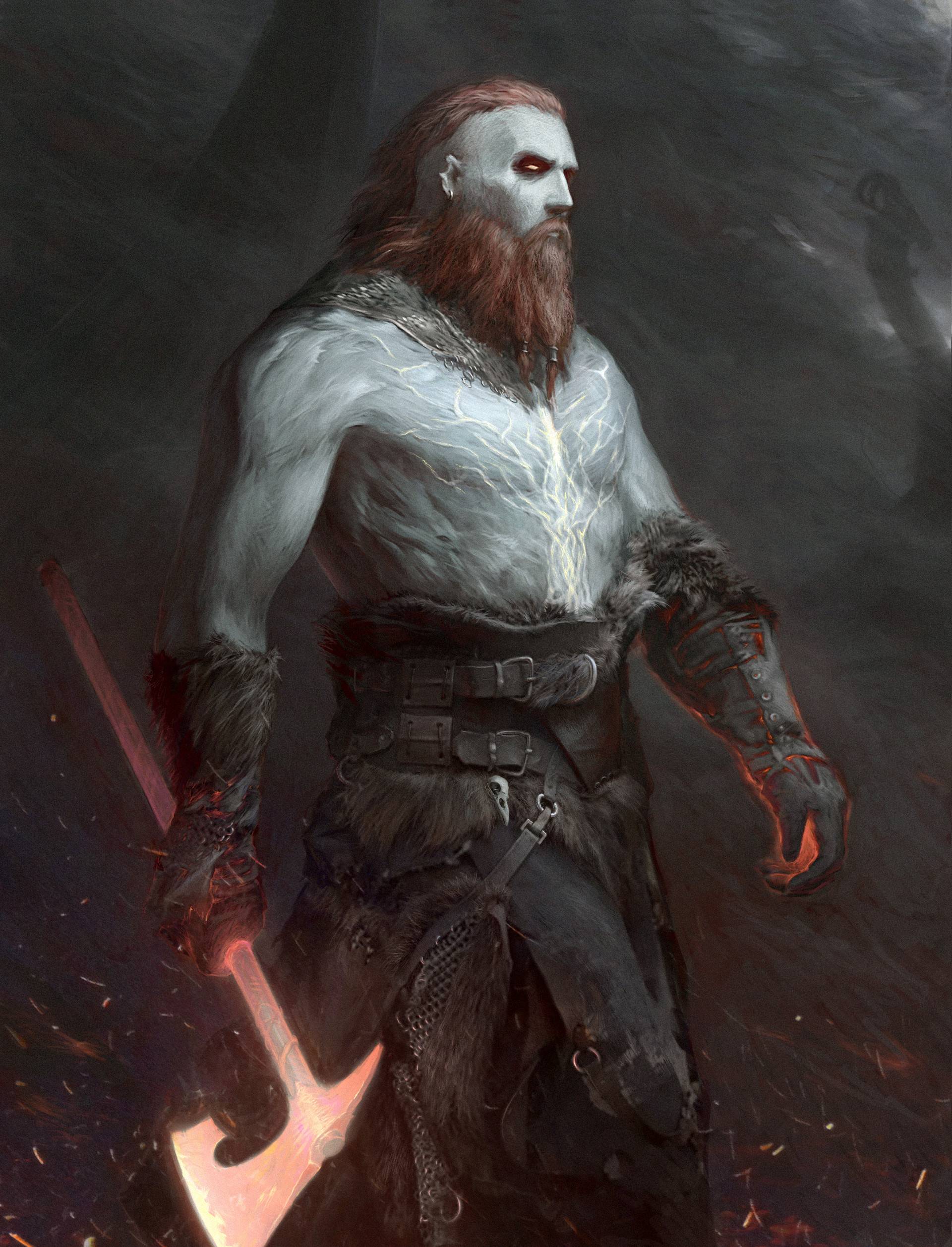

Mithral (updated)
A beautiful silvery metal commonly used by the elves and dwarves. It is said to be as light as a feather, and stronger than steel. Mithral is a unique metal in its low weight and high ductility, making it difficult to manipulate properly if you are not careful.
Unit Cost: 500 gp
General: All Mithral items weigh half their normal weight. Weapons: A weapon with the Light property weighs nothing if crafted with mithral and gains Finesse. All weapons with neither the Light nor the Heavy property gains the Light property if crafted with mithral A weapon with the Heavy property loses the Heavy property if crafted with mithral.
Armor: Requires no Strength requirement. Heavy Armor made from Mithral counts as Medium Armor for armor proficiencies, and Medium Armor counts as Light Armor for armor proficiencies. Additionally, medium armor made of mithral allows the user to add a max of +3 from their Dexterity Modifier to their AC, instead of +2. While wearing Mithral armor, you don’t suffer disadvantage on Dexterity (stealth) checks, even if the armor would normally impose disadvantage.
Shields: made from mithral gain the light property (and therefore may be used in two-weapon fighting.) In addition, so long as the wearer is conscious and can see/hear/sense a threat, the wearer adds the AC bonus of their shield to their Dexterity saving throws.
Other: Mithral ammunition can be fired out to the long range of the weapon it is fired from without suffering disadvantage.
Umbrium (Replaces Asmoroch steel)
Found within rare veins down in the depths of the Underdark or near areas afflicted by the Hells, Umbrium is typically found in drow and duergar societies, and favored amongst devilish or demonic groups. Ruddy Brown when found as ore, umbrium turns a dark fiery red when heated and cools to a copperish black. It has a draining property on living creatures, and a particularly negative effect upon celestial beings.
Unit Cost: 750 gp
General: All Umbrium items are ritualistically magical in nature - weapons, armor, and items are considered magical for overcoming resistance and immunity.
Weapons: When you hit a celestial creature with an Umbrium weapon, you can reroll the damage and use either result. An Umbrium weapon deals an extra 1d6 Necrotic damage on strike.
Armor and Shields: Grants a +1 bonus to any saving throws made against attacks or spells made by celestial creatures. Additionally, a creature donned with an item of Umbrium has advantage on stealth checks in lightly obscured areas (such as shadows, fog, or mist).
Reduce the amount of damage done by sources of necrotic by 1d6.
Aurorium (Replaces Stellar Iron)
Also known as "Sky gold", this silvery-gold metal is as strong as steel, and appears to glimmer with a holy aura. Found in the tallest mountains that pierce the sky, or in places touched by the heavens. Favored by churches, holy groups, and some monestaries for it's innate "anti-evil" abilities, Aururium is particularly effective in combating fiendish beings, as it seems to burn with even the slightest touch.
Unit Cost: 750 gp
General: All Aurorium items are ritualistically magical in nature - weapons, armor, and items are considered magical for overcoming resistance and immunity.
Weapons: When you hit a fiendish creature with an Aurorium weapon, you can reroll the damage and use either result. An Aurorium weapon deals an extra 1d6 Radiant damage on strike.
Armor and Shields: Grants a +1 bonus to any saving throws made against attacks or spells made by fiendish creatures. Additionally, a creature donned with an item of Aurorium emits bright light for 5 feet -and dim light for an additional 5 feet - but can snuff this light as an Action.
Reduce the amount of damage done by sources of radiant by 1d6.
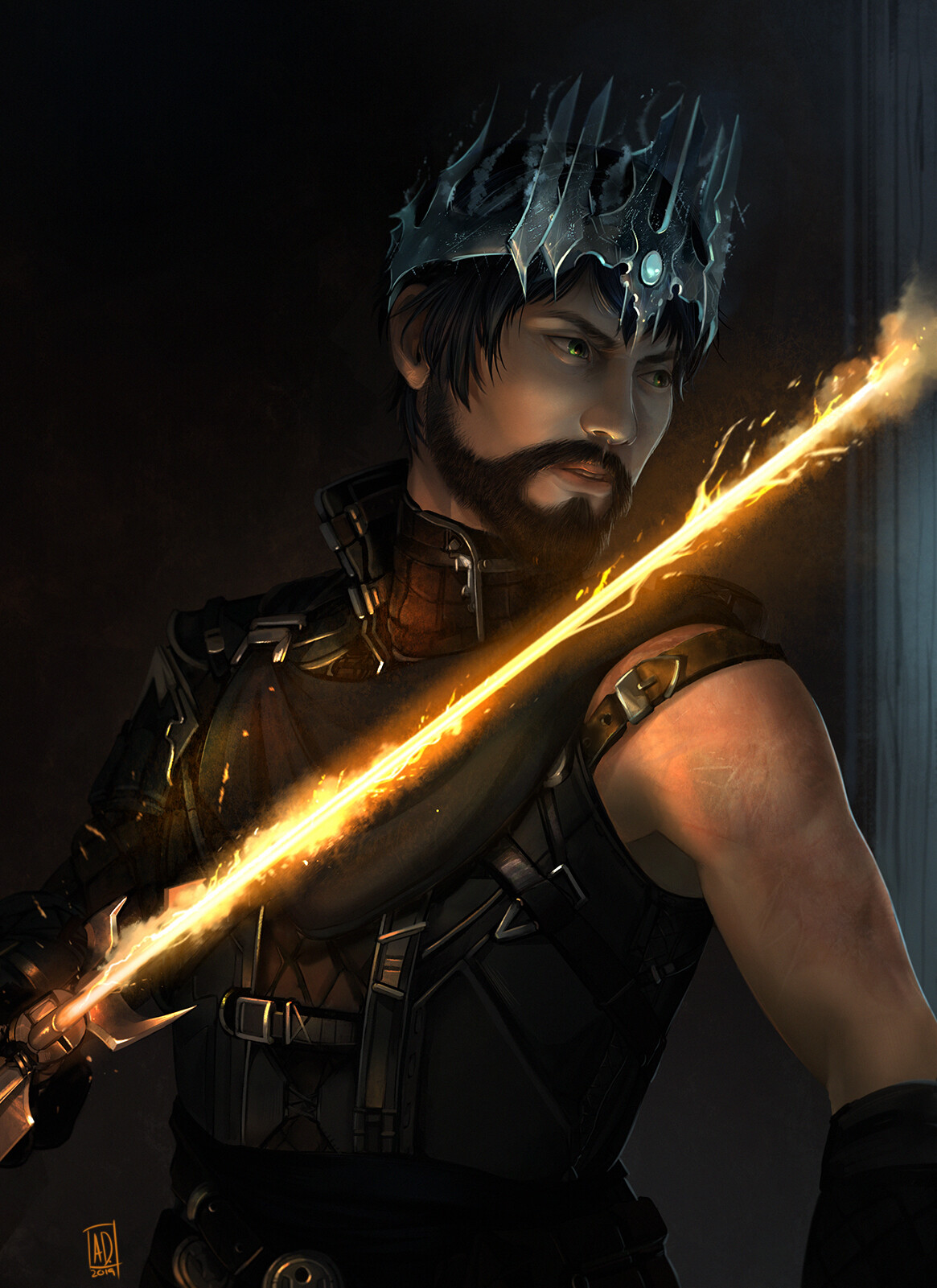

Entropium
A lithe and springy, brilliantly mirrored, silver metal. This metal is highly sought after for it's capability to store and redirect both potential and kinetic energies. Found in strange, twisted metal veins beneath very old great battles or tragedies. It's ability to disrupt entropic energies makes it ideal to fight elemental beings.
Unit Cost: 750 gp
General: All Entropium items are ritualistically magical in nature - weapons, armor, and items are considered magical for overcoming resistance and immunity.
All Entropium items seek to become whole again if ever seperated. If ever broken, an entropium item will mend themselves.
Weapons: When you hit an elemental creature with an Entropium weapon, you can reroll the damage and use either result. Deals a damage die higher than it's typical die (ex: scimitar: deals 1d6 typically, now deals 1d8).
Armor and Shields: Grants a +1 bonus to any saving throws made against attacks or spells made by elemental creatures.
Ferroplasma
Also known as "Quicksilver", Ferroplasma is a a psychically ionized, semi-liquid metallic-plasma that typically only the gith species know how to process and manipulate to the fullest. Generally found in the astral plane in the fray of psychic storms in the form of silvery hail, and very rarely: found in liquid pools on floating remains of petrified dead gods. Most gith set up psionic nets on ships and in the astral plane to collect ferroplasma as psychic storms pass through - as harvesting it from the remains of dead gods can impose the wrath of the Guardian of the Vestiges: Anubis.
Unit Cost: 750 gp
General: All Ferroplasma items are magical in nature, weapons gain a +1 magical bonus to attack and damage rolls, and armor gains a +1 to it's AC. Ferroplasma items are always under the “Metamorphic” item effect, as their structure is constantly shifting.
Weapons: When you hit an abberation creature with a Ferroplasma weapon, you can reroll the damage and use either result. A Ferroplasma weapon deals an extra 1d6 Psychic damage on strike. Additionally, When you roll a critical hit with a quicksilver weapon against a target in an astral body (as with the astral projection spell), you can cut the silvery cord that tethers the target to its material body, instead of dealing damage.
Armor and Shields: Grants a +1 bonus to any saving throws made against attacks or spells made by abberation creatures. Additionally, a creature donned with armor of ferroplasma is immune to all silvery cord damage.
Reduce the amount of damage done by sources of psychic by 1d6.
Orichalcum (updated)
A Bronze orange metal with a blood red sheen, typically found in high pressure locations such as deep beneath volcanoes or deep under water in volcanic trenches. This metal exhibits a high capability to "warp" gravity and natural energies around it innately, exhibiting a forceful aura. It is highly difficult to craft due to it's resistance to pressure and force.
Unit Cost: 1,000 gp
General: All Orichalcum items are magical in nature, weapons gain a +1 magical bonus to attack and damage rolls, and armor gains a +1 to it's AC.
Weapons: An Orichalcum weapon deals an extra 1d6 Force damage on strike. Additionally, whenever you critically hit with an Orichalcum weapon, reroll the damage roll and keep the higher of the two results.
Armor and Shields: Reduce the damage dealt to you by all sources by 1d10. Additionally, critical attacks against you re-roll the damage dice, taking the lower damage result.
Reduce the amount of damage done by sources of force by 1d6.

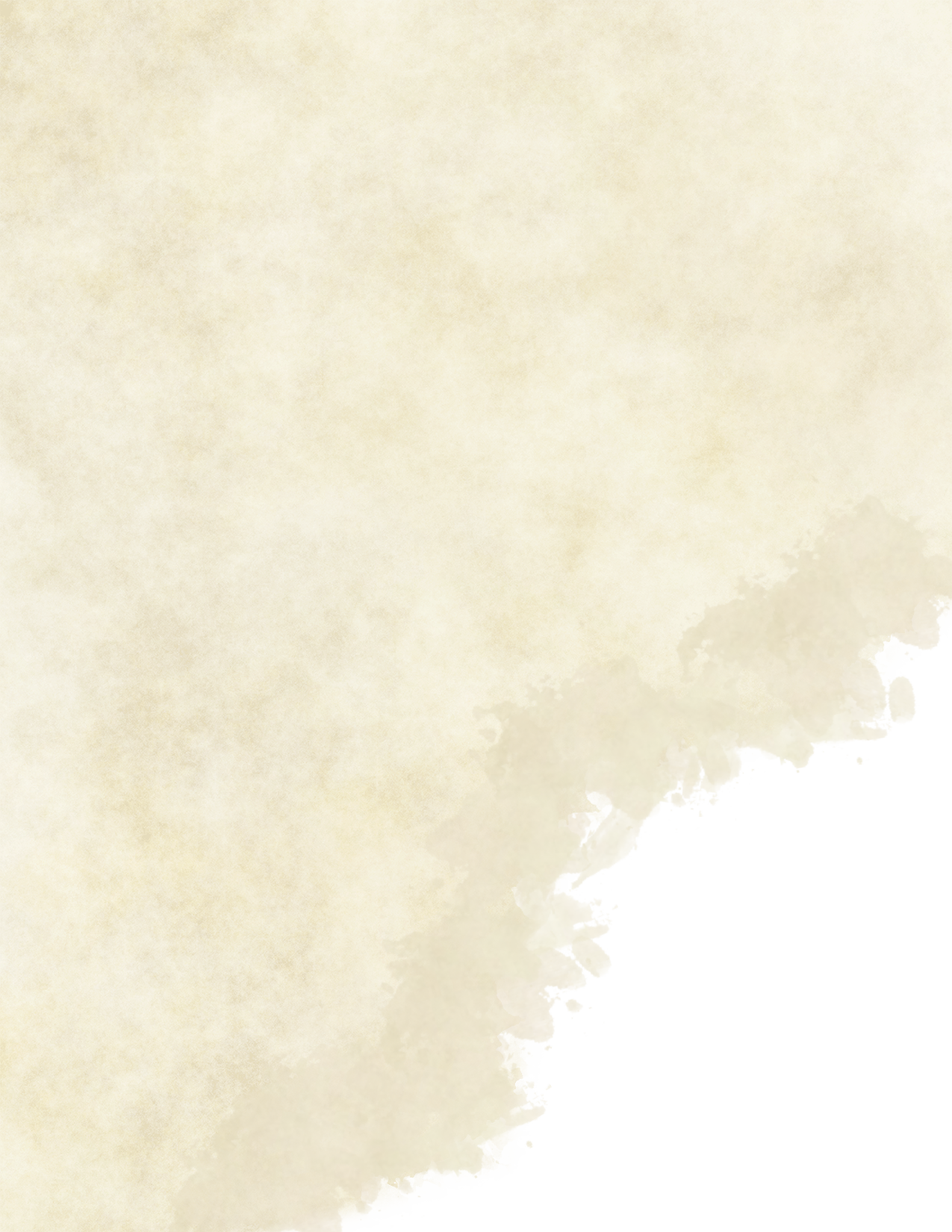
Finimagus
Also known as "Voidstone" or "Magebane", despite being inherently magical itself, this pitch black metal can temporarily nullify creatures from the weave - it is thought that the material "absorbs" the creature's magic. Finimagus has been used often to make prisons and shackles for spellcasters. Simply touching the metal is not enough to trigger the effects, so a mount with barding made of finimagus won't affect the rider. Found very rarely in mountaintops and caves where the ethereal plane touches, and where heavy magical prescences reside.
Unit Cost: 1,000 gp
General: All Finimagus items are magical in nature, weapons gain a +1 magical bonus to attack and damage rolls, and armor gains a +1 to it's AC.
All Wielded or worn items made of finimagus render the user unable to cast or concentrate on spells. Any spell that is currently being maintained by a creature who draws such a weapon or dons such an armor end immediately. The same also applies to creature bound (ie: chains, manacles, shackles) or trapped by (ie: hunting trap) items made of finimagus.
Weapons: When dealing damage to a spellcaster, imposes disadvantage on all saving throws to maintain concentration. Additionally, creatures hit by finimagus weapons must make a DC 13 Wisdom save or have their lowest spell slot expended, so long as they have spellslots.
Armor and Shields: Grants the wearer advantage against all spells and magical effects. Additionally, any attempts to scry you while wearing finimagus armor are nulled.
Adamantium (updated)
Said to be the strongest substance in the realms, It's smokey and opalescent silver surface exhibits a greenish sheen in light. Adamantium is found in rare mineral veins deep within the world, or in meteorites that have come from other planets.
Unit Cost: 2,000 gp
General: All Adamantium items are magical in nature, weapons gain a +1 magical bonus to attack and damage rolls, and armor gains a +1 to it's AC.
All Adamantium items weigh twice their normal weight, have twice the number of hit points, and are considered Indestructible - except when hit with another indestructible item, it is then counted as having an additional +5 to any Strength check made to break them.
Weapons: When hitting a non-indestructible object, deal damage equal to max critical damage.
Armor and Shields: Cancels any critical hit, making it a normal hit. (If a adamantium weapon was used against a adamantium armor, it becomes possible to land critical hits.)
Viridium
Also known in some circles as "Godsbane"; rumored to be adamantium from the far realms beyond the multiverse, this adamntium mined from very rare, green-tailed meteroites is especially vibrant green in color with a white sheen, and is approached with much skepticism. Considered forbidden, taboo, and at times, even cursed by most religious or occult institutions for it’s inherent harmful effects against the outer powers.
Viridium is so mythically rare, that it's even more rare to find a craftsmen or entity that can forge and shape it...or is even willing to - considering it's properties. Therefore, the cost is so astronomically vast, that it's not worth stating. It should be noted, that even carrying a piece of Viridium is enough to pique the interest and potential ire of many an entity. Viridium has all effects of adamantium, with it's own abilities as well:
General: All Viridium items are highly magical in nature, weapons gain a +2 magical bonus to attack and damage rolls, and armor gains a +2 to it's AC. All Viridium Items are considered to be innate "Anathemas", meaning that they naturally are considered agents of depowerment towards deities and other godly beings. When a deity is in the presence of a Viridium item, it's Divine Rank drops by 1 point until the item is removed from their presence.
Weapons: Deals an extra 1d6 Aetherion damage on strike. When you hit any outsider creature with a Viridium weapon, you can reroll the damage and use either result. Weapons made with Viridium deal 2x Aetherion damage to outsiders of all types, or creatures considered planar outsiders, including deities. (abberations, celestials, elementals, fey, fiends, undead, and divine)
Armor and Shields: made of Viridium grant a +2 bonus to any saving throws made against attacks or spells made by any outsider creatures. Armor made with Viridium grants resisitance to bludgeoning, piercing, and slashing damage, as well as Aetherion damage - known to be one of the only ways to counteract Aetherion energy's infamous unblockable damage capabilities.



Stones & Crystals
Coral (updated)
Mostly used by sea and waterborne creatures to create their weapons and armors.
Unit value: 100 gp
Weapons: Any melee weapon made with coral doesn't have disadvantage on the attacks rolls while underwater.
Armor: Replaces the metal. While wearing a medium or heavy armor (non hide) made with coral, you speed while swimming increases by 10 feet.
Obsidian (updated)
Volcanic glass created from cooled magma or lava, it ranges in colors from black to deep purple shades. Well known for it's durability, as well as it's incredible sharpness and ability to pierce, slash, and even bludgeon with it's sharp angled structure. Found exclusively in old volcanic areas where lavaflow was once common.
Unit Cost: 250 gp
Weapons: Deals an extra die of damage on strike - regardless of whether it does bludgeoning, piercing or slashing damage, as obsidian's light and angled nature imposes harder strikes.
Armor and Shields: Deals 1d6 piercing damage to any creatures that attempt to grapple, physically restrain, or grab you.
Pearl Steel
An alloy made from alchemically melted pearls and combining it with high quality steel, the result is a semi-metallic, glossy cream-like pink to yellow, stone. This makes beautiful, elegant, and often fairly pricey items, that combines the strength of steel with the awe of the ocean.
Unit Cost: 250 gp
Weapons: Gains an additional +1 to hit, if the wielder had moved with their swim speed during their last turn.
Armor and Shields: Allows the user to utilize their normal speed as their swim speed in water.
Aerocrystal (updated)
A light blue, glass-like crystal known for creating quick, precise weapons - found in highly elevated areas; such as mountains, cliffs, and canyons.
Unit value: 250 gp
Weapon: You can use your Dexterity modifier for attacks and damage made with an aerocrystal weapon - regardless of the weapon's weight or type.
Armor: Replaces the metal. While wearing a medium or heavy armor (non hide) made with aerocrystal, increases the Dexterity bonus to AC by 1.
Stygianite
A dark, opaque gray-blue crystal that is found in the deepest and frozen layers of the hells. Often seen wielded or worn by devils and demons alike, for it's icy dark presence forbodes doom.
Unit Cost: 750 gp
General: All Stygianite items are ritualistically magical in nature - weapons, armor, and items are considered magical for overcoming resistance and immunity.
All items made of Stygianite naturally snuff all light sources within a 10 foot radius.
Weapons: When making a melee attack, you can choose to replace the damage type of the attack with necrotic damage.
Armor and Shields: When a creature of Good alignment ends their turn within 5 ft of you, the evil creature takes 1d6 necrotic damage. This includes if the wearer is Good aligned, or if a creature is bound in Stygianite.
Celystine
A beautiful, luminous white-silver crystal that is said to originate in the upper most layers of the heavens. It is often associated with angels and other celestial beings, and it is rare for the crystal to be seen anywhere besides in their service.
Unit Cost: 750 gp
General: All Celystine items are ritualistically magical in nature - weapons, armor, and items are considered magical for overcoming resistance and immunity.
All items made of Celystine naturally give off bright light in a 10 foot radius.
Weapons: When making a melee attack, you can choose to replace the damage type of the attack with radiant damage.
Armor and Shields: When a creature of Evil alignment ends their turn within 5 ft of you, the evil creature takes 1d6 radiant damage. This includes if the wearer is Evil aligned, or if a creature is bound in Celystine.
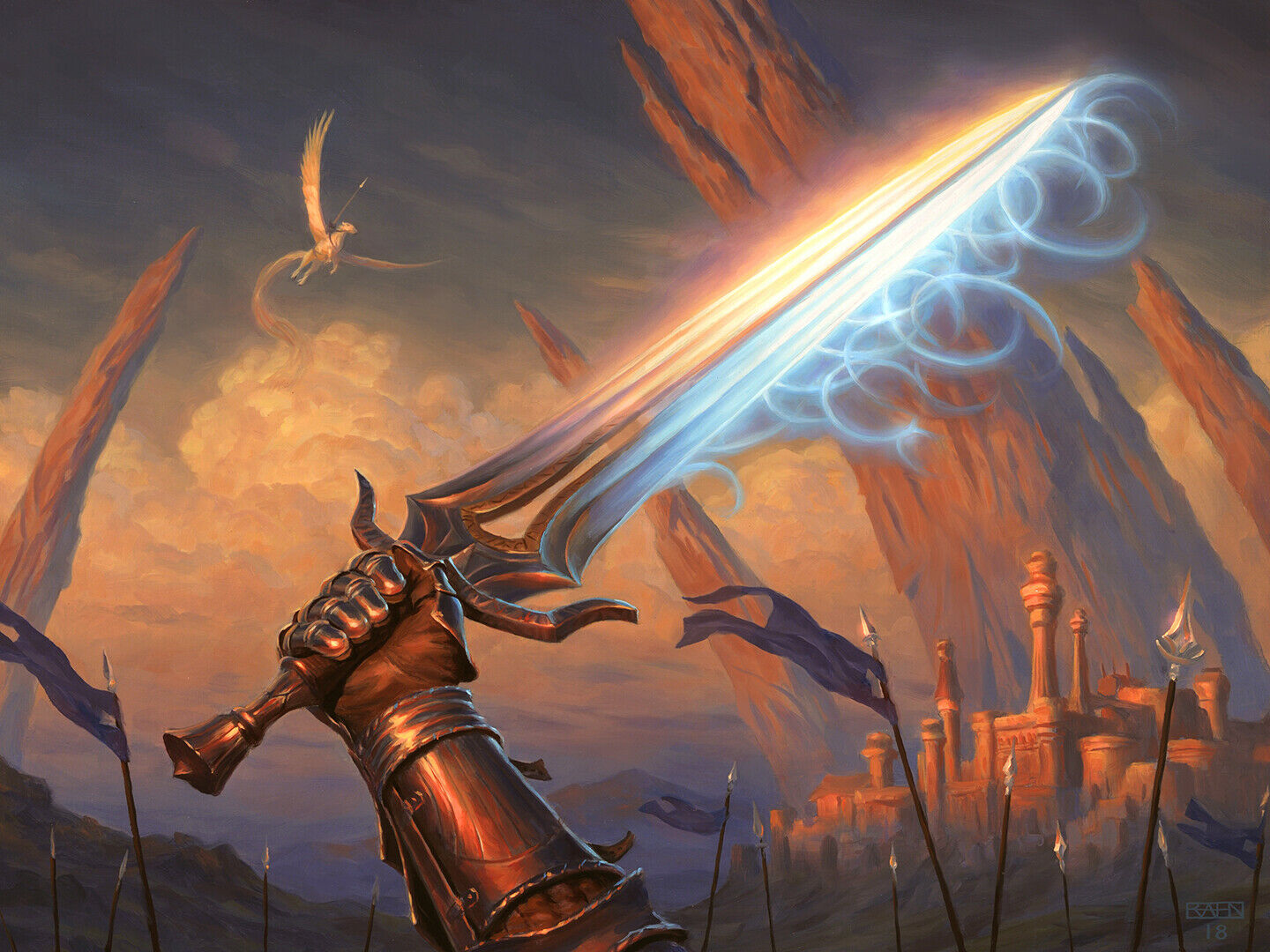


Dendriticite
Dendriticite is a strange, barely luminescent, semi-living crystal that comes in shades of deep purple to blood red - and pulses lightly with an inner glow. Found in some of the deepest caverns in the underdark, this crystal has a tendency to seemingly "consume" blood, it also has a natural inclination for "self-offense" to ensure it receives blood to grow further as a mass. Despite not being a truly living being in any sense, it's thirst for bloodshed is both literal & palpable.
Unit Cost: 750 gp
General: All Dendriticite items are ritualistically magical in nature - weapons, armor, and items are considered magical for overcoming resistance and immunity.
Weapons: Deals an additional 1d6 bludgeoning, piercing, or slashing damage, as the crystal naturally moves to draw blood to feed itself. Additionally, once a day you may spend 1 minute feeding the Dendricite weapon blood to satiate it's hunger - upon doing so, it's additional damage increases to 2d6, and it gains the Reach property for the next 10 minutes as it's structure grows.
Armor and Shields: Whenever the wearer takes over 20 HP of damage in one turn, the Dendricite extends spikey growths that explode outwards dealing 1d10 piercing damage to all creatures within a 10 foot radius centered on the wearer. Additionally, once a day, if you are at anywhere between 1 - 10 HP, you gain +3 AC as the Dendricite cluster feeds on your shed blood and thickens.
Disturbing Discoveries
Dendricite is a material that feeds specifically on shed blood, and will do anything within it's physical capability to sustain itself and grow in mass and size.
It has been observed that the larger the cluster of dendricite, the more viscous and offensive the surrounding crystals become, going as far as to rapidly grow on their own towards sources of blood - indicating a rise in cognitive capabilities.
Some scholars and adventurers have observed the crystal "possessing" still living creatures in a painful act of ventriloquism to bring more blood to the main cluster - producing what some have called "dendricite puppets."
Some items made by dendricite even begin to act erratically and hostile when in the presence of these massive clusters - sometimes turning on their wielders and forcing them to join the cluster itself.
Adventurers should take great care in satiating their Dendricite items with blood on a regular basis, lest they fall victim to it's natural betrayal.


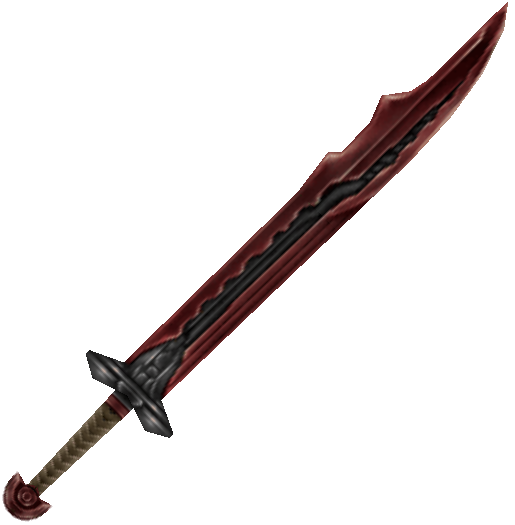
Animite
Also known as "Soul Gem", Animite is unlike most other stones and crystals. Ranging in color from soft pinks, to light blues, to purples and blacks - this crystal yearns for magic and the inherent energies of souls and spirits. Found deep underground where magic has flowed heavily, these crystals can be found in clusters feeding off the excess energies from spells and magical effects, and sometimes if one gets close enough, faint humming can be heard from within the crystals. When heated to a high temperature, animite becomes malleable and ductile without being brittle - much like metal - and if superheated, it becomes a highly explosive white-hot liquid. An expert craftsman can form the crystal before it cools back to it's crystalline structure, holding its new shape.
Unit Cost: 1,000 gp
General: All Animite items are magical in nature, weapons gain a +1 magical bonus to attack and damage rolls, and armor gains a +1 to it's AC.
All items made of Animite may be used as a spellfocus with a +2 to the wielder's spell save DC - from simple objects such as rings and amulets, to shields, weapons and armor. These focuses count towards holy, arcane, druidic, psionic, and all other spellfocuses. Additionally, Animite objects are always capable of housing a soul within it as per the "Soul cage" spell and similar effects.
Weapons: Can naturally cast "Soul Cage" upon a creature killed with it. This can only be done once per day, and only if it is a "vacant" animite piece.
Armor and Shields: Grants their wearer advantage on all saving throws made to maintain concentration for spells.
Animite and Dragonshards
Animite functions almost identically to dragonshards found in the book "Eberron: Rising from the last war"
The Soul Within the Gem
Pieces of animite, whether they be weapons, armor, shields, or simple objects can each hold a soul within itself. The table below dictates the "estimated" value of a particular soul based on it's Hit Dice Value - the value may increase or decrease depending on the buyer/appraiser in question.
The value of the soul is added onto the base unit cost. For example: One unit of animite with an adventurer's soul is worth 1800 gp.
Hit Dice Soul "Type" Estimated Value 1-2 Lost Soul 200 gp 3-4 Wanderer's Soul 400 gp 5-6 Adventurer's Soul 800 gp 7-8 Nameless Soldier's Soul 1,000 gp 9-10 Warrior's Soul 2,000 gp 11-12 Brave Warrior's Soul 4,000 gp 13-14 Knight's Soul 6,000 gp 15-16 Proud Knight's Soul 8,000 gp 17-18 Hero's Soul 10,000 gp 19-20 Great Hero's Soul 25,000 gp 21-22 Lord's Soul 40,000 gp 23-24 Mighty Lord's Soul 55,000 gp 25-26 Guardian's Soul 70,000 gp 27-28 Grand Guardian's Soul 85,000 gp 29-30 Ascended Soul 100,000 gp Souls of creatures above 30 Hit Dice are considered too powerful to be contained within a piece of animite, or may need special circumstances and magics in order to trap them - these souls are nearly priceless.
Animite pieces with souls within them can be used to cover the cost of materials for both spells and crafting equal to their estimated value - so long as the craftsman knows how to utilize it without leveling the surrounding area.*
*Explosive Working Conditions
Animite becomes a white hot liquid when super heated, and this liquid becomes highly unstable. When a piece of animite housing a soul is melted, the energies are also released.
Liquid animite deals 1 force (+ 1 aetherion damage - if a soul was within it) per second when touched, if it comes into contact with any form of magic damage, it explodes in a 20 foot radius, dealing 2d20 Force damage (+ 2d20 Aetherion damage - if a soul was within it) per gallon.




Chlorophyte
This bright, luminously glowing green stone is an enigma, A living mineral with a latent psionic frequency all it's own - this stone slowly converts dirt, mud, and stone in contact with it into more of itself; presumably through some form of virus-like regeneration, which then forms a vast network that begins to expand deep underground. Long a mystery to many scholars, sages, and mystics - they speculate it arrived to this world thousands of centuries ago when it fell from the stars. This living mineral forms a complex lattice in host materials - typically stone or similar earthen substances - and possesses only the barest glimmers of thought and cognition. Chlorophyte turns its residual psionic powers to suit the intentions of any intelligent beings in physical contact with it. A creature in physical contact with a network of chlorophyte can make use of its limited psionic properties.
Unit Cost: 2,000 gp
General: All Chlorophyte items are magical in nature, weapons gain a +1 magical bonus to attack and damage rolls, and armor gains a +1 to it's AC.
When the creature performs a skill check while holding/wearing chlorophyte or performs a tool check using a tool made of chlorophyte: The creature’s proficiency is doubled, or it adds its proficiency bonus if it is not proficient.
Weapons: When making an attack against a creature and miss the attack, you still deal damage equal to twice your proficiency bonus. The damage caused is due to the chlorophyte guiding your strike to do residual damage. Additionally, chlorophyte weapons allow the wielder to make an additional attack during their attack action - as the chlorophyte reads your movement and intentions.
Armor and Shields: When you take a hit, ignore the amount of damage equal to twice your proficiency bonus. The damage prevented is due to the chlorophyte moving/blocking for you on your behalf. Additionally, chlorophyte armor grants an additional 20 feet of movement to the wearer - as the chlorophyte follows your mental pathway.
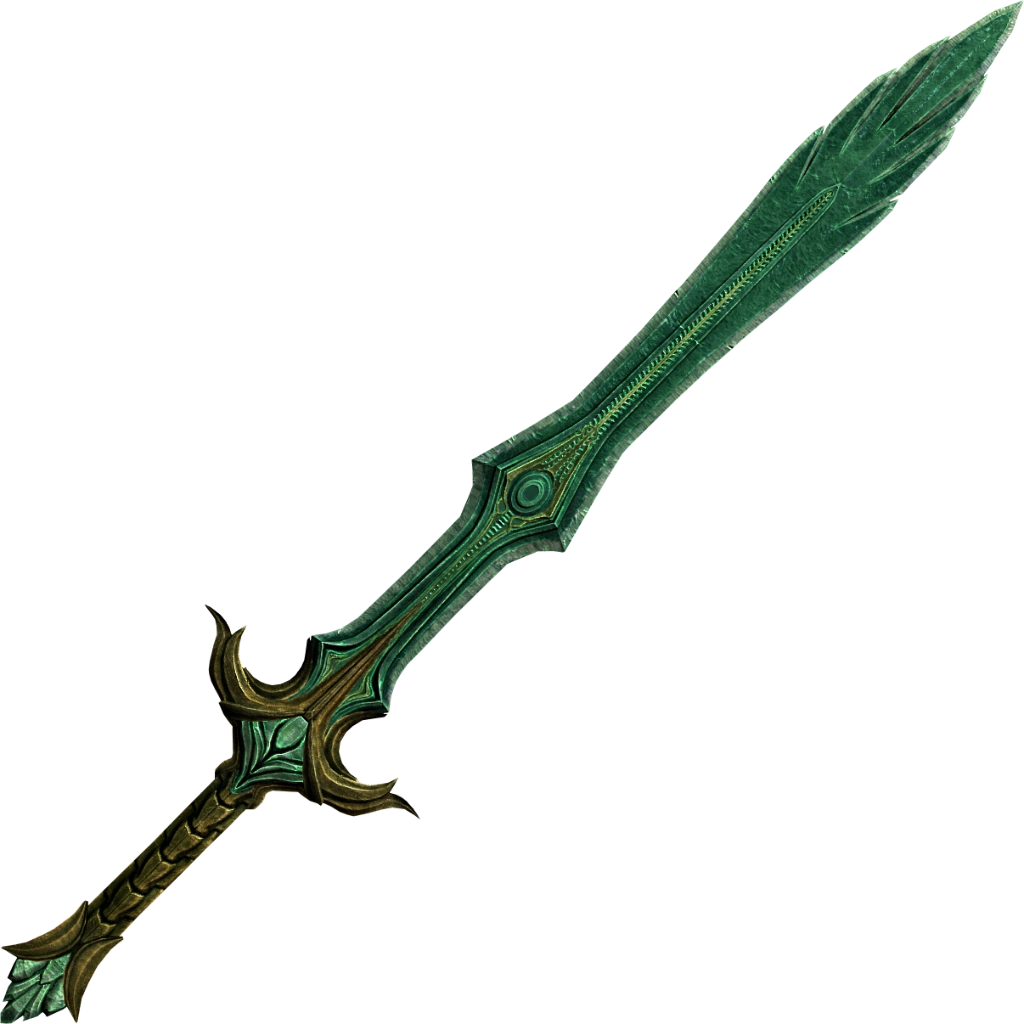
Godstone
This supernatural, and extremely mythical stone is semi-opaque, exhibiting a plethora of multichromatic colors on it's surface, and seen within the stone itself is a sheen of misty purple and silver motes of starlight reminscent of the Astral Plane. This stone can only be found in one place naturally: The Petrified corpses of Dead Gods in the Astral Sea. The stone can only be harvested off of the remains of the gods, and not from the remnant bits that fill the Astral Void - as once it has been seperated from the main body, it begins to loose it's innate power over time. Therefore, mining it from the petrified husks is the only assured way to get it - but extremely dangerous due to the possibility of provoking the wrath of the Guardian of the Vestiges: Anubis.
Godstone is so dangerously rare - as surviving long enough to harvest it from a god-corpse and escaping Anubis' wrath are both highly unlikely. Therefore it's value is too astronomical to state. It has been known to be an essential material in successfully ascending a mortal being to godhood in some occult rituals. Godstone has all effects of animite, with it's own abilities as well:
General: All Godstone items are highly magical in nature, weapons gain a +2 magical bonus to attack and damage rolls, and armor gains a +2 to it's AC.
All items made of Godstone exhibit a strange tendency to act on their own in times of extreme duress. When a creature attempts to use an item made of Godstone to accomplish an extraordinary feat; such as make an impossible shot, survive an extremely powerful blow, or pick an unnaturally difficult lock, the item may choose to have the creature roll a 20 on the skill check, attack roll, or saving throw. This effect can't occur more than once a week. (The decision to activate this property is controlled by the DM, it generally triggers in moments of narrative climax or drama.)
Weapons: Creatures reduced to 0 HP instantly fail 1 death saving throw. Additionally, creatures killed with a Godstone weapon cannot be ressurrected by anything short of a wish spell.
Armor and Shields: Grants the wearer/wielder continuous effects of the "protection from evil and good" spell. Additionally, once a day, the wearer can utilize the godstone's power to cast "Dispel Evil and good" without maintaining concentration.
Godly Souls
As Godstone functions as animite, it has the capability to hold incredibly powerful souls within it.
Godstone has no limit as to the size of a soul it can hold in terms of the number of Hit Dice the creature may have, as according to the "Soul Within the Gem" section of animite. This makes godstone the most exotic and highly valuable material ever.





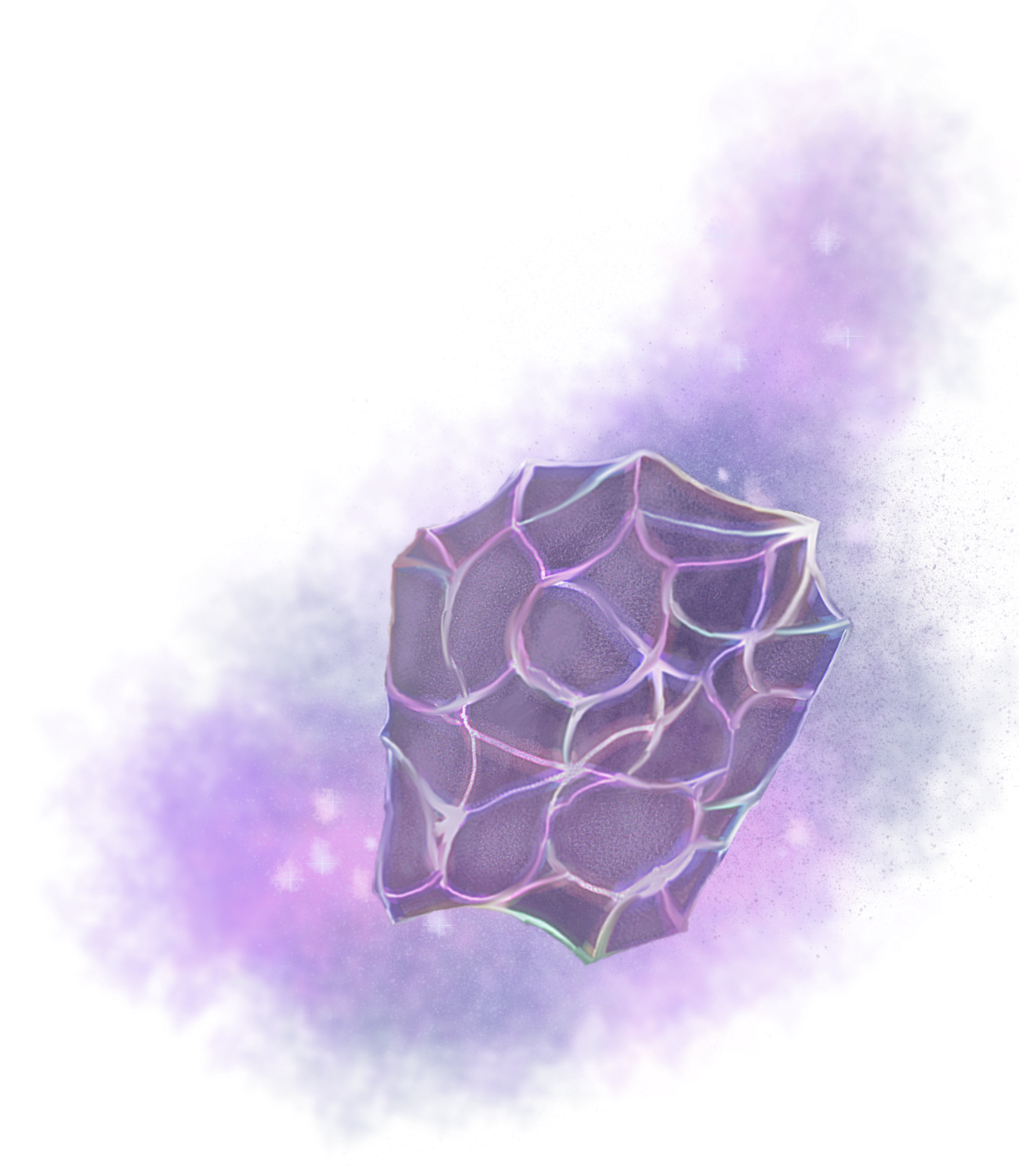
Woods
Wood
The standard form of lumber ranging anywhere between ash, ebony, oak, teak, yew, and more. Each have their own regional uses, but ultimately, are all merely the husks of the trees they were once a piece of.
Unit value: Half it's normal steel cost in gold.
Armor: Replaces the metal of any medium or heavy armor.
Armor and Shields: Replaces the metal of any medium or heavy armor, and shields.
Kirinwood
A Supernaturally tough, resilient wood, found in remote areas, and is as strong as steel. Named after a Mythical Creature said to have gifted it to humanity.
Unit Value: 250 gp
General: All Kirinwood items are ritualistically magical in nature - weapons, armor, and items are considered magical for overcoming resistance and immunity.
All Kirinwood items are immune to dissolving from all damage types except force. This does not translate to immunity or resistance for the wielder.
Weapons: Replaces the metal of weapons. Deals an additional 3 points of weapon damage on strike.
Armor and Shields: Replaces the metal of any medium or heavy armor, and shields. Ignores 3 points of damage when hit.
Aetherwood (replaces spiritual wood)
This deep, cyan-blue wood has a natural connection with the weave, seemingly infused with the essence of spirits that have perished near it's soil.
Unit value: 500 gp
General: All Aetherwood items are ritualistically magical in nature - weapons, armor, and items are considered magical for overcoming resistance and immunity.
Weapons: Replaces the metal of weapons. When targeted by a spell attack or similar magical effect, you gain a +3 "Parry" AC bonus to the attack.
Armor and Shields: Replaces the metal of any medium or heavy armor. While wearing an Aetherwood armor, you gain a +3 bonus to concentration checks to maintain a spell.
Livingwood
Living wood can be of any kind of wood, but is mostly found in the Feywild. It is a magically wet-green hardwood that does not die when cut down or shaped; may contain the spirits of dryads or fey. As strong as mithril.
Unit Value: 750 gp
General: All Livingwood items are magical in nature, weapons gain a +1 magical bonus to attack and damage rolls, and armor gains a +1 to it's AC.
All Livingwood items let the user know which way is east and west, and when it is day or night - by blooming flowers during daytime, and entering Nyctinasty (the process through which flowers close) during night. Additionally, all Livingwood items count as spellcasting foucses, and have the capabilty to cast "Goodberry" at will.
Weapons: Replaces the metal of weapons. Additionally, attacks against creatures who possess the Etherealness ability or the Incorporeal Movement ability are made with Advantage.
Armor and Shields: Replaces the metal of any medium or heavy armor, and shields. When worn, livingwood armor does not impose disadvantage on stealth checks.
Yggdraswood
The wood of the fabled world tree. This version of living wood appears as simple ash wood from a distance, but upon closer inspection, it's true nature is evident: The wood seems to shift and morph between several differing forms of tree wood, and seems to breathe on it's own.
Yggdraswood is so unbelievably rare, that just being able to locate a world tree on a world is a legendary feat in itself (there is one world tree on every world where magic exists - it remains hidden through magical means), being able to coax the tree itself into somehow shedding a living section of it is supremely mythical. Therefore it's value is too astronomical to state. Yggdraswood has all effects of livingwood, with it's own abilities as well:
General: All Yggdraswood items are highly magical in nature, weapons gain a +2 magical bonus to attack and damage rolls, and armor gains a +2 to it's AC.
All Yggdraswood items bestow upon the wearer the constant effects of the "Tongues" spell
Weapons: So long as you hold the weapon, you may cast the "Green-Flame Blade" cantrip, with no material components, equal to your level of cantrip scaling.
Armor and Shields: While donned in Yggdraswood armor, or wielding a Yggdraswood shield, it heals the wearer by 1d6 per round, even stiffling bleeding. Additionally, you become Immune to the diseased and poisoned condtions, as well as poison damage while donned in Yggdraswood.
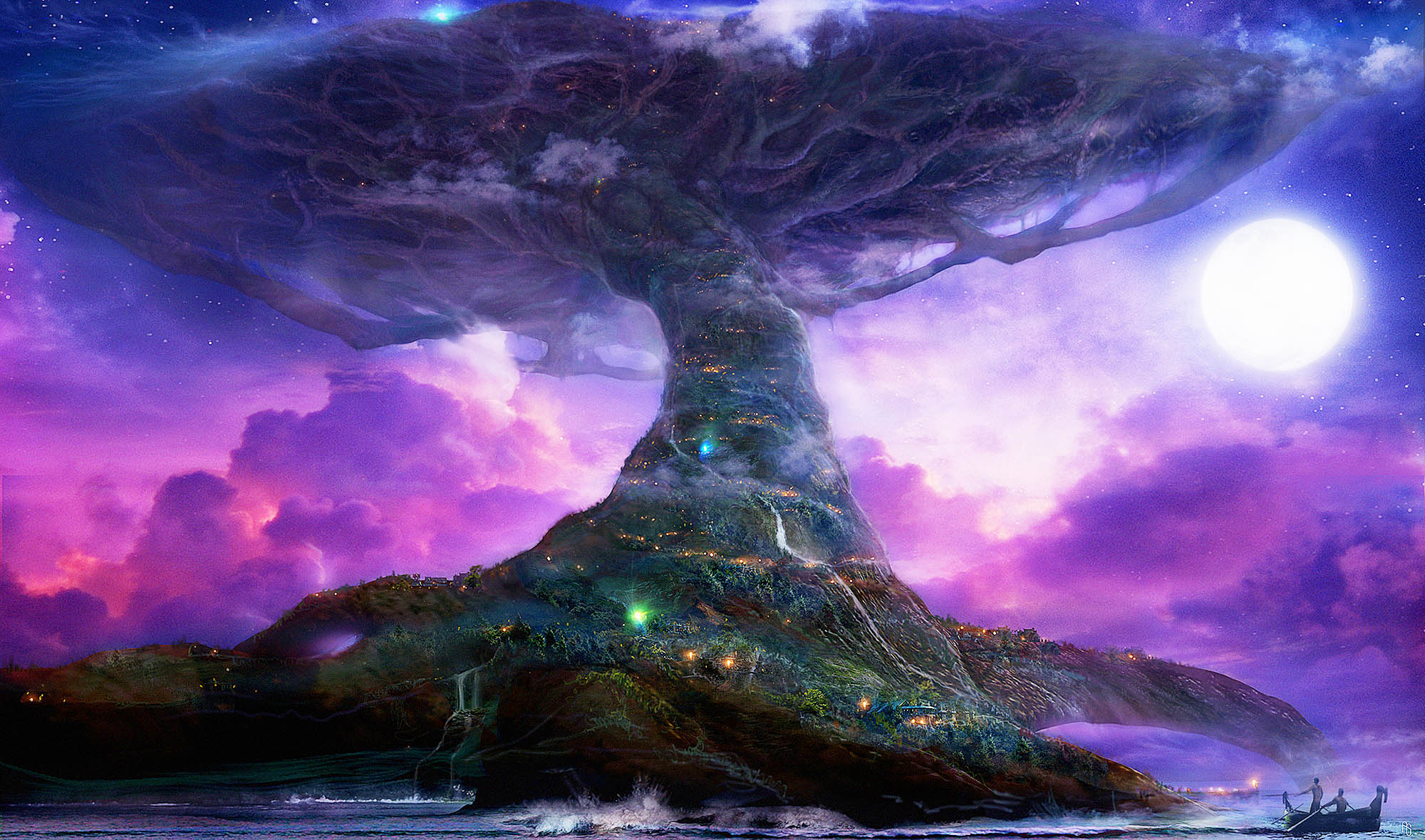


Expanded Items
As adventurers travel, they may come across strange and foreign lands, filled with their own types of creatures, customs, denizens, magics, weapons, and more. It's clear that while some items a universally known, there are bound to be some that aren't so widespread in use.
This section expands upon the original weapons and items found with the Players Handbook, DM Guide, and Xanathar's Guide to Everything.
It also pulls items from other sources of D&D, such as from the Heroes of the Orient Guide, and many other homebrew sources.
Many of these items are also in the original source books, but are listed alongside other versions of themselves.
Armor & Shields
Clothing
These new cloaks can be of use to any adventurer without having any armor proficiency.
Dueling cloak.
Although worn, the wearer can hold the cloak in his/her off-hand to use it for defense. You can spend a bonus action to hold the cloak with one of your hands to gain the AC bonus (you can't use a shield, a two-handed weapon or any object with that hand while holding the cloak). You can only wear it with light, medium, or no armor.
Reinforced cloak.
A cloak with some metalic plates or scales around the top and the shoulders that grants some protection, used commonly by nobility, traveling merchants and wizards. You can only wear it with light, medium, or no armor
Ringed cloak.
A cloak with heavy metal rings sewed in between 2 layers of heavy fabric, these cloaks are incredibly heavy - and loud, but as a result, allow superior protection for those willing to pay. You can only wear it with light, medium, or no armor.
Light Armor
Many of these armors are variants of preexisting forms.
Cord Armor (Padded Variant)
Cord armor consists of ropelike fibers woven and knotted into a thick, tough fabric. It is typically found among more barbaric cultures or in places where leather is scarce.
Bark Armor (Leather Variant)
This Armor is crafted from the bark of trees and treated to prevent it from becoming brittle over time, and is commonly used by druids. It includes arms, legs, chest, and back protection. May sometimes include a helment resembling a round straw hat.
Reinforced Leather
Leather armor that has been reinforced with metal ribbing and braces underneath the leather itself - granting the best protection light armor can grant. Typically used by high ranking guards or militia.
Medium Armor
Many of these armors are variants of preexisting forms.
Leather Coat (Hide Variant)
A thick, lightweight, long leather jacket that helps protect the wearer, if not particularly well. Covers the arms, chest, and back, and has sections that drape down over the legs - nearly touching the ground. Sometimes has a hood.
Brigandine Armor (Chain Shirt variant)
Brigandine armor consists of a coat of leather plates, each plate consisting of leather with a strip of steel inside it. It is essentially a light form of splint mail, and is quite common in coastal culture. Favored amongst pirates.
Wood Mail (Scale Mail variant)
Overlapping Wooden plates bound together by heavy cord and rope. A favorite amongst druids and barbarians of the wilds.
Ringed Tunic (Breastplate variant)
A Ringed Tunic consists of a set of lightweight metal rings sewn onto a thick coat of durable leather - the rings are focused around the chest, shoulders and neck.
Lamellar Armor (Half Plate variant)
Lamellar Armor consists of thick, lacquered rawhide pieces with metal plates sewn on - all tied together to form a cuirass and skirt.
Scaled Plate
A set of light, overlapping metal scales - each bound to an underlay of thick cloth and leather. The scales are tied down to the wearer in such a way as to move as they do, providing defense, mobility, and stealth.
Heavy Armor
Many of these armors are variants of preexisting forms.
Banded Mail
Armor with light, horizontal strips of laminated metal sewn over a backing of a chain shirt. Still less effective than chain mail. This suit includes gauntlets.
Segmented Cuirass (Splint variant)
Also called pigeon-breast plate, is a full suit of armor - with a leather coat of large metal plates that extend over the legs of the wearer, and a breastplate that covers the chest. Also includes lightly metal plated gauntlets and boots.
Great Armor (Plate variant)
Found almost exclusively in the eastern lands, this version of plate armor consists of a corselet (covering the chest, shoulders and back), large rectangular shoulder plates, an apron of large plates covering the thighs and knees, shin guards, wrist plates, and a helmet with a facial mask.
Fortress Plate
A massive closed suit of heavily plated armor that protects the wearer with it's sheer bulk. Made of extremly thick, overlapping metal plates. Grants 10 points of damage reduction to all bludgeoning, piercing, and slashing damage.
Comes with a shield which is fastened onto the breastplate. As a bonus action, you can remove and carry this shield. While using the shield, the armor's AC is 18, but you gain the +2 benefit of carrying a shield.
Shields
There are multiple variations of shields, however, amongst the many types, 3 distinct versions can be seen.
Buckler (variant - Heater shield)
A small metal shield is worn strapped to your forearm. You can wield a weapon in the same hand of the buckler, but you have a -1 penalty on attack and damage rolls with the weapon in that hand.
Shield (variant - Kite shield)
The standard version of a shield, made from wood or metal and is carried in one hand.
Tower Shield (variant - Great shield)
A massive shield nearly as tall as a human. Wearing this shield reduces your speed by 5 feet. Small creatures cannot gain the AC bonus from wearing this shield. You cannot use your shield hand for anything else. Any attack made with a tower shield gains a +1 to attack and damage rolls due to it's sheer size and weight.
Armor
| Armor | Variant | Cost | Armor Class (AC) | Strength | Stealth | Weight |
|---|---|---|---|---|---|---|
| Clothing | ||||||
| Dueling Cloak | ─ | 10 gp | +1 | — | — | 3 lb. |
| Reinforced Cloak | ─ | 25 gp | +1 | ─ | ─ | 5 lb. |
| Ringed Cloak | ─ | 75 gp | +2 | Str 13 | Disadvantage | 15 lb. |
| Light Armor | ||||||
| Padded | Cord | 5 gp | 11 + Dex Modifier | — | Disadvantage | 8 lb. |
| Leather | Bark | 15 gp | 11 + Dex Modifier | — | — | 10 lb. |
| Studded Leather | ─ | 45 gp | 12 + Dex Modifier | ─ | ─ | 13 lb. |
| Reinforced Leather | ─ | 450 gp | 13 + Dex Modifier | ─ | ─ | 15 lb. |
| Medium Armor | ||||||
| Hide | Leather Coat | 10 gp | 12 + Dex Modifier (max 2) | — | — | 12 lb. |
| Chain Shirt | Brigandine | 50 gp | 13 + Dex Modifier (max 2) | ─ | ─ | 20 lb. |
| Scale Mail | Wood Mail | 50 gp | 14 + Dex Modifier (max 2) | ─ | Disadvantage | 45 lb. |
| Breastplate | Ringed Tunic | 400 gp | 14 + Dex Modifier (max 2) | — | — | 20 lb. |
| Half Plate | Lamellar | 750 gp | 15 + Dex Modifier (max 2) | — | Disadvantage | 40 lb. |
| Scaled Plate | ─ | 900 gp | 16 + Dex Modifier (max 2) | ─ | ─ | 20 lb. |
| Heavy Armor | ||||||
| Ring Mail | ─ | 30 gp | 14 | — | Disadvantage | 40 lb. |
| Banded Mail | ─ | 50 gp | 15 | — | Disadvantage | 45 lb. |
| Chain Mail | ─ | 75 gp | 16 | Str 13 | Disadvantage | 55 lb. |
| Splint | Segmented Cuirass | 200 gp | 17 | Str 15 | Disadvantage | 60 lb. |
| Plate | Great Armor | 1,500 gp | 18 | Str 15 | Disadvantage | 65 lb. |
| Fortress Plate | ─ | 2,500 gp | 20 | Str 17 | Disadvantage | 100 lb. |
| Shield | ||||||
| Buckler | Heater Shield | 5 gp | +1 | — | — | 4 lb. |
| Shield | Kite Shield | 10 gp | +2 | ─ | ─ | 6 lb. |
| Tower Shield | Great Shield | 50 gp | +3 | Str 15 | Disadvantage | 15 lb. |
Weapons
Exotic Proficiency
Exotic weapons are essentially martial weapons that function in a very complex and nonstandard way - requiring special training to use effectively. Whenever you gain proficiency with a martial weapon, you may choose to instead gain proficiency in one exotic weapon of your choice that corresponds to the appropriate weapon type (ranged/melee).
Abilities, class features, feats or benefits that allow you to gain proficiency with a single martial weapon of your choice allows you to choose an exotic weapon.
New Weapon Properties
Some weapons listed here have special properties, which are explained below.
Concealed
This weapon is not initially obvious, and may be easily hidden or disguised as something else. A person attempting to locate the presence of this weapon must succeed on an Intelligence (Investigation) check opposed by a Dexterity (Stealth) or Charisma (Deception) on the part of the character with the weapon equipped. Attacks with this weapon against creatures aware of you - yet unaware of the weapon's presence - are made with advantage.
Disarm Immune
Any weapon that carries this property may not unwillingly be removed from your grasp while you remain conscious.
Double Weapon
A weapon with this property may be wielded as one weapon, or as two separate weapons both considered to be light. When wielded as one weapon, the weapon may still be one or two-handed, depending on its other properties. A weapon with this property lists two sets of damage dice with it, the first for the main hand of this weapon, the second for the off-hand, and damage on both sides of a double weapon is the same as were it wielded as a single weapon. Held as two weapons, one hand or the other may have additional properties, listed alongside their respective damage dice. Properties and magical enhancements on the weapon (aside from two-handed) apply to both halves of the double weapon, as well.
Grappling
If a weapon has this property, an attack made with this weapon against an enemy in range of the weapon or within the weapon's reach may be instead made as a grapple, dealing no damage. The grapple may be made and maintained with a weapon attack rather than a Strength (Athletics) check. If the weapon is ranged, the target's Strength (Athletics) or Dexterity (Acrobatics) checks to escape the grapple are made against the number set by the wielder's initial check, instead of a contested roll. Only one grapple may be made or maintained by a single character at any one time.
Returning
When a thrown weapon also carrying the returning property is thrown as part of an attack, it returns to its wielder at the end of their turn. The character must use their object interaction to catch the returning weapon, or it returns to the ground at the character's feet. When throwing a returning weapon, you can choose not to have it return in order to add (+5/+10) to it's short and long range, respectively.
Switch
When a weapon has this property, it has a mechanism crafted into it to transform it from one version to another. You can use your bonus action to change the weapon form to another.
CQC
A weapon with this property allows the wielder to make attacks normally with said weapon when grappling, being grappled, or prone.
Disarming
A weapon with the disarming property is specially designed to disarm an opponent. They often have hooks, curved blades, angled spikes, or wrapping chains.
If you are proficient with a disarming weapon, you have advantage on disarm checks while wielding it.
Disarming Mechanic
As per the optional rule for disarming found in the DM's handbook (pg. 271):
A creature can use a weapon attack to knock a weapon or another item from a target's grasp. The attacker makes an attack roll contested by the target's Strength (Athletics) check or Dexterity (Acrobatics) check. If the attacker wins the contest, the attack causes no damage or other ill effect, but the defender drops the item.The attacker has disadvantage on its attack roll if the target is holding the item with two or more hands. The target has advantage on its ability check if it is larger than the attacking creature, or disadvantage if it is smaller.
Firearm Properties
These weapon properties apply exclusively to the firearms in the section to come. It should be noted that all firearms are nonmagical in functionality, and unless they are enchanted pieces of weaponry, they are unaffected by antimagic and similar effects - with the exclusion of magical ammunition.
Burst
Weapons with the burst property have two additional attack options. The wielder may fire five pieces of ammunition in one attack in order to grant advantage on their attack roll. Alternately, they may use their action to fire fifteen pieces of ammunition and attack up to four targets, none of which can be more than five feet from another. Make separate attack rolls for each target, but only roll damage once for all targets.
Reload
A firearm may be shot a number of times equal to its Reload score before it must be reloaded by using either an action or a bonus action. You must have one free hand to reload a firearm — although you could use your free action to stow a weapon in your other hand before reloading.
Scatter
Make simultaneous attack rolls against all creatures in a 30-foot cone. Hits against targets adjacent to you deal double damage.
Weapon Mastery Properties
Each weapon now has a Mastery property, as shown in the weapon tables. That property is usable only by a character who has a feature (such as Weapon Mastery, that unlocks the property for the character.
The following are descriptions of each Mastery property. The properties are provided in alphabetical order. If a feature allows you to replace a weapon’s Mastery property with another one, that weapon must meet any prerequisite specified for the new property.
Cleave
Prerequisite: Melee Weapon, Heavy Property
If you hit a creature with a melee attack using this weapon, you can make an attack roll with the weapon against a second creature within 5 feet of the first that is also within your reach. On a hit, the second creature takes the weapon’s damage, but don’t add your ability modifier to that damage, unless that modifier is negative. You can make this extra attack only once per turn.
Flex
Prerequisite: Versatile Property
When you hit with a melee attack using this weapon, you deal its Versatile damage even if you’re wielding it with one hand.
Graze
Prerequisite: Melee Weapon, Heavy Property
If your attack roll with this weapon misses a creature, you can deal damage to that creature equal to the ability modifier you used to make the attack roll. This damage is the same type dealt by the weapon, and the damage can’t be increased in any way, other than increasing the ability modifier.
Nick
Prerequisite: Light Property
When you make the extra attack of the Light property, you can make it as part of the Attack action, instead of as a Bonus Action. You can still make this extra attack only once per turn.
Push
Prerequisite: Heavy, Two-Handed, or Versatile Property
If you hit a creature with this weapon, you can push the creature up to 10 feet away from you if it is no more than one size larger than you.
Sap
Prerequisite: No Other Properties
If you hit a creature with this weapon, that creature has Disadvantage on its next attack roll before the start of your next turn.
Slow
Prerequisite: None
If you hit a creature with this weapon and deal damage to the creature, you can reduce its Speed by 10 feet until the start of your next turn. If you hit the creature more than once with this property, the Speed reduction doesn’t exceed 10 feet.
Topple
Prerequisite: Heavy, Reach, or Versatile Property
If you hit a creature with this weapon, you can force the creature to make a Constitution saving throw with a DC equal to 8 + your Proficiency Bonus + the ability modifier you used to make the attack roll. On a failed save, the creature is knocked Prone.
Vex
Prerequisite: Ammo, Finesse, or Light Property
If you hit a creature with this weapon and deal damage to the creature, you have Advantage on your next attack roll against that creature before the end of your next turn.
Melee Weapons
| Weapon | Variant | Cost | Damage | Weight | Properties | Mastery |
|---|---|---|---|---|---|---|
| Simple Melee Weapons | ||||||
| Club | Tonfa | 1 sp | 1d4 bludgeoning | 2 lb. | Light | Slow |
| Dagger | Tanto | 5 gp | 1d4 piercing | 1 lb. | CQC, finesse, light, thrown (20/60) | Nick |
| Greatclub | Tetsubo | 5 gp | 1d8 bludgeoning | 10 lb. | Two-handed | Push |
| *Gauntlet | Knuckles | 6 gp | 1d4 bludgeoning | 2 lb. | CQC, disarm immune, light | |
| Handaxe | Ono | 2 gp | 1d6 slashing | 2 lb. | Light, thrown (20/60) | Vex |
| Javelin | Uchi-ne | 5 sp | 1d6 piercing | 2 lb. | Thrown (30/120) | Slow |
| Light Hammer | ─ | 2 gp | 1d4 bludgeoning | 2lb. | Light, thrown (20/60) | Nick |
| Mace | Kanabo | 5 sp | 1d6 bludgeoning | 4 lb. | — | Sap |
| Quarterstaff | Bo | 2 sp | 1d6 bludgeoning | 4 lb. | Versatile (1d8) | Flex |
| *Scythe | ─ | 5 gp | 1d8 slashing | 5 lb. | Reach, two-handed | |
| Sickle | Kama | 20 sp | 1d4 slashing | 2 lb. | Light | Nick |
| Spear | Yari | 1 gp | 1d6 piercing | 3 lb. | Thrown (20/60), versatile (1d8) | Flex |
| *Torch | ─ | 1 sp | 1 fire | 1 lb. | Light, thrown (5/15) | |
| Martial Melee Weapons | ||||||
| Battleaxe | Masakari | 10 gp | 1d8 slashing | 4 lb. | Versatile (1d10) | Topple |
| *Claw | Punch Dagger | 8 gp | 1d6 slashing | 2 lb. | CQC, disarm immune, finesse, light | |
| Flail | Nunchaku | 10 gp | 1d8 bludgeoning | 2 lb. | ─ | Sap |
| Glaive | Naginata | 20 gp | 1d10 slashing | 6 lb. | Heavy, reach, two-handed | Graze |
| Greataxe | ─ | 30 gp | 1d12 slashing | 7 lb. | Heavy, two-handed | Cleave |
| *Greatspear | ─ | 40 gp | 2d6 piercing | 6 lb. | Heavy, reach, thrown (20/60), two-handed | |
| Greatsword | Nodachi | 50 gp | 2d6 slashing | 6 lb. | Heavy, two-handed | Graze |
| Halberd | Kamayari | 20 gp | 1d10 slashing | 6 lb. | Heavy, reach, two-handed | Cleave |
| Lance | Umayari | 10 gp | 1d12 piercing | 6 lb. | Reach, special | Topple |
| Longsword | Katana | 15 gp | 1d8 slashing | 3 lb. | Versatile (1d10) | Flex |
| Maul | ─ | 10 gp | 2d6 bludgeoning | 10 lb. | Heavy, two-handed | Topple |
| Morningstar | ─ | 15 gp | 1d8 piercing | 4 lb. | ─ | Sap |
| Pike | Nagaeyari | 5 gp | 1d10 piercing | 18 lb. | Heavy, reach, two-handed | Push |
| Rapier | Saber (slashing) | 25 gp | 1d8 piercing | 2 lb. | Finesse | Vex |
| Scimitar | Wakizashi | 25 gp | 1d6 slashing | 3 lb. | Finesse, light | Nick |
| Shortsword | Ninja-to | 10 gp | 1d6 piercing | 2 lb. | Finesse, light | Vex |
| Trident | Magariyari | 5 gp | 1d6 piercing | 4 lb. | Thrown (20/60), versatile (1d8) | Topple |
| Warpick | Kawa | 5 gp | 1d8 piercing | 2 lb. | ─ | Flex |
| Warhammer | ─ | 15 gp | 1d8 bludgeoning | 2 lb. | Versatile (1d10) | Flex |
| Whip | ─ | 2 gp | 1d4 slashing | 3 lb. | Disarming, finesse, reach | Slow |
Ranged Weapons
| Weapon | Variant | Cost | Damage | Weight | Properties | Mastery |
|---|---|---|---|---|---|---|
| Simple Ranged Weapons | ||||||
| Crossbow, Light | ─ | 25 gp | 1d8 piercing | 5 lb. | Ammo. (80/320), loading, two-handed | Slow |
| Dart | Shuriken | 5 cp | 1d4 piercing | 1/4 lb. | Finesse, thrown (20/60) | Vex |
| *Dart, Sleeping | ─ | 1 sp | 1d4 piercing | 1/2 lb. | Finesse, thrown (20/60) | |
| Shortbow | Hankyu | 25 gp | 1d6 piercing | 2 lb. | Ammo. (80/320), two-handed | Vex |
| Sling | ─ | 1 sp | 1d4 bludgeoning | 1/4 lb. | Ammo. (30/120) | Slow |
| Martial Ranged Weapons | ||||||
| Blowgun | ─ | 10 gp | 1 piercing | 1 lb. | Ammo. (25/100), loading | Vex |
| Crossbow, Hand | ─ | 75 gp | 1d6 piercing | 3 lb. | Ammo. (30/120), light, loading | Vex |
| Crossbow, Heavy | ─ | 50 gp | 1d10 piercing | 18 lb. | Ammo. (100/400), heavy, loading, two-handed | Push |
| *Greatbow | Yumi | 70 gp | 1d12 piercing | 10 lb. | Ammo. (200/800), heavy, special, two-handed | |
| Longbow | Daikyu | 50 gp | 1d8 piercing | 2 lb. | Ammo. (150/600), heavy, two-handed | Slow |
| Net | ─ | 1 gp | — | 3 lb | Special, thrown (5/15) |
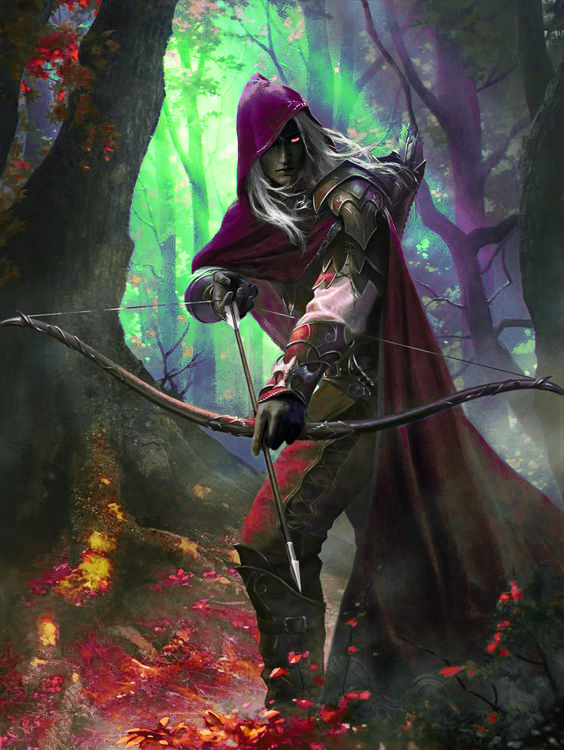

Firearms
| Weapon | Cost | Damage | Weight | Properties | Mastery |
|---|---|---|---|---|---|
| Firearm Melee Weapons | |||||
| Bayonet | 5 gp | 1d6 piercing | 1 lb. | Versatile (1d8), special | |
| Sawtooth Blade | 15 gp | 1d8 slashing | 3 lb. | Versatile (1d10), special | |
| Firearm Ranged Weapons | |||||
| Flintlock Pistol | 150 gp | 1d8 piercing | 2 lb. | Range (15/60), reload 1, light, loading | |
| Pistol | 250 gp | 1d10 piercing | 3 lb. | Range (30/90), reload 2, light, loading | Vex |
| Revolver | 1,000 gp | 2d8 piercing | 3 lb. | Range (40/120), reload 6, light | |
| Howdah Pistol | 1,500 gp | 2d10 piercing | 4 lb. | Range (60/200), reload 1 | |
| Musket | 750 gp | 1d12 piercing | 10 lb. | Range (40/120), reload 1, two-handed, loading | Slow |
| Blunderbuss | 900 gp | 2d6 piercing | 6 lb. | Range (15/30), reload 1, scatter, two-handed, special | |
| Shotgun | 1,250 gp | 2d8 piercing | 7 lb. | Range (15/30), reload 2, scatter, two-handed | |
| Lever-Action Rifle | 4,000 gp | 2d8 piercing | 8 lb. | Range (80/240), Reload 15, two-handed | |
| Hunting Rifle | 2,000 gp | 2d10 piercing | 9 lb. | Range (100/400), reload 1, two-handed | |
| Sniper Rifle | 5,000 gp | 2d12 piercing | 15 lb. | Range (150/600), reload 1, two-handed | |
| Battle Cannon | 900 gp | 4d10 bludgeoning | 80 lb. | Heavy, range (300/1200), loading, two-handed, special | |
| Gatling Gun | 8,000 gp | 2d8 piercing | 30 lb. | Heavy, range (30/90), Reload 40, burst, two-handed | |
| Steambolt Pistol | 3,000 gp | 3d8 piercing | 5 lb. | Range (60/200), reload 2, special | |
| Steambolt Carbine | 4,500 gp | 3d10 piercing | 10 lb. | Range (100/400), reload 2, two-handed, special | |
| Steambolt Blunderbuss | 6,000 gp | 4d6 piercing | 12 lb. | Range (30/60), reload 1, scatter, two-handed, special | |
| Steambolt Longrifle | 7,500 gp | 3d12 piercing | 25 lb. | Heavy, range (300/1200), reload 1, two-handed, Special |


Exotic Weapons
| Weapon | Cost | Damage | Weight | Properties | Mastery |
|---|---|---|---|---|---|
| Exotic Melee Weapons | |||||
| Bladed Fan | 20 gp | 1d6 slashing | 1 lb. | Concealed, finesse, light | |
| Chain, Spiked | 30 gp | 2d4 piercing | 10 lb. | Double Weapon (1d4/1d4), grappling, heavy, reach, two-handed | |
| Chakram | 15 gp | 1d4 slashing | 2 lb. | Finesse, light, returning, thrown (15/30) | |
| Dagger, Boot-Toe | 15 gp | 1d4 piercing | 1 lb. | CQC, concealed, finesse, special | |
| Dagger, Wrist | 75 gp | 1d4 piercing | 1 lb. | Ammo. (30/120), CQC, concealed, finesse, light, loading, switch | |
| Garrote | 1 gp | 1d4 slashing | 3 lb. | Finesse, Light, Special, Two-handed | |
| Jian Shortsword | 30 gp | 2d4 slashing | 3 lb. | Finesse, special | |
| Khopesh Blade | 20 gp | 2d4 slashing | 3 lb. | Disarming, light | |
| Kusari-Gama | 10 gp | 1d6 slashing | 3 lb. | Double weapon (1d6/1d4 reach), finesse, grappling | |
| Shield, Throwing | 55 gp | 1d8 bludgeoning | 8 lb. | Double weapon (1d8/1d8), finesse, returning, thrown (20/60) | |
| Sword, Cane | 20 gp | 1d8 slashing | 3 lb. | Concealed, finesse, light, switch | |
| Sword, Two-Bladed | 30 gp | 2d6 slashing | 8 lb. | Double weapon (1d6/1d6), heavy, two-handed | |
| Exotic Ranged Weapons | |||||
| Atlatl | 5 gp | 2d4 piercing | 2 lb. | Ammo. (120/480), loading, special, thrown | |
| Bola | 1 gp | 1d4 bludgeoning | 2 lb. | Grappling, light, thrown (20/60) | |
| Boomerang | 3 gp | 1d6 bludgeoning | 2 lb. | Finesse, light, returning, thrown (30/120) | |
| Crossbow, Bladed | 75 gp | 1d8 piercing | 19 lb. | Ammo. (80/320), heavy, loading, switch, two-handed | |
| Crossbow, Repeating | 100 gp | 1d6 piercing | 19 lb. | Ammo (30/120), heavy, reload 6, two-handed | |
| Gunblade | 1,100 gp | 1d10 slashing | 7 lb. | Double weapon (1d10/2d8), range (40/120), reload 6, two-handed, special |
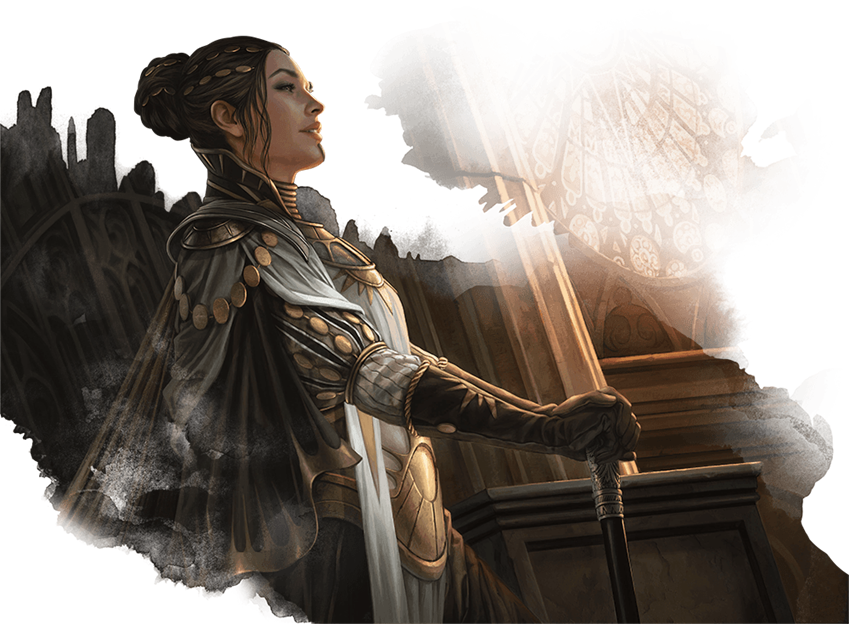
New Weapons
simple melee weapons
Descriptions for new simple melee weapons with the special property.
Gauntlet (vairant - knuckles). A metal glove that allows you to punch and damage your enemies. When you make an unarmed strike, you deal the gauntlet damage instead. You can't use the gauntlet to attack if you're holding something in that hand.
Scythe. A piece of equipment normally used by farmers, now refitted for battle purposes. When you make an attack with the Scythe, you can choose to attack up to three creatures that are in line and at 5 feet of you. If you do so, you need to roll for each creature, and all the rolls are made with disadvantage.
Torch. A common torch, a short haft of wood with a flammable long burning wrapping at on end. A torch burns for 1 hour, providing bright light in a 20-foot radius and dim light for an additional 20 feet.
simple ranged weapons
Descriptions for new simple ranged weapons with the special property.
Dart, Sleeping. A dart with a small glass vial filled with sleeping liquid that is released when it enters into a creature's body. When you hit a creature with this dart, roll 4d4. This is the total hit points you affect. After dealing the dart damage, if the creature have equal or less hit points than the total, the creature falls unconscious for 1 hour or until the sleeper takes damage, or someone uses an action to shake or slap the sleeper awake. You must keep the dart in the creature's body, otherwise it awakes after 1 minute. When you hit a creature, the glass vial is shattered to release the liquid.
Grappling Hook. A 4 pron hook attached to a rope that is typically used for climbing and scaling tall objects or obstacles. Can be used as a low-damage weapon to impose the "grappling" property on a creature.
When tied to the end of a rope, a grappling hook can secure the rope to a battlement, window ledge, tree limb, or other protrusion - allows a climbing speed equal to half your walking speed while utilizing it.
martial melee weapons
Descriptions for new martial melee weapons with the special property.
Claw (variant - punching daggers). This wrist bracer has attached to it a set of sparp, bladed metal claws. When you make an unarmed strike, you deal the claw damage instead. You can't use another item in a hand that is wielding a claw.
Greatspear. This heavy spear is made out of a thick solid shaft of wood, with a heavy spearhead and a counterweight pommel at the base. You can throw this greatspear - but only by using both hands to spin it about your body and hurl it.
martial ranged weapons
Descriptions for new martial melee weapons with the special property.
Greatbow (vairant - yumi). An exceptionally tall longbow, often surpassing the height of the archer. Typically has an asymmetric design in which the hand is placed one-third the height from the lower tip. This allows the bow to be fired from a kneeling position or from horseback.
When using this weapon to attack a target within 50 feet, you have disadvantage on the attack roll.
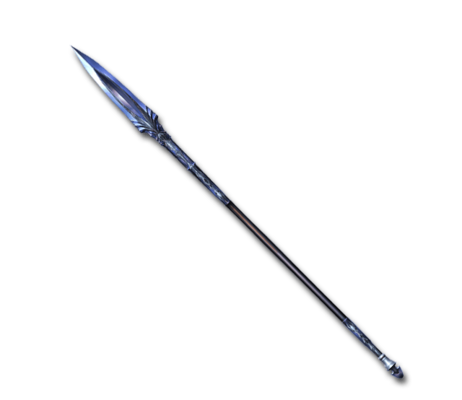
Firearm Weapons
firearm melee weapons
Descriptions for the new firearm melee weapons and their special properties.
Bayonet. A bayonet is a blade or spike designed to fit on the muzzle of a firearm. Its purpose is to serve as a last resort melee weapon. Usage of a bayonet is important in determining its damage — if attached to a one-handed weapon, it may only use the one-handed damage. If attached to a two-handed firearm, it is used as a versatile weapon.
If used on its own, unattached to a firearm, a bayonet uses the stastics of a dagger.
Sawtooth Blade. A sawtooth blade is a particularly sinister form of a bayonet, albeit, longer, and more devastating. These saber-shaped blades function just as a bayonet would, except they can only be affixed to a two-handed firearm.
If used on it's own, unattached to a firearm, a sawtooth blade uses the statistics of a scimitar.
Gunpowder, in my world?
The existence of gunpowder - or it's equivalent (such as blast powder, dwarven dust, etc.) - is at your DM's discretion, and even if the existence of gunpowder is in play, it is up to them to decide the level of technological development alongside it.
A few examples of possible settings where it would be ideal include:
- A Steampunk, Industrial, Victorian, or similar setting where steam and gunpowder are driving forces.
- A "Dishonored" feel, of video game fame, with whale oil and supernatural overtones of a Dystopian setting.
- A Historical - Wild West/Pirate approach, where technology advances slowly, and spreads out even slower.
- Any combination of the aforementioned.


firearm ranged weapons
Descriptions for the new firearm ranged weapons and their special properties.
All firearms utilize ammunition.
Flintlock Pistol. The first kind of pistol that didn’t require using an manual fire source, these are muzzle-loading, single shot pistols. They are simple to build and perhaps the most common firearm around.
Pistol. A slight upgrade from the flintlock, this pistol has two barrels stacked on top of each other and is more reliable. They are a common sight with guards and soldiers in some areas.
Revolver. Considered by many the pinnacle of gunpowder handguns, revolvers use rotating chambers with a single barrel. They are reliable, easier to clean and reload, and can fire six times before reloading. Their mechanical complexity, however, can sometimes make them difficult to find or afford.
Howdah Pistol. Designed specifically for killing large game, howdah pistols are large-caliber handguns that pack a massive punch. They are breach-loaded but single-shot, trading capacity for power.
Musket. A flintlock rifle that uses steel on flint to set off the powder charge within. It is still slow to load, but has good range, packs a big punch, and weighs fairly light.
Blunderbuss. A single barreled conical rifle, this firearm is front loaded with any form of ammunition one can get their hands on - but still requires gunpowder to function.
Shotgun. Shotguns have two barrels, are breach-loaded, and are set off by a hammer instead of a flintlock. They are reliable and hit with excruciating force, and this extra bit of craftsmanship generally makes them more expensive as well.
Lever-Action Rifle. The rare product of master gunsmiths, lever-action rifles keep extra rounds in a tubular magazine under the barrel, and each new cartridge is loaded by using the lever that’s part of the trigger guard. They are intricate and difficult to build, making them prized and deadly possessions of those lucky enough to own one.
Hunting Rifle. More sophisticated than a musket, a hunting rifle is a breech-loader and fires cartridges. Its long range makes it popular with hunters and marksmen, although they are not as common or cheap as muskets.
Sniper Rifle. Sniper rifles are essentially hunting rifles that have been machined to a higher degree of precision and quality. This results in better range, damage, but also more weight and skill to craft, and they can often be very difficult to find.
Battle Cannon. Requires a Strength score of 15 to effectively wield. This firearm is a miniature version of the standard ship mounted cannon, carried with both hands into battle, these weapons instill massive fear in heavily fortified areas due to their potential firepower. While not exceedingly difficult to craft, carrying one requires both disciplined strength and a belted body harness to balance the excess bulk.
Gatling Gun. A large, lever-cranked, multi-barreled weapon that can be fired rapidly, gatling guns are usually mounted on wagons or carried via complicated leather harnesses. They are exceedingly intricate, deadly, and expensive to build, making them rare finds in most locations.
Steam-Powered Weapons?
Yes, even in settings where gunpowder can be found, with the presence of magic and artificers comes a certain freedom of technological expression.
The following firearms seek to add more of a steampunk & magical flair to the existing firearms - these firearms are not necessarily magical, but could have been created by a mage or artificer that delved a little too far into the power that steam and pressure could grant.
Steambolt Firearms
Steambolt firearms are presumed to be either the inventions of an absolute madman of a mage, or a truly ingenious artificer that made a groundbreaking discovery - or both.
Combining pressurized steam systems in an air-tight, metal - typically bronze and cast iron - chamber, these firearms have the capability to propel projectiles at insane speeds - without the use of gunpowder - as such, all steambolt weaponry is seen with much fascination, as well as fear of their deadly capabilities - and not at all cheap, being as expensive as some fairly rare magical items.
Almost all Steambolt weapons are semi-bolt action. Meaning they each have a lever operated opening to secure the slug in an air-tight chamber - the only exception being the blunderbuss, which functions as a front-loading cannon.
Steambolt Pistol. A small, yet fairly heavy, pistol that can fire rifled slugs at a great distance. Common amongst artificers and thugs.
Steambolt Carbine. A Short stock, medium barreled rifle, this carbine rifle is the perfect in between from the pistol to the rifle. Favored by some guardsmen and hunters.
Steambolt Blunderbuss. Often called the "Steam Cannon", this steambolt firearm is different than it's brothers, in that it is entirely front-loaded, and will utilize any form of ammunition - even things that are not typical ammunition - so long as it fits in the barrel. Very appreciated by those who don't care for conventional ammo - such as pirates.
Steambolt Longrifle. An incredibly long, nearly 5 foot barreled rifle, this behemoth of a firearm is used for long distance shots or against incredibly large creatures. A formidable sight, as it's presence indicates a skilled marksman. Known to be used by assassin's and skilled fighters.


Exotic Weapons
exotic melee weapons
Descriptions for the new exotic melee weapons and their special properties.
Bladed Fan. This weapon appears to the untrained eye as nothing more than a hand fan. In fact, the vanes of the fan are crafted from steel, and the tips are needle-sharp; very suitable for stabbing, and often used by geisha who operate as spies.
Spiked Chain. A spiked chain is a length of metal chain whose last few links on each end are enlarged and enhanced with spikes. The length and size of links should be proportional to the size of the wielder for best performance. At the half-way point of the chain and/or the midpoints of the two halves, a link of the chain is often replaced with a ring for grasping.
Chakram. The chakram is a throwing disk or quoit about 1 foot in diameter, with a sharpened outer rim. It is exceedingly rare to find, and even harder to find a wielder trained in it.
Dagger, Boot-toe. You wield this weapon without the use of a hand, instead using the foot the dagger is affixed to. You may only make one attack on your turn when attacking with this weapon.
Dagger, Wrist. A fine weapon made for Assassins and Marauders to execute their operations with the utmost stealth, this weapon is attached to the arm of the person which keeps it hidden from plain sight. It uses a spring loaded dagger and dartgun as it's main armaments.
This Weapon has 2 forms:
- Dagger form (melee). - While utilizing this weapon in this form, you deal 1d4 piercing damage on a hit.
- Dart form (ranged). - While utilizing this weapon in this form, you deal 1d4 piercing damage on a hit.
Garrote. A Garrote is nothing more than a thin wire, usually with a handle on either side. While not effective in open combat, a successful attack with a garrote grapples a target, the target continues to take the weapon’s damage each round while grappled. A target grappled by a garrote must make a constitution save against your attack roll each round, subtracting the total damage dealt by the garrote from their save. After three successive failures, the target falls unconscious.
Jian shortsword. A very light & flexible double-edged straight sword, typically with a tassel attached to the pommel.
Wielding this shortsword while proficient in it allows you to add a +1 bonus to your AC as a reaction to incoming melee attacks - this stacks with other forms of parry or block.
Khopesh blade. The khopesh is a slashing sword with an axe-like curve and a hooked tip. Known for disarming capabilities.
Kusari-Gama. A kusari-gama is a length of chain with a particularly sharp sickle-like pick at one end, designed especially for battle, rather than as a farming tool.
The blade deals slashing damage, while the chain deals bludgeoning damage and has the reach property.
Shield, Throwing. This round, metal edged shield is strapped to your forearm with a length of elastic leather wrapped up your arm and gripped with your hand. With an attack action, a proficient wielder can fling the shield at an enemy, and reel it back in.
The user retains the +2 AC bonus from the standard shield, but if thrown, they lose the AC bonus until the shield returns.
This Weapon has 2 forms:
- Shield Bash (melee). - While utilizing this weapon in this form, you deal 1d8 bludgeoning damage on a hit.
- Shield Throw (ranged). - While utilizing this weapon in this form, you deal 1d8 bludgeoning damage on a hit.
Sword, Cane. A sturdy reinforced wooden cane that typically has an intricate design. It conceals a blade similar to that of a bladed rapier. A favorite of nobility and spies alike. When unsheathing this weapon, the sword and cane may both be wielded in separate hands. The cane itself functions as an intricate club.
This Weapon has 2 forms:
- Cane. - While utilizing the weapon in this form, you deal 1d4 bludgeoning damage on a hit.
- Sword. - While utilizing the weapon in this form, you deal 1d8 slashing damage on a hit.
Sword, Two-Bladed. The double sword is a polearm with a wooden haft with a broad blade at each tip. The weapon might also be known as a double scimitar or twin blade.
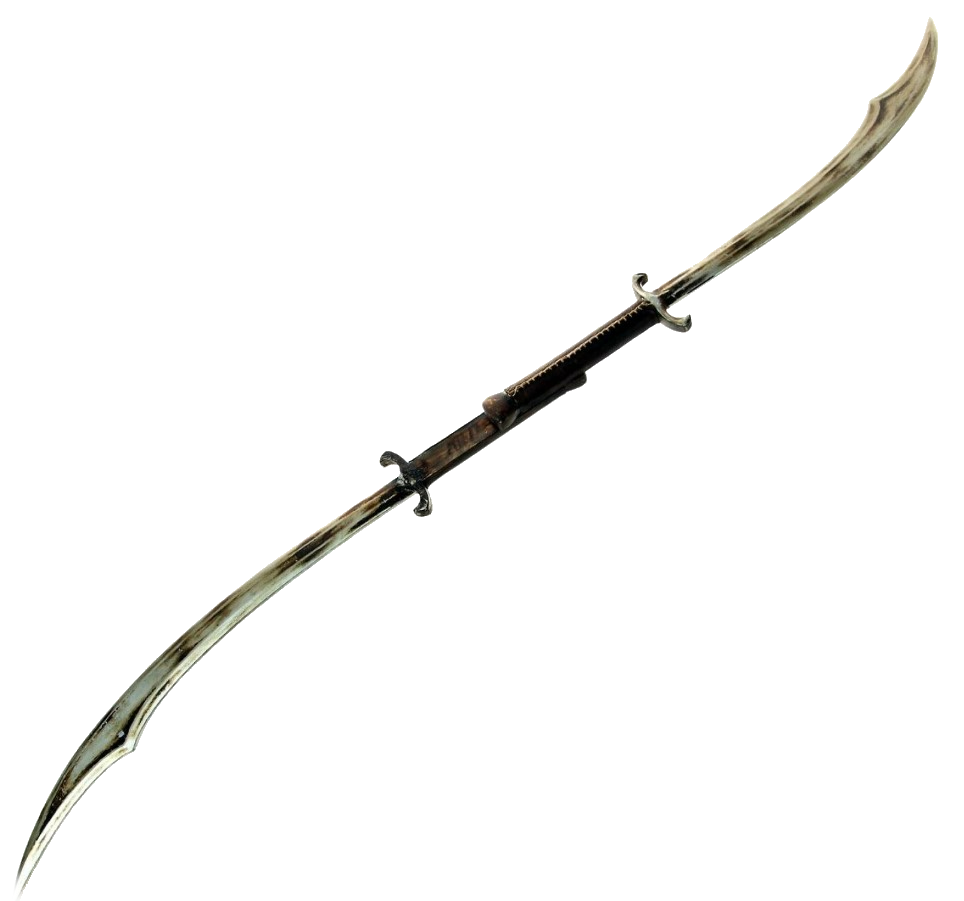
exotic ranged weapons
Descriptions for the new exotic ranged weapons and their special properties.
Atlatl. The atlatl is a leverage based weapon. It may consist of a shaft with a cup or a spur at the end that supports and propels the butt of the ammunition. It is held in one hand, gripped near the end farthest from the cup. The projectile is thrown by the action of the upper arm and wrist. The throwing arm together with the atlatl acts as a lever.
When you make a ranged weapon attack with an atlatl, you use your Strength, rather than Dexterity, for attack and damage rolls. The Atlatl utilizes javelins as it's main form of ammunition.
Bola. A bola consists of a length of cord with weights on each end or three to six weights tied to a center point. When thrown, it can grapple a target. May also be used as a basic flail.
Boomerang. A boomerang is a thrown weapon, typically constructed as a flat aerofoil, that is designed to spin about an axis perpendicular to the direction of its flight. Many boomerangs are made to return to the person who threw them.
Crossbow, Bladed. This crossbow appears as a typical crossbow with an under-rail concealing an extendable blade. You fold the crossbow arms inwards to extend the blade, creating a makeshift shortsword.
This Weapon has 2 forms:
- Crossbow Form (ranged). - While utilizing this weapon in this form, you deal 1d8 piercing damage on a hit.
- Shortsword Form (melee). - While utilizing this weapon in this form, you deal 1d6 piercing damage on a hit.
Crossbow, Repeating. This lever-activated crossbow utilizes an integral cartridge to rapidly shower a foe with missiles. It may hold up to six bolts at once and doesn't require any sort of action to reload.
It automatically reloads after firing until the cartridge runs out of ammunition. Reloading the cartridge takes an action.
Due to it's construction, it has a shorter range, but a greater rate of fire.
Gunblade. A Gunblade is, in essence, a revolver with a blade extending from the barrel of the gun - flawlessly fused together. These weapons are incredibly rare - and are considered exotic even amongst firearms, but yields the option of multitasking in combat.
This weapon has 2 forms:
- Blade (melee). - While utilizing this weapon in this form, you deal 1d10 slashing damage on a hit.
- Revolver (ranged 40/120). - While utilizing this weapon in this form, you deal 2d8 piercing damage on a hit.
Unlike most double weapons, you may also choose to fire as you attack to add additional power to the swing:
- Gunblade Discharge. (Requires two attack actions) - While making a melee attack, you may choose to expend 1 bullet and cause your melee attack to deal 1d10 slashing damage, and make a ranged attack at a target adjacent to you within short range of the gunblade.
You cannot attach an additional bayonet or sawtooth blade onto this firearm.


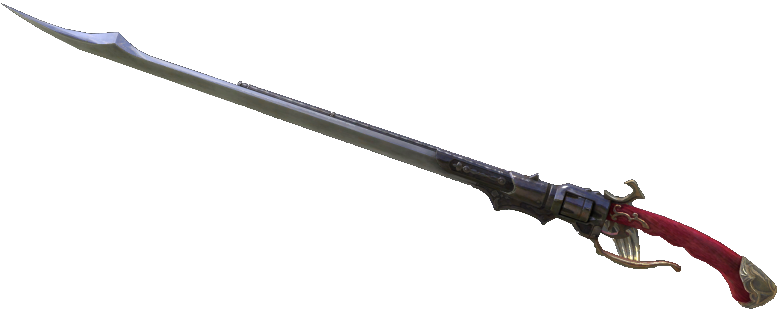
Ammo & Explosives
| Item | Cost | Weight |
|---|---|---|
| Standard Ammo | ||
| Arrows (20) | 2 gp | 2 lb. |
| Atlatl Javelins (10) | 2 gp | 5 lb. |
| Blowgun Needles (50) | 1 gp | 1 lb. |
| Crossbow Bolts (20) | 1 gp | 1 1/2 lb. |
| Darts (10) | 1 sp | 2 1/2 lb. |
| Sling Bullets | 4 cp | 1 1/2 lb. |
| Firearm Ammo | ||
| Buckshot (10) | 4 gp | 1 lb. |
| Cannonball (1) | 5 gp | 6 lb. |
| Cartridges (10) | 4 gp | 1 lb. |
| Musketballs (10) | 2 gp | 1 lb. |
| Rifled Slugs (10) | 8 gp | 2 lb. |
| Alchemical Ammo | ||
| Silvered | 5 gp | ─ |
| Corrosive | 5 gp | ─ |
| Freezing | 5 gp | ─ |
| Burning | 5 gp | ─ |
| Shocking | 5 gp | ─ |
| Concussive | 5 gp | ─ |
| Toxic | 5 gp | ─ |
| Profane | 10 gp | ─ |
| Holy | 10 gp | ─ |
| Maddening | 15 gp | ─ |
| Forceful | 15 gp | ─ |
| Bombs | ||
| Smoke | 125 gp | 1 lb. |
| Fire | 150 gp | 1 lb. |
| Fragmentation | 200 gp | 2 lb. |
| Impact Grenades | ||
| Dust | 20 gp | 1/4 lb. |
| Flashpowder | 120 gp | 1/2 lb. |
| Noise | 30 gp | 1/4 lb. |
| Poison Smoke | 300 gp | 1 lb. |
| Vanishing Smoke | 20 gp | 1 lb. |
Ammunition & Explosives
Ammunition
All ammunition can be fitted with alchemical ingredients or magical effects to instill deadly results.
Standard Ammo
The typical ammo used for ranged weapons.
Arrows. A Fletched wooden shaft with a stone or metal tip. Typical ammo used for shortbows, longbows, and greatbows.
Atlatl Javelins. Elongated wooden javelins with stone or metal tips, used exclusively for atlatls.
Blowgun Needles. Small metal needles. Used for blowguns.
Crossbow Bolts. Similar to arrows, but much shorter. Typical ammo used for crossbows of all types.
Darts. A weapon that can be thrown. Also used as ammunition for the wrist dagger's dart gun.
Sling Bullets. Small, smooth metal or stone spheres used in a sling.
Firearm Ammo
The ammunition available for use by firearms only.
Buckshot. A package of small lead pellets that scatter when fired, doing damage to creatures in a large area. Used typically by shotguns and the like.
Cannonball. A giant ball of lead or iron, used in large firearm weapons such as cannons or the battle cannon.
Cartridges. A bullet and dose of powder are combined within a package of stiff, chemically treated paper to form a cartridge. The paper and powder burn away when fired, sending the bullet forward on its own. Used by revolvers, rifles, and particular firearms.
Musketballs. A simple ball of lead, paired with a dose of black powder when loaded into a firearm. Although the ball and powder are technically two separate items, they’re mechanically treated as one for the sake of simplicity. For use in simple firearms; flintlocks and muskets
Rifled Slugs. A smooth, solid metal slug with a slight spiral pattern etched into it's surface. Used almost exclusively for steambolt weaponry
Alchemical Ammo
Each of these subtypes of ammo can be applied to the ammunition available for each weapon. They are considered non-magical, and are alchemical in construction - typically via a glass vial, a hollow shaft, or similar method.
Silvered. Alchemically silvered ammo. Overcomes resistances of creatures hurt by silver.
Corrosive. Deals an extra 1d4 Acid damage.
Freezing. Deal an extra 1d4 Cold damage.
Burning. Deal an extra 1d4 Fire damage.
Shocking. Deal an extra 1d4 Lightning damage.
Concussive. Deal an extra 1d4 Thunder damage.
Toxic. Deal an extra 1d4 Poison damage.
Profane. Deal an extra 1d4 Necrotic damage.
Holy. Deal an extra 1d4 Radiant damage.
Maddening. Deal an extra 1d4 Psychic damage.
Forceful. Deal an extra 1d4 Force damage.
These damage amounts are the max any alchemical application can deal - without being magical.
Bombs
These spherical canisters are typically made from thin iron or similar metals and contain ingredients meant to create certain alchemical reactions. They can only be used once, and each bomb weighs 1 pound.
Smoke. A canister of oily herbs - when lit, the bomb violently exerts a cloud of heavily obscuring smoke that expands outwards to fill a 30-foot radius. This smoke lasts for 2 minutes, or until dispersed by heavy wind. The smoke can be colored as desired when created.
Fire. These bombs are filled with a mixture of oils, dusts, and dragontongue petals - which are lit aflame by a fuse with a bottle of alchemists fire with gunpowder in the center of the bomb. Once lit, the bomb explodes in a 10-foot radius, with a brilliant display of fire - Creatures in the area who fail a Dexterity save (DC 13) Are dealt 4d6 fire damage. - or half on save.
Fragmentation. Filled with all manner of metal fragments, caltrops, and arrowheads - the fuse leads to a thick gunpowder sack in the center of the bomb. Once lit, the bomb explodes outwards in a 20-foot radius, with a heavy array of shrapnel in all directions - Creatures in the area who fail a Dexterity save (DC 13) Are dealt 1d6 fire damage. and 3d6 piercing damage - or half on save.
Impact Grenades
These small urns typically made of terracotta, clay, or other fragile yet sturdy material, house simple ingredients to perform basic alchemical functions. To use them, an impact against a solid surface is necessary. They can only be used once.
Dust. Filled with nothing but irritating, finely ground dust particles, this impact grenade will cause the target to be blinded until the end of it's next turn if it fails on a Constitution save (DC 13).
Flashpowder. A step up from a dust grenade, this grenade is filled with a mixture of phosphorus, flash moss, and flint particles - throwing this on the ground or at a target produces a very bright flash of light that blinds all creatures in a 10-foot radius who can see it and fail a Constitution save (DC 13) until the end of it's next turn.
Noise. On impact the grenade creates a short sound depending on what kind of noise grenade you throw.
- Shatter - imitates shattering glass.
- Whisper - imitates indistinct dialogue.
- Scream - imitates a quick fearful scream.
- Thunder - releases a loud thundering boom.
Poison Smoke. A grenade with alchemist's fire surrounded by poisonous herbs - this grenade bursts into a cloud of vile, stinking smoke. The cloud spreads to a radius of 10 feet from the fire source, and has the effect of the "stinking cloud" spell. All who fail a Constitution save (DC 13) begin retching and reeling.
Vanishing Smoke. On impact the bomb creates a 10-foot-radius sphere of smoke centered on the point of impact. This sphere is temporary. The sphere spreads around corners.
- 1 Round - Area is heavily obscured.
- 2 Rounds - Area becomes lightly obscured
- 3 Rounds - Visibility restored.
A wind of moderate speed (at least 10 miles per hour) immediately disperses the smoke.



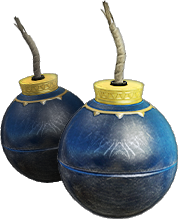

Adventuring Equipment
| Item | Cost | Weight |
|---|---|---|
| Acid (vial) | ||
| Common | 25 gp | 1 lb. |
| Potent | 50 gp | 1 lb. |
| Powerful | 75 gp | 1 lb. |
| Concentrated | 100 gp | 1 lb. |
| Alchemist's Fire (flask) | ||
| Common | 50 gp | 1 lb. |
| Potent | 75 gp | 1 lb. |
| Powerful | 100 gp | 1 lb. |
| Concentrated | 125 gp | 1 lb. |
| Ball Bearings (bag of 1,000) | 1 gp | 2 lb. |
| Barbed Wire (50 ft.) | 75 gp | 35 lb. |
| Caltrops (bag of 20) | 1 gp | 2 lb. |
| Compass | 10 gp | 1 lb. |
| Goggles | 10 gp | 1/2 lb. |
| Grapple Gun | 100 gp. | 8 lb. |
| Gunpowder | ||
| Charge | 1 gp | 1/2 lb. |
| Powderhorn | 25 gp | 4 lb. |
| Keg | 250 gp | 20 lb. |
| Holy Water (flask) | 25 gp | 1 lb. |
| Hunting Trap | 5 gp | 25 lb. |
| Lighter | 1 gp | 1/4 lb. |
| Matches (Box of 100) | 1 sp | 1 lb. |
| Oil | ||
| Flask | 2 gp | 1 lb. |
| Bottle | 50 gp | 5 lb. |
| Keg | 300 gp | 10 lb. |
| Parachute | 100 gp. | 12 lb. |
| Pocket Watch | 10 gp | 1 lb. |
| Photographic Camera | 25 gp | 4 lb. |
| Photo Plate (1 Sheet) | 1 gp | 2 lbs. |
| Ram, Portable | 4 gp | 35 lb. |
| Rebreather Mask | 150 gp. | 2 lb. |
| Tinderbox | 5 sp | 1 lb |
| Tool/Utility Belt | 2 gp | 2 lb. |
| Torch | 1 cp | 1 lb. |
Other Adventuring Equipment
Things such as kegs, powderhorns, alchemists fire, acid, and other things necessary for survival in a battle-rich world. The things listed are used in offensive ways, typically as makeshift weaponry or essential tools for survival.
Some of these items may be too technologically advanced for some D&D settings.
Acid. As an action, you can splash the contents of this vial onto a creature within 5 feet of you or throw the vial up to 20 feet, shattering it on impact. In either case, make a ranged Attack against a creature or object, treating the acid as an Improvised Weapon. On a hit, the target takes acid damage equal to it's potency:
| Acid Potency | Damage |
|---|---|
| Common | 2d6 acid damage |
| Potent | 4d6 acid damage |
| Powerful | 6d6 acid damage |
| Concentrated | 8d6 acid damage |
Alchemist's Fire. This sticky, adhesive fluid ignites when exposed to air. As an action, you can throw this flask up to 20 feet, shattering it on impact. Make a ranged Attack against a creature or object, treating the Alchemist's Fire as an Improvised Weapon. On a hit, the target takes fire damage equal to it's potency at the start of each of its turns. A creature can end this damage by using its action to make a corresponding Dexterity check to extinguish the flames.
| Alchemical Fire Potency | Damage | Extinguish DC |
|---|---|---|
| Common | 1d4 fire damage | DC 10 |
| Potent | 2d4 fire damage | DC 12 |
| Powerful | 3d4 fire damage | DC 14 |
| Concentrated | 4d4 fire damage | DC 16 |
Ball Bearings. As an action, you can spill these tiny metal balls from their pouch to cover a level, square area that is 10 feet on a side. A creature moving across the covered area must succeed on a DC 10 Dexterity saving throw or fall prone. A creature moving through the area at half speed doesn’t need to make the save.
Barbed Wire. This is a roll of barbed steel wire designed to keep things in or out. A creature trying to cross barbed wire must make a Dexterity saving throw (DC 10) or take 1d4 piercing damage and be restrained by the wire. A creature restrained by the barbed wire can use its action to make a Strength or Dexterity check (its choice) against the DC. On a success, it frees itself, on a failure, it takes 1d4 piercing damage. For setting up the barbed wire, it comes with a pair of thick gloves and anchor posts.
Caltrops. As an action, you can spread a bag of Caltrops to cover a square area that is 5 feet on a side. Any creature that enters the area must succeed on a DC 15 Dexterity saving throw or stop moving this turn and take 1 piercing damage. Taking this damage reduces the creature’s walking speed by 10 feet until the creature regains at least 1 hit point. A creature moving through the area at half speed doesn’t need to make the save.
Compass. This handheld mechanical device has a pointer always pointing north. Wisdom (Survival) checks made to determine location and direction using a compass are made with advantage.
Goggles. A pair of tinted goggles that can block out the soot, sand and wind while traveling or protect the vision of the wearer from smoke, sparks and other hazards. They also help your character look the part. All saving throws made against being blinded are made with a +3 bonus.
Grapple Gun. This wooden firearm is equipped with a high-tensile spring and set of ballistic wire to load a grappling hook into it's frame. As an action, you can launch a grappling hook and set of rope up to 100 feet. It can be used to reel or give slack, allowing the user to climb up or down the length of the rope at the user's full movement speed. Requires a free hand to use. The gun can support up to 1,000 lbs of weight.
Gunpowder. Gunpowder is chiefly used to propel a bullet out of the barrel of a pistol or rifle, or it is formed into a bomb. Gunpowder is sold in small wooden kegs and in water-resistant powder horns, and sometimes in small pouches called "charges."
- Charge - A Small leather pouch full of 10 doses of gunpowder. This can be lit on fire to make a minor explosion of a 5 foot radius. Creatures within that area must make a Dexterity save (DC 13) or be dealt 1d6 fire damage. - or half on a save.
- Powderhorn - Often hung on a leather strap for easy portability, a gunpowder horn holds up to 100 doses of gunpowder. This can be lit on fire to make a moderate explosion of a 10 foot radius. Creatures within that area must make a Dexterity save (DC 13) or be dealt 3d6 fire damage - or half on a save.
- Keg - Less portable than a horn, a gunpowder keg holds up to 1000 doses of gunpowder and is often transported via mount or wagon. This can be lit on fire to make a major explosion of a 15 foot radius. Creatures within that area must make a Dexterity save (DC 13) or be dealt 7d6 fire damage - or half on a save.
Holy Water. As an action, you can splash the contents of this flask onto a creature within 5 feet of you or throw it up to 20 feet, shattering it on impact. In either case, make a ranged Attack against a target creature, treating the Holy Water as an Improvised Weapon. If the target is a fiend or Undead, it takes 2d6 radiant damage. A Cleric or Paladin may create Holy Water by performing a Special ritual. The ritual takes 1 hour to perform, uses 25 gp worth of powdered silver, and requires the caster to expend a 1st-level spell slot.
Hunting Trap. When you use your action to set it, this trap forms a saw-toothed steel ring that snaps shut when a creature steps on a pressure plate in the center. The trap is affixed by a heavy chain to an immobile object, such as a tree or a spike driven into the ground. A creature that steps on the plate must succeed on a DC 13 Dexterity saving throw or take 1d4 piercing damage and stop moving. Thereafter, until the creature breaks free of the trap, its Movement is limited by the length of the chain (typically 3 feet long). A creature can use its action to make a DC 13 Strength check, freeing itself or another creature within its reach on a success. Each failed check deals 1 piercing damage to the trapped creature.
Lighter. A lighter holds a small amount of a flammable oil ignited by a flint striking metal. Its flame lights a 5- foot area as a candle does but it burns for 3 hours. A single flask of oil can refill two lighters.
Matches. An alchemical substance on the end of this small, wooden stick ignites when struck against a rough surface. Creating a flame with a match is much faster than creating a flame with flint and steel (or a magnifying glass) and tinder, although not as fast as with a lighter.
Oil. Oil is a highly flammable liquid that is used for anything from lamps, to bombs. Oil usually comes in 3 forms: a clay flask that holds 1 pint, a bottle that holds 5 pints, or a keg that holds 10 pints.
- Flask - As an action, you can splash the oil in this flask onto a creature within 5 feet of you or throw it up to 20 feet, shattering it on impact. Make a ranged Attack against a target creature or object, treating the oil as an Improvised Weapon. On a hit, the target is covered in oil. If the target takes any fire damage before the oil dries (after 1 minute), the target takes an additional 5 fire damage from the burning oil. You can also pour a flask of oil on the ground to cover a 5-foot radius area, provided that the surface is level. If lit, the oil burns for 2 rounds and deals 5 fire damage to any creature that enters the area or ends its turn in the area. A creature can take this damage only once per turn.
- Bottle - Same as with the flask, but the damage increases to 10 fire damage, and the radius is 10-feet. Additionally, the time for the oil to dry increases to 5 minutes - due to the amount of oil.
- Keg - Same as with the flask, but the damage increases to 15 fire damage, and the radius is 15-feet. Additionally, the time for the oil to dry increases to 10 minutes - due to the amount of oil
Parachute. This giant sheet of silken canvas is secured by silk rope to a backpack. As a reaction the wearer can launch the Parachute, and reduce the fall speed of the wearer to 40ft a round. While the parachute is deployed, your movement speed is halved as it drags behind you. It takes 10 minutes to pack up the parachute, or you may unhitch it as an action.
Once the wearer lands they must perform a DC 13 Dexterity (Acrobatics) check to land safety. On a failure the wearer lands prone and takes 1d10 bludgeoning damage. On a success the wearer lands on their feet and takes 0 damage.

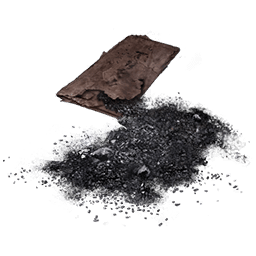
Pocket Watch. A circular device stored in a metal case used to provide the exact time of day, linked to a chain that is stored in a waist pocket of a jacket or vest. For double the listed price, the watch may also be able to be waterproofed and provide the elevation of the wearer.
Photographic Camera. A handheld metallic and ceramic device with a protruding glass lens on the front. It is used to capture a static image of what is in the view of the lens onto a plate.
- Photo Plate - A metal plate that holds a special paper used to capture what is exposed by the photographic camera lens. The captured image provides an accurate depiction of what opening the lens revealed, but without color. To develop a photo plate you must be proficient with alchemist's supplies and spend 10 minutes in a dark area.
Poison, basic. You can use the poison in this vial to coat one slashing or piercing weapon or up to three pieces of Ammunition. Applying the poison takes an action. A creature hit by the Poisoned weapon or Ammunition must make a DC 10 Constitution saving throw or take 1d4 poison damage. Once applied, the poison retains potency for 1 minute before drying.
Ram, Portable. You can use a Portable ram to break down doors. When doing so, you gain a +4 bonus on the Strength check. One other character can help you use the ram, giving you advantage on this check.
Rebreather Mask. This leather and hide mask is fitted with a paper and silken filter on the frontside of the mouth. As an action, you can don or doff the rebreather mask, which is affixed tightly to the mouth and nose, with a pair of semi-opaque glass lenses over the eyes. While wearing the mask, you are immune to inhaled toxins, diseases and poisons. You have disadvantage on Wisdom (Perception) checks based on sight and smell while wearing the mask.
The paper and silk filter on the gas mask allows the mask to be used for a cumulative time of 8 hours. After the 8 hours has been used up, the filter must be replaced, which costs 25 gp.
Tinderbox. This small container holds flint, fire steel, and tinder (usually dry cloth soaked in light oil) used to kindle a fire. Using it to light a torch—or anything else with abundant, exposed fuel—takes an action. Lighting any other fire takes 1 minute.
Tool/Utility Belt. A sturdy reinforced leather belt with numerous covered pockets and fitted loops to hold small tools and supplies, making it easy to keep about 15 pounds of additional items on hand - so long as they are tools or equipment.
Torch. A torch burns for 1 hour, providing bright light in a 20-foot radius and dim light for an additional 20 feet. If you make a melee Attack with a burning torch and hit, it deals 1 fire damage.
Additional Tools
With a world full of alchemical and material wonders - and with the presence of firearms - additional tools exist to fulfill niche jobs and services.
Tools
| Item | Cost | Weight |
|---|---|---|
| Gunkit | 50 gp. | 10 lb. |
| Investigator's Supplies | 25 gp | 8 lb. |
Gunkit. This kit includes a variety of small hand tools - including pliers, a rotary tool, metal files, a vial of oil, and a hammer. The kit holds everything needed to clean a gun, repair a misfire, remove a stuck bullet, and cast new ammunition (provided a heat source is nearby).
Investigator's Supplies. This slim metalbound leather case holds the tools and components necessary to collect and analyze evidence in the field. Its contents include materials such as clean containers, small vials, labels, thin leather gloves, finger print powders, tweezers and swabs.
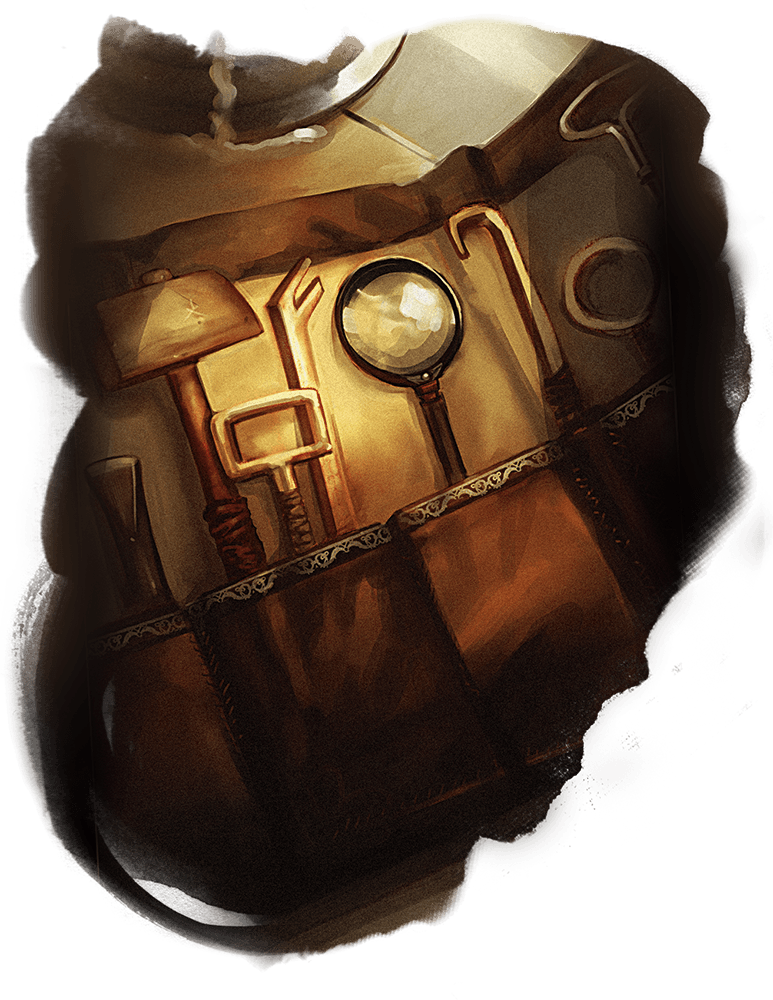
Poisons & Toxins
Given their insidious and deadly nature, poisons are illegal in most societies but are a favorite tool among assassins, drow, marauders, and other creatures of a morally ambiguous nature.
Poisons can be extracted from a variety of flora and fauna; however, convincing an alchemist or herbalist to do so is sure to rouse suspicion - unless they fully support your actions, such as an assassin's guild herbalist, a necromancer, or a sinister alchemist.
Some poisons are regarded as legal in many cases due to their effective nature or their particular usage - but this is a regional stipulation, a poison regarded as legal in one region or city may still be illegal elsewhere.
Poisons come in the following types.
Contact. A creature that touches contact poison with exposed skin suffers its effects.
Ingested. A creature must swallow an entire dose of ingested poison to suffer its effects. You might decide that a partial dose has a reduced effect, such as allowing advantage on the saving throw or dealing only half damage on a failed save.
Inhaled. These poisons are powders or gases that take effect when they are inhaled. A single dose fills a 5-foot cube.
Injury. A creature that takes slashing or piercing damage from a weapon or piece of ammunition coated with injury poison is exposed to its effects.
Multitype. These poisons are multifunctional - meaning they can be applied through various means.
Contact Poisons
| Poison | Save DC | Price per Dose | Source |
|---|---|---|---|
| Aboleth Oil | 14 | 2,500gp | Creature |
| Black Ivy Paste | 16 | 200gp | Herbal |
| Boneshard Paste | 13 | 750gp | Hybrid |
| Brawler's Bourbon | 12 | 175gp | Herbal |
| Chuul Paralytic | 13 | 450gp | Creature |
| Crawler Mucus | 13 | 200gp | Creature |
| Goodbye Kiss | 17 | 1,600gp | Herbal |
| Golden Ice | 17 | 1,200gp | Hybrid |
| Oil of Taggit | 13 | 400gp | Herbal |
| Sunlight Oil | 18 | 1,300gp | Hybrid |
Brewed by Another Dude?
The Poisons in this section are based upon the Poisons for 5th Edition document by Matthew Eckart - with some modifications and simplification.
If interested in more defined rules for poisons in D&D - including more potent varieties, more types of poisons, and how to treat them - please visit his document for further information.
Ingested Poisons
| Poison | Save DC | Price per Dose | Source |
|---|---|---|---|
| Assassin's Blood | 10 | 150gp | Herbal |
| Celestial Lightsblood | 25 | 13,500gp | Hybrid |
| Depraved Decadence | 25 | 9,500gp | Hybrid |
| Lockjaw | 11 | 250gp | Herbal |
| Midnight Tears | 17 | 1,500gp | Herbal |
| Mother's Mercy | 13 | 600gp | Herbal |
| Nightmare Powder | 19 | 1,450gp | Herbal |
| Pale Tincture | 16 | 250gp | Herbal |
| Pallid Deception | 16 | 1,340gp | Herbal |
| Potion of Poison | 13 | 1,460gp | Herbal |
| Torpor | 15 | 600gp | Herbal |
| Truth Serum | 11 | 150gp | Herbal |
| Unicorn Blood | 17 | 500gp | Creature |
Inhaled Poisons
| Poison | Save DC | Price per Dose | Source |
|---|---|---|---|
| Anosmia | 18 | 800gp | Hybrid |
| Burnt Othur Fumes | 13 | 500gp | Herbal |
| Dragon's Breath | 18-22 | 2,500-5,000gp | Creature |
| Dretch Gas | 11 | 200gp | Creature |
| Dust of the Desert Winds | 11 | 120gp | Herbal |
| Essence of Ether | 15 | 300gp | Herbal |
| Euphoria Breath | 11 | 365gp | Creature |
| Fish out of Water | 13 | 350gp | Herbal |
| Gorgon Breath | 13 | 1,200gp | Creature |
| Gravedust | 10 | 100gp | Hybrid |
| Insanity Mist | 15 | 2,250gp | Herbal |
| Malice | 15 | 250gp | Herbal |
| Vrock Spores | 14 | 620gp | Creature |
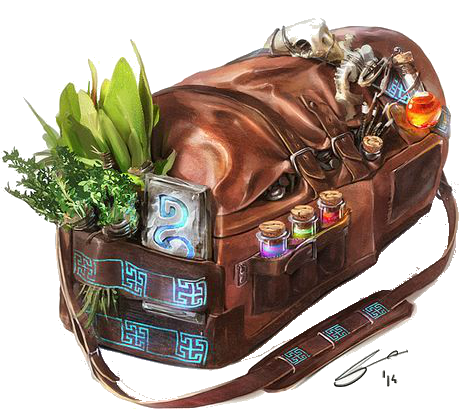
Injury Poisons
| Poison | Save DC | Price per Dose | Source |
|---|---|---|---|
| Bearded Devil Venom | 12 | 600gp | Creature |
| Bloodfire Paste | 13 | 650gp | Hybrid |
| Bone Devil's Sting | 14 | 1,000gp | Creature |
| Celestial Essence | 14 | 400gp | Hybrid |
| Centipede Venom | 11 | 200gp | Creature |
| Cockatrice Saliva | 11 | 750gp | Creature |
| Drow Poison | 13 | 200gp | Hybrid |
| Elemental Contra | 25 | 3,100gp | Hybrid |
| Ettercap Venom | 11 | 50gp | Creature |
| Grell Venom | 11 | 150gp | Creature |
| Imp Venom | 11 | 200gp | Creature |
| Lichbane Poison | 17 | 650gp | Hybrid |
| Liquid Mortality | 22 | 1,250gp | Hybrid |
| Metabolite | 25 | 1,200gp | Hybrid |
| Naga Venom | 13-15 | 1,900-2,150gp | Creature |
| Pit Fiend Venom | 21 | 17,000gp | Creature |
| Pseudodragon Venom | 11 | 125gp | Creature |
| Purified Couatl Venom | 13 | 700gp | Creature |
| Purple Worm Poison | 19 | 2,000gp | Creature |
| Scorpion Venom | 9-12 | 115-1,100gp | Creature |
| Serpent Venom | 10-11 | 125-200gp | Creature |
| Spider Venom | 10-11 | 100-200gp | Creature |
| Sprite Poison | 10 | 175gp | Hybrid |
| Svirfneblin Poison | 12 | 165gp | Hybrid |
| Thri-kreen Venom | 11 | 180gp | Creature |
| Wasp's Sting | 11 | 230gp | Creature |
| Witchbane Poison | 17 | 700gp | Hybrid |
| Wyvern Poison | 15 | 1,200gp | Creature |
| Yuan-ti Venom | 11-13 | 110-150gp | Creature |
| Zealot's Blade | 25 | 4,000gp | Hybrid |
Multitype Poisons
| Poison | Save DC | Price per Dose | Source |
|---|---|---|---|
| Antithesis | 14 | 1,300gp | Hybrid |
| Basic Poison | 10 | 100 gp | Herbal |
| Betrayer's Inception | 22 | ??? | ??? |
| Bloodwine | 11 | 250gp | Hybrid |
| Ghost Blossom Extract | 13 | 430gp | Herbal |
| Lich Dust | 18 | 2,400gp | Creature |
| Tears of the Infernal | 22 | 7,650gp | Hyrbid |
| Veinrot Poison | 13 | 500gp | Herbal |
| Void's Blood | 30 | Priceless | Herbal |



![]()
Contact Poisons
Aboleth Oil
Aboleth oil is impossibly rare, and incredibly dangerous. Coming into contact with it accidentally can quickly spell death for most creatures.
- Acquisition: This poison must be harvested from a recently dead or incapacitated aboleth. It requires no further preparation.
- Market Value: 2,500gp
- Legality: Illegal
- Saving Throw DC: 14
- Effect: A creature subjected to this oil must make a Constitution saving throw or become diseased. The disease has no effect for 1 minute and can be removed by any magic that cures disease, but the creature is unaware that they have been affected. After 1 minute, the diseased creature's skin becomes translucent and slimy, the creature can't regain hit points unless it is underwater, and the disease can be removed only by heal or another disease-curing spell of 6th level or higher. When the creature is outside a body of water, it takes 6 (1d12) acid damage every 10 minutes unless moisture is applied to the skin before 10 minutes have passed.
Black Ivy Paste
Black ivy is rare, but extremely poisonous. Its leaves can be ground into a thin paste and spread upon surfaces to injure those that touch it.
- Acquisition: This poison is ground from the leaves of the rare black ivy plant.
- Market Value: 200gp
- Legality: Illegal
- Saving Throw DC: 16
- Effect: A creature subjected to this poison must make a Constitution saving throw or take 3 (1d6) poison damage. The paste retains its potency until a total of at least 10 damage has been dealt.
Boneshard Paste
This relatively uncommon positoxin is typically spread upon surfaces in entryways to buildings or rooms in order to protect against undead intrusion. It has a pale color that allows it to blend in to light-colored surfaces.
- Acquisition: Boneshard paste is made by mixing the cremated remains of a holy person with holy water, and then allowing the mixture to dry in a place of religious importance, like a temple.
- Market Value: 750gp
- Legality: Legal
- Saving Throw DC: 13
- Effect: An undead creature subjected to this poison must succeed on a Constitution saving throw or be poisoned for 1 minute, also taking 18 (4d8) radiant damage on a failed save, or half as much damage on a successful one. The creature's speed is reduced to 0 until the end of their next turn. The poisoned creature is paralyzed. The creature can repeat the saving throw at the end of each of its turns, ending the effect on itself on a success.
Brawler's Bourbon
Brawler's bourbon is a favorite among fighters that don't mind cheating. It looks, tastes, and smells like regular bourbon whiskey, but actually contains a rather potent poison. It has a unique property: ingesting a dose of the poison gives immunity to its effects for 24 hours. Clever cheats will typically take a swig before a fight and accidentally spill some on their hands, delivering a dose with a swift punch to exposed skin. It does not wash off with water.
- Acquisition: Brawler's bourbon is made from a narcotic plant called night maize.
- Market Value: 175gp
- Legality: Illegal
- Saving Throw DC: 12
- Effect: A creature subjected to this poison must succeed on a Constitution saving throw or be poisoned for 1 minute. If the saving throw fails by 5 or more, the creature is also unconscious while poisoned in this way. The creature wakes up if it takes damage or if another creature takes an action to shake it awake.
Chuul Paralytic
Chuul paralytic isn't widely desired because crawler mucus does the same thing for much cheaper, but chuul paralytic is easier to modify and more difficult to treat.
- Acquisition: This poison must be harvested from a dead or incapacitated chuul. It requires no further preparation.
- Market Value: 450gp
- Legality: Regulated
- Saving Throw DC: 13
- Effect: A creature subjected to this poison must succeed on a Constitution saving throw or be poisoned for 1 minute. The poisoned creature is paralyzed. The creature can repeat the saving throw at the end of each of its turns, ending the effect on itself on a success.
Crawler Mucus
Crawler mucus comes from the oversized insects known as carrion crawlers. Carrion crawlers lurk in caves, abandoned underground structures, and sometimes sewers, always drawn to the scent of death and its next meal.
- Acquisition: This poison must be harvested from a dead or incapacitated crawler. It requires no further preparation.
- Market Value: 200gp
- Legality: Regulated
- Saving Throw DC: 13
- Effect: A creature subjected to this poison must succeed on a Constitution saving throw or be poisoned for 1 minute. The poisoned creature is paralyzed. The creature can repeat the saving throw at the end of each of its turns, ending the effect on itself on a success.
Goodbye Kiss
Some would-be assassins seem much friendlier than they really are. The goodbye kiss is a poison modified from midnight tears so that it can be applied to the lips without harming the poisoner. The poisoner must first coat the area of their skin that will come in contact with the poison in the nectar of the flower that midnight tears are made from.
- Acquisition: The goodbye kiss requires midnight tears and a rare liquid made from the nectar of the same flower: the blackleaf rose.
- Market Value: 1,600gp
- Legality: Illegal
- Saving Throw DC: 17
- Effect: A creature subjected to this poison suffers no effect until the stroke of midnight. If the poison has not been neutralized before then, the creature must succeed on a Constitution saving throw, taking 31 (9d6) poison damage on a failed save, or half as much damage on a successful one.
Golden Ice
Golden ice is a specialized poison used by good-aligned creatures for a variety of purposes. The nature of the ice allows it to be shaped into a variety of objects: coins, ammunition, and anything else the creative owner might imagine. Evil creatures often mistake it for a gold coin, only to pick it up and realize their mistake.
- Acquisition: This is made by mixing cryrium and molten gold. The extremely hot mixture is then quenched in holy oil.
- Market Value: 1,200gp
- Legality: Legal
- Saving Throw DC: 17
- Effect: An evil creature that comes into contact with golden ice must make a Constitution saving throw or take 30 (12d4) cold damage. This damage bypasses all resistances and immunities.
Oil of Taggit
This oil used to be used in many medical applications, but its widespread misuse has caused it to be heavily regulated in most civilizations.
- Acquisition: The oil of taggit is harvested from the nectar of taggit bloom, but, due to it's scarcity, the best way to acquire the oil is on the black market.
- Market Value: 400gp
- Legality: Regulated
- Saving Throw DC: 13
- Effect: A creature subjected to this poison must succeed on a Constitution saving throw or become poisoned for 24 hours. The poisoned creature is unconscious. The creature wakes up if it takes damage.
Sunlight Oil
Sunlight oil was originally crafted by clerics of sun gods seeking to combat a vampire outbreak, but has since become the primary choice for fighting any form of powerful undead. Sunlight oil will lose its potency if it is not exposed to direct sunlight for 24 hours.
- Acquisition: It is made from oil that has been blessed by the clergy of the sun god and infused with the sun's magic. The blessed oil must either have the daylight spell cast upon it every day at dusk for a month, or have the full duration of the sunbeam spell channeled into it.
- Market Value: 1,300gp
- Legality: Legal
- Saving Throw DC: 18
- Effect: An undead creature subjected to this poison must succeed on a Constitution saving throw or take 27 (6d8) radiant damage and be blinded until the end of the beginning of your next turn (6 seconds if out of combat). On a successful save, they take half damage and are not blinded. Creatures with sunlight sensitivity have disadvantage on their saving throw.-
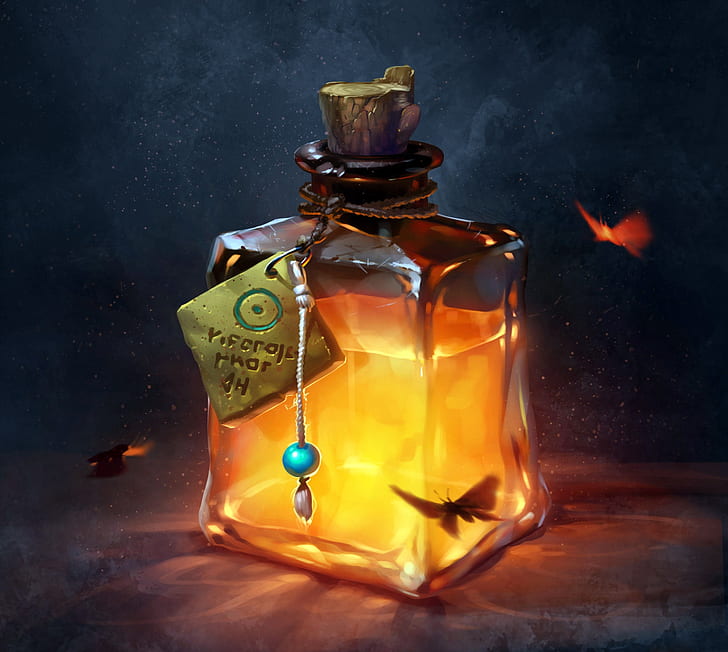

Ingested Poisons
Assassin's Blood
Assassin's blood is the primary tool of assassins that wish to subtly eliminate their targets, often mixing a dose into food or drink.
- Acquisition: This poison can be extracted from a rare tree known as the blood tree.
- Market Value: 150gp
- Legality: Illegal
- Saving Throw DC: 10
- Effect: A creature subjected to this poison must make a Constitution saving throw. On a failed save, it takes 6 (1d12) poison damage and is poisoned for 24 hours. On a successful save, the creature takes half damage and isn’t poisoned.
Celestial Lightsblood
The blood of celestials is powerful, and when converted into a toxin it can be used to cripple and wither those that ingest it; However, celestial lightsblood cannot affect celestials.
- Acquisition: This poison is made from the blood of a willing celestial. The celestial blood is then mixed with that of the intended target creature type and several other readily available poison ingredients.
- Market Value: 13,500gp
- Legality: Legal
- Saving Throw DC: 25
- Effect: A creature subjected to this poison must make a Constitution saving throw. On a failed save, their Dexterity score is decreased by 2, but cannot be reduced past 1, and they must repeat the saving throw at the beginning of their next turn. On a subsequent failed save, their Constitution score is decreased by 2, but cannot be reduced past 1. These scores can only be restored by the greater restoration spell or similar magic.
Depraved Decadence
There exists a special type of acid with unique properties that allow it to be modified to ignore certain types of material. This acid once reached the hands of extremely evil poisoners that then modified it to cause slow, painful death by starvation. Using this poison is considered cruel even by the standards of most assassins.
- Acquisition: The recipe for this poison is rare, as is knowledge of where to find the proper ingredients. One must find a particularly cruel poisoner that might know the truth behind it, or be willing to sell doses.
- Market Value: 9,500gp
- Legality: Illegal
- Saving Throw DC: 25
- Effect: A creature subjected to this poison must make a Constitution saving throw. On a failed save, a creature can no longer receive sustenance by consuming food. Every two days the creature goes without sustenance, their Constitution score decreases by 1. If a creature's Constitution score reaches 0 due to this effect, they die.
Lockjaw
Lockjaw is a mild paralytic that loses its potency before it is even swallowed, thereby only affecting the mouth and jaw.
- Acquisition: Lockjaw can be made from gnoll weed - a narcotic favored by gnolls for it's numbing capabilities.
- Market Value: 250gp
- Legality: Regulated
- Saving Throw DC: 11
- Effect: A creature subjected to this poison must make a Constitution saving throw. On a failed save, the creature's jaw muscles lock and its tongue falls numb. An affected creature cannot speak or cast spells that require verbal components for 10 minutes.
Midnight Tears
Many nobles have died peacefully in their sleep while their loved ones lay nearby, falling to the effects of a dose of Midnight Tears administered by a stealthy assassin many hours before.
- Acquisition: This poison can be crafted from the Blackleaf Rose. The leaves of this flower can be ground into a fine paste and dissolved into liquid, leaving behind no color, odor, or taste.
- Market Value: 1,500gp
- Legality: Illegal
- Saving Throw DC: 17
- Effect: A creature that ingests this poison suffers no effect until the stroke of midnight. If the poison has not been neutralized before then, the creature must succeed on a Constitution saving throw, taking 31 (9d6) poison damage on a failed save, or half as much damage on a successful one.
Mother's Mercy
This toxin looks like, tastes like, and has the texture of cow's milk. Those affected by the toxin slowly lose all bodily strength until they are left unconscious, eventually dying peacefully and without pain.
- Acquisition: This poison comes from the stems of the Mother Tulip.
- Market Value: 600gp
- Legality: Regulated
- Saving Throw DC: 13
- Effect: A creature subjected to this poison must succeed on a Constitution saving throw, becoming poisoned on a failed save, and must repeat the saving throw at the start of each of its turns. While poisoned in this way, the creature's Constitution score decreases by 2. On each successive failed save, the creature's Constitution score is further reduced by 1. If a creature's Constitution score is reduced to 0 in this way, it dies. After two successful saves, the poison ends and the creature's Constitution score is restored.
Nightmare Root
Nightmare root comes from a plant deep within the abyss. When ground into a paste, it can be mixed into food or drink without significantly altering its taste, color, or odor, but it does add the texture of fine sand. Those that consume the root find themselves haunted by the greatest fears upon falling asleep.
- Acquisition: This poison comes from pulverized nightmare roots from the abyss.
- Market Value: 1,450gp
- Legality: Illegal
- Saving Throw DC: 19
- Effect: A creature subjected to this poison must make a Constitution saving throw. On a failed save, the creature's sleep is haunted with a combination of their greatest fears and everything they've ever done wrong. An affected creature cannot benefit from long rests, and therefore gains a point of exhaustion at the beginning of the next day. The poison leaves the creature's system 24 hours after ingestion.
Pale Tincture
This milky liquid is the primary choice of cruel manipulators that often use it to coerce favors out of unwilling acquaintances. The poison is introduced unknowingly, and slowly chips away at the victim's vitality, always threatening a slow and painful death. The promise of a cure is enough to make most people do things that they would otherwise avoid.
- Acquisition: This poison is crafted by distilling Olina petals down into a milky liquid.
- Market Value: 250gp
- Legality: Illegal
- Saving Throw DC: 16
- Effect: A creature subjected to this poison must succeed on a Constitution saving throw or take 3 (1d6) poison damage and become poisoned. The poisoned creature must repeat the saving throw every 24 hours, taking 3 (1d6) poison damage on a failed save. Until this poison ends, the damage the poison deals can’t be healed by any means. After seven successful saving throws, the effect ends and the creature can heal normally.
Pallid Deception
Upon ingestion, the victim begins experiencing terrible headaches and visual hallucinations. They often see things twisting and warping, with vile and hideous creatures seeking to cause them harm. Those in the throes of the poison often lash out at those around them, believing that they have suddenly been surrounded by monstrosities. A few unfortunate souls have survived the experience, and the mark of paranoia often follows them until the end of their days.
- Acquisition: Created from the paste made by grinding up spriteball petals, this milky substance has a rather intoxicating aroma that often is mistaken for cooked meat.
- Market Value: 1,340gp
- Legality: Illegal
- Saving Throw DC: 16
- Effect: A creature subjected to this poison must succeed on a Constitution saving throw, taking 22 (4d10) psychic damage on a failed save, and must repeat the saving throw at the start of each of its turns. On a successful save, the effect ends. While the creature remains poisoned in this way, it must succeed a Wisdom saving throw at the end of each of its turns, taking 11 (2d10) psychic damage on a failed save.
Potion of Poison
This concoction looks, smells, and tastes like a potion of healing or other beneficial potion. However, it is actually poison masked by illusion magic. An identify spell reveals its true nature.
- Acquisition: This poison is crafted from blood herb and distilled similarly to a standard restoration potion.
- Market Value: 1,460gp
- Legality: Illegal
- Saving Throw DC: 13
- Effect: A creature subjected to this poison takes 10 (3d6) poison damage and must succeed on a Constitution saving throw or be poisoned. While poisoned in this way, the creature takes 10 (3d6) poison damage at the start of each of its turns. At the end of each of its turns, the creature can repeat the saving throw. On a successful save, the poison damage the creature takes on subsequent turns decreases by 1d6. The poison ends when the damage decreases to 0.
Torpor
Torpor has been used recreationally in small doses throughout history, but in its concentrated form it has many sinister capabilities. It can render a creature completely unable to act for extended periods of time.
- Acquisition: This poison is crafted from Ebrium Fungus, and although technically legal, is very rarely carried in shops due to its price and limited uses. It can be found fairly commonly on the black market.
- Market Value: 600gp
- Legality: Legal
- Saving Throw DC: 15
- Effect: A creature subjected to this poison must succeed on a Constitution saving throw or become poisoned for 4d6 hours. The poisoned creature is incapacitated.
Truth Serum
Truth serum is used rarely in high-profile trials, religious ceremonies, and background checks for sensitive jobs.
- Acquisition: This poison is crafted from the rare plant Olus Veritus, or can be bought from some specialty magic shops, alchemists, religious organizations, or the black market.
- Market Value: 150gp
- Legality: Legal
- Saving Throw DC: 11
- Effect: A creature subjected to this poison must succeed on a Constitution saving throw or become poisoned for 1 hour. The poisoned creature can’t knowingly speak a lie, as if under the effect of a zone of truth spell.
Unicorn Blood
The blood of a unicorn is thick and silvery. While the initial consumption of unicorn blood brings a sense of life and well-being, its lingering effects are rarely worth the tradeoff.
- Acquisition: Unicorn blood must be taken from a willing unicorn. If that unicorn dies before the blood is consumed, it loses its properties.
- Market Value: 500gp
- Legality: Illegal
- Saving Throw DC: 17
- Effect: A creature subjected to this poison heals (4d4 + 4) hit points and must then succeed on a Constitution saving throw. On a failed save, they are affected by one of the options of the bestow curse spell. The DM rolls a d4 to determine which curse takes hold.


Inhaled Poisons
Anosmia
The sense of smell is a luxury to some species, but to others it is entirely necessary for survival. This poison gas is designed to eliminate that ability.
- Acquisition: Anosmia can be made from almost any paralytic or numbing agent, but the process is long and involved, requires many cycles of refinement to reach the desired strength of gas.
- Market Value: 800gp
- Legality: Legal
- Saving Throw DC: 18
- Effect: A creature subjected to this poison must make a Constitution saving throw. On a failed save, the creature loses its sense of smell for 48 hours. If the creature relies on smell to locate other creatures, it can no longer do so. The creature automatically fails any Wisdom (Perception) check that relies on smell. If the creature has the keen smell trait, it must also succeed on a Wisdom saving throw or act as though affected by the confusion spell during their next turn.
Burnt Othur Fumes
Some of the poisonous plant matter that can be ground and dissolved into other poisons can also be quickly burned to spread a cloud of poisonous smoke.
- Acquisition: This poison is created by mixing the pulverized paste of a ash chives with fine black powder, which can then be molded and allowed to dry into a ball or other shape. When ignited, this ball quickly releases fumes that are poisonous to those that inhale them.
- Market Value: 500gp
- Legality: Illegal
- Saving Throw DC: 13
- Effect: A creature subjected to this poison must succeed on a Constitution saving throw or take 10 (3d6) poison damage, and must repeat the saving throw at the start of each of its turns. On each successive failed save, the creature takes 3 (1d6) poison damage. After three successful saves, the poison ends.
Dragon's Breath
The breath of green dragons is a devastating weapon. It can quickly turn into a cloud of death for the enemies of those that can gather it.
- Acquisition: This poison must be harvested from a dead or incapacitated adult or ancient green dragon. It requires no further preparation.
- Market Value: 2,500-5,000gp
- Legality: Regulated
- Saving Throw DC: 18-22
- Effect: A creature subjected to this poison must succeed on a Constitution saving throw, taking 56 (16d6) poison damage on a failed save, or half as much damage on a successful one. If the poison has been harvested from an ancient green dragon, this damage increases to 77 (22d6) and the saving throw DC increases by 4; the value of the poison also doubles.
Dretch Gas
Dretch are disgusting little fiends from the lower planes. The gas they release causes violent coughing fits and hinders those that come in contact with it.
- Acquisition: This poison must be harvested from a dead or incapacitated dretch. It requires no further preparation.
- Market Value: 200gp
- Legality: Regulated
- Saving Throw DC: 11
- Effect: Dretch gas lingers for 1 minute after it is released, or until a strong wind disperses it. Any creature that starts its turn in that area must succeed on a Constitution saving throw or be poisoned until the start of its next turn. While poisoned in this way, the target can take either an action or a bonus action on its turn, not both, and can't take reactions.
Dust of the Desert Winds
This powder has uses as a desiccant when properly packaged and used in small quantities. However, it is also the favored poison of assassins that dwell in the harsher climates of the world. The toxin begins immediately leaching all of the moisture from a victim’s body after it has entered through the mucous membranes. Once dead, the victim is little more than a desiccated husk.
- Acquisition: This poison is created from Nug Fungus. The spores of this fungus can be gathered and stored for later use as a poison.
- Market Value: 120gp
- Legality: Legal
- Saving Throw DC: 11
- Effect: A creature subjected to this poison must succeed on a Constitution saving throw or take 3 (1d6) poison damage, and must repeat the saving throw at the start of each of its turns. On each successive failed save, the creature takes 2 (1d4) poison damage. After five successful saves, the poison ends. If the creature spends its action consuming a liquid, it automatically succeeds the saving throw for that turn. This effect ignores a creature's immunity to poison and poison damage, but cannot affect a creature with no natural bodily moisture (such as a Skeleton or an Iron Golem).



Essence of Ether
Commonly referred to as "knock-out gas," this gas is used in certain civilizations as a crowd-control solution to handle riots and other unruly crowds. It is also, as with all poisons, used for much more nefarious efforts.
- Acquisition: This poison is created from Frenn Moss - mainly by distilling it into a liquid that vaporizes into this gas, creating a potent vapor that disperses quickly.
- Market Value: 300gp
- Legality: Regulated
- Saving Throw DC: 15
- Effect: A creature subjected to this poison must succeed on a Constitution saving throw or become poisoned for 8 hours. The poisoned creature is unconscious. The creature wakes up if it takes damage or if another creature takes an action to shake it awake.
Euphoria Breath
The breath of faerie dragons has long been used for recreational purposes, but it also serves as a viable option for incapacitating enemies.
- Acquisition: This poison must be harvested from a dead or incapacitated faerie dragon. It requires no further preparation.
- Market Value: 365gp
- Legality: Legal
- Saving Throw DC: 11
- Effect: A creature subjected to this poison must succeed on a Wisdom saving throw or, for 1 minute the, target can't take reactions and must roll a d6 at the start of each of its turns to determine its behavior during the turn:
- 1-4. The target takes no action or bonus action and uses all of its movement to move in a random direction.
- 5-6. The target doesn't move, and the only thing it can do on its turn is make a Wisdom saving throw, ending the effect on itself on a success.
Fish out of Water
This poison is different from most inhaled poisons; it is a liquid rather than a gas or powder. It is designed specifically to be released underwater and kill water-breathing creatures, though it does not do so quickly. Amphibious creatures can survive its effects, but they are often forced out of water as a result of them.
- Acquisition: This poison is created by distilling wuggy moss into a liquid, adding pressure to the mixture as it cools in order to force air into it.
- Market Value: 350gp
- Legality: Legal
- Saving Throw DC: 13
- Effect: A creature subjected to this poison must succeed on a Constitution saving throw or become poisoned for 1 hour. While poisoned in this way, the creature loses any ability to breath underwater. Rules for suffocating can be found on page 183 of the Player's Handbook.
Gorgon Breath
Few that encounter a gorgon live to tell about it, and for good reason. Their breath weapon is extraordinarily dangerous, and even seasoned poisoners hesitate to attempt to harvest or use it.
- Acquisition: This poison must be harvested from a dead or incapacitated gorgon. It requires no further preparation.
- Market Value: 1,200gp
- Legality: Regulated
- Saving Throw DC: 13
- Effect: A creature subjected to this gas must succeed on a Constitution saving throw against being magically petrified. On a failed save, the creature begins to turn to stone and is restrained. It must repeat the saving throw at the end of its next turn. On a success, the effect ends. On a failure, the creature is petrified until freed by the greater restoration spell or other magic.
Gravedust
This gray-brown powder derives its name from its resemblance to the grime common to tombs, crypts and other long-enclosed areas. Even though most undead do not need to breathe, being exposed to this toxin reintroduces the feeling of suffocation, rendering them unable to act.
- Acquisition: Gravedust is made by mixing consecrated earth into holy water, and then burning the mixture until it is a dry ash.
- Market Value: 100gp
- Legality: Legal
- Saving Throw DC: 10
- Effect: An undead creature subjected to this poison must succeed on a Constitution saving throw or become incapacitated for 1 minute. The creature can repeat the saving throw at the end of each of its turns, ending the effect on itself on a success.
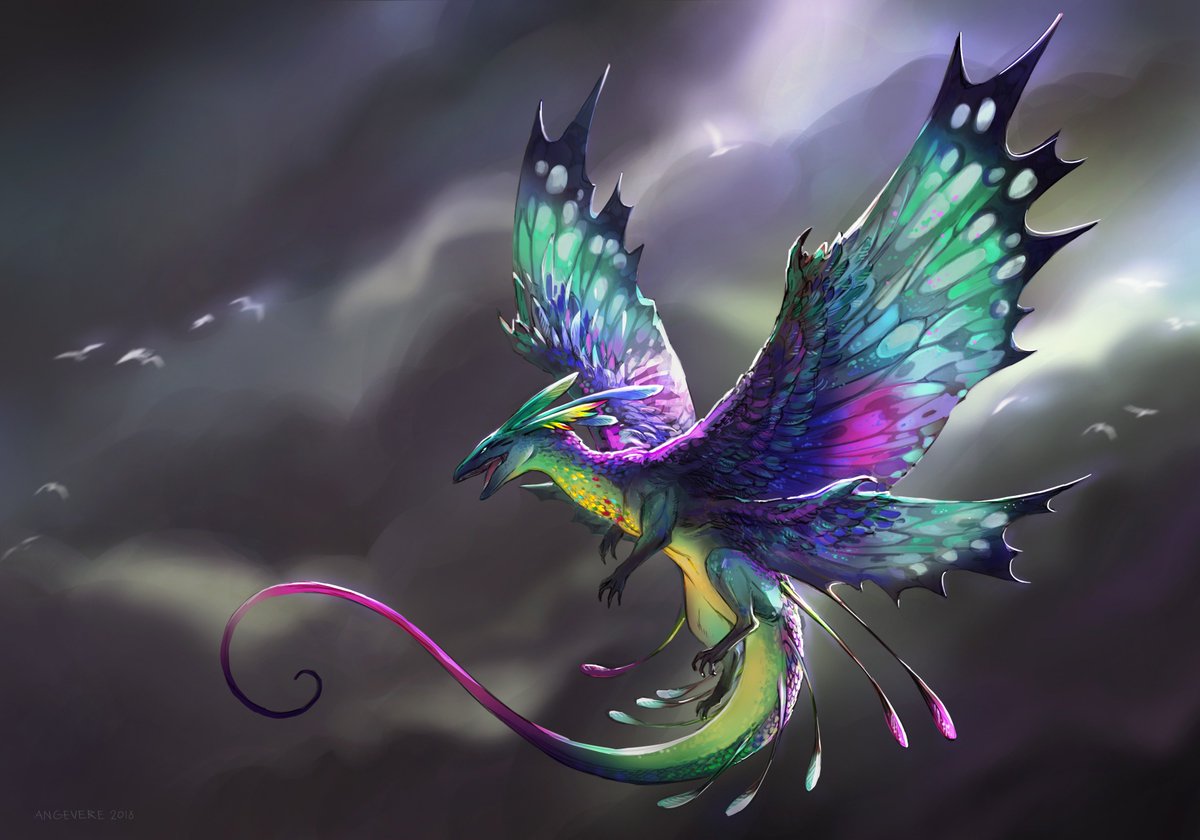

Insanity Mist
Most poisoners seek to kill their targets, but some poisoners just enjoy messing with the minds of their foes. Insanity mist was invented by those cruel individuals.
- Acquisition: This poison is crafted from Nightcall Bloom. The mixture is then distilled and the vapors are collected in a container for later use.
- Market Value: 2,250gp
- Legality: Illegal
- Saving Throw DC: 15
- Effect: A creature subject to this poison must succeed a Constitution saving throw or gain an effect listed on the short-term madness table within the DM's Guide (page 259). The creature can repeat the saving throw at the end of each of its turns, ending the effect on itself on a success.
Malice
This poison is also known as "night thorn". When pulverized, the powder blinds any creature that inhales it.
- Acquisition: This poison is crafted from the Abyss Flower, the thorns from the stem of the flower are collected and pulverized into a fine powder.
- Market Value: 250gp
- Legality: Illegal
- Saving Throw DC: 15
- Effect: A creature subjected to this poison must succeed on a Constitution saving throw or become poisoned for 1 hour. The poisoned creature is blinded.
Vrock Spores
Vrock are a giant, vulture-like demon. The spores that they release deal significant damage over time to creatures that come in contact with them.
- Acquisition: This poison must be harvested from a dead or incapacitated vrock. It requires no further preparation.
- Market Value: 620gp
- Legality: Illegal
- Saving Throw DC: 14
- Effect: A creature subjected to these spores must succeed on a Constitution saving throw or become poisoned. While poisoned in this way, a target takes 5 (1d10) poison damage at the start of each of its turns. A target can repeat the saving throw at the end of each of its turns, ending the effect on itself on a success. Emptying a vial of holy water on the target also ends the effect on it.
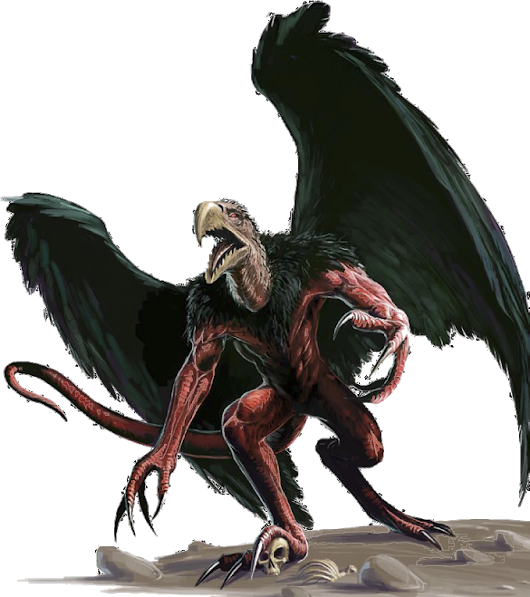
Injury Poisons
Bearded Devil Venom
Devil venom is extremely rare, but also extremely potent when in the hands of an experienced poisoner. Bearded devil venom is a less powerful version of the devastating venom of pit fiends.
- Acquisition: This poison must be harvested from a dead or incapacitated bearded devil. It requires no further preparation.
- Market Value: 600gp
- Legality: Illegal
- Saving Throw DC: 12
- Effect: A creature subjected to this poison must succeed on a Constitution saving throw or be poisoned for 1 minute. While poisoned in this way, the target can't regain hit points. The target can repeat the saving throw at the end of each of its turns, ending the effect on itself on a success.
Bloodfire Paste
A reddish-brown sticky paste, this poison is extremely rare. Once injured, the poison reacts with the creatures blood and begins igniting from within, causing a creature to quickly burn from the inside out. Often, the toxin burns through the victim so quickly and intensely that the remains are little more than charred bones.
- Acquisition: There are several methods of creating bloodfire paste, although the most common involves the fruit of a desert cactus soaked in the saliva of giant desert lizards and mixed with distilled alcohols. After several days of soaking, the fruit is removed from the mixture and ground into a paste.
- Market Value: 650gp
- Legality: Illegal
- Saving Throw DC: 13
- Effect: A creature subjected to this poison must make a Constitution saving throw, taking 11 (2d10) fire damage on a failed save, and must repeat the saving throw at the start of each of its turns. On each successive failed save, the creature takes 3 (1d6) fire damage. After three successful saves, the poison ends. This effect ignores a creature's immunity to poison, but cannot effect a creature without blood.
Bone Devil's Sting
Devil venom is extremely rare, but also extremely potent when in the hands of an experienced poisoner. Bone devil venom is deadly, being the fiendish equivalent to wyvern poison.
- Acquisition: This poison must be harvested from a dead or incapacitated bone devil. It requires no further preparation.
- Market Value: 1,000gp
- Legality: Illegal
- Saving Throw DC: 14
- Effect: A creature subjected to this poison must succeed on a Constitution saving throw or take 17 (5d6) poison damage and become poisoned for 1 minute. On a successful save, the target takes half damage and is not poisoned. The target can repeat the saving throw at the end of each of its turns, ending the effect on itself on a success.
Celestial Essence
Celestial essence is extremely rare. When applied to a weapon, the viscous golden substance seems to almost shine with an inner radiance.
- Acquisition: Celestial essence is made by mixing the blood of a living celestial with holy water. If the celestial dies before the poison is delivered, the essence loses its effectiveness and turns a dull gray color.
- Market Value: 400gp
- Legality: Legal
- Saving Throw DC: 14
- Effect: An undead creature subjected to this poison must succeed on a Constitution saving throw or take 5 (2d4) radiant damage. Once applied, the poison retains potency for 1 minute before drying.
Centipede Venom
Centipede venom is uncommon and has some unusual properties. It cannot kill, but instead leaves the victim in a helpless, paralyzed state for a short period of time.
- Acquisition: This poison must be harvested from a dead or incapacitated giant centipede. It requires no further preparation.
- Market Value: 200gp
- Legality: Legal
- Saving Throw DC: 11
- Effect: A creature subjected to this poison must succeed on a Constitution saving throw, taking 10 (3d6) poison damage on a failed save. If the poison damage reduces the target to 0 hit points, the target is stable but poisoned for 1 hour, even after regaining hit points, and is paralyzed while poisoned in this way.
Cockatrice Saliva
Cockatrice saliva is potentially one of the most dangerous poisons in existence. While its effects are relatively easy to resist, being subjected to them can quickly turn a creature to stone, rendering it helpless.
- Acquisition: This poison must be harvested from a dead or incapacitated cockatrice. It requires no further preparation.
- Market Value: 750gp
- Legality: Regulated
- Saving Throw DC: 11
- Effect: A creature subjected to this venom must succeed on a Constitution saving throw against being magically petrified. On a failed save, the creature begins to turn to stone and is restrained. It must repeat the saving throw at the end of its next turn. On a success, the effect ends. On a failure, the creature is petrified for 24 hours.
Drow Poison
Drow poison is made almost exclusively by the underdark-dwelling elven sub-race, the drow. They use it on weaponry in order to subdue more powerful enemies with minimal effort.
- Acquisition: This poison is made only by the drow, and only in a place far removed from sunlight.
- Market Value: 200gp
- Legality: Illegal
- Saving Throw DC: 13
- Effect: A creature subjected to this poison must succeed on a Constitution saving throw or be poisoned for 1 hour. If the saving throw fails by 5 or more, the creature is also unconscious while poisoned in this way. The creature wakes up if it takes damage or if another creature takes an action to shake it awake.
Elemental Contra
Elemental contra comes in many different forms. In addition to targeting the physiology of a specific creature type, it is also made to effect a specific elemental damage type: cold, fire, or lightning.
- Acquisition: Elemental contra requires the blood of the target creature type be mixed with the pulverized powder of crystallized elemental energies found within the elemental planes.
- Market Value: 3,100gp
- Legality: Legal
- Saving Throw DC: 25
- Effect: A creature subjected to this poison must succeed on a Constitution saving throw. On a failed save, the creature loses all immunities or resistances to the poison's elemental damage type, and gains vulnerability to that damage type. This effect lasts for 1 minute or until cured.
Ettercap Venom
The strange, humanoid spider creatures known as ettercaps have a mild poison that is cheap but effective.
- Acquisition: This poison must be harvested from a dead or incapacitated giant centipede. It requires no further preparation.
- Market Value: 50gp
- Legality: Illegal
- Saving Throw DC: 11
- Effect: A creature subjected to this poison must succeed on a Constitution saving throw, taking 4 (1d8) poison damage and becoming poisoned for 1 minute on a failed save. The creature can repeat the saving throw at the end of each of its turns, ending the effect on itself on a success.
Grell Venom
This poison is as rare as the strange creature it comes from, but non-lethal.
- Acquisition: This poison must be harvested from a dead or incapacitated grell. It requires no further preparation.
- Market Value: 150gp
- Legality: Legal
- Saving Throw DC: 11
- Effect: A creature subjected to this poison must succeed on a Constitution saving throw or become poisoned for 1 minute. The poisoned creature is paralyzed. The creature can repeat the saving throw at the end of each of its turns, ending the effect on itself on a success.
Imp Venom
The venom from an imp's stinger is as potent as that from a giant venomous snake.
- Acquisition: This poison must be harvested from a dead or incapacitated imp. It requires no further preparation.
- Market Value: 200gp
- Legality: Regulated
- Saving Throw DC: 11
- Effect: A creature subjected to this poison must succeed on a Constitution saving throw, taking 10 (3d6) poison damage on a failed save, or half as much damage on a successful one.
Lichbane Poison
This bone-white unguent is equally dangerous to all spellcasting undead, as well as to those that depend on mental ability scores for their special attacks.
- Acquisition: When residuum (the byproduct of disenchanting items) is mixed with holy water in precise ratios and then allowed to dry under the effects of an anti-magic field, lichbane poison is produced.
- Market Value: 650gp
- Legality: Legal
- Saving Throw DC: 17
- Effect: An undead creature subjected to this poison must make a Constitution saving throw. On a failed save, their Intellect, Wisdom, and Charisma scores are reduced by 2 for 1 minute. At the beginning of their next turn, they must repeat the saving throw. On a failure, the effect becomes permanent and can only be cured by a greater restoration spell or similar magic.
Liquid Mortality
This extremely rare and expensive poison is the one thing that all sentient undead creatures fear. It is a potent oil, thought by most undead creatures to be a mere myth.
- Acquisition: Liquid mortality is made only by high-ranking clergy of deities of death, who use it to destroy powerful undead creatures that wish to cheat death.
- Market Value: 1,250gp
- Legality: Legal
- Saving Throw DC: 22
- Effect: An undead creature subjected to this poison must make a Constitution saving throw. On a failed save, their Strength score is permanently reduced by 2. If this effect reduces an undead creature's Strength to 0, they are utterly destroyed, and cannot be resurrected or reanimated by any means other than a wish spell. The creature's Strength score can be restored by a greater restoration spell or similar magic.
Metabolite
Metabolite is a magical tranquilizer of sorts, developed to make even the most dangerous of creatures much more manageable.
- Acquisition: Metabolite is created through a process of distilling several metabolic slowers and paralytics into a murky liquid.
- Market Value: 1,200gp
- Legality: Legal
- Saving Throw DC: 25
- Effect: A creature subjected to this poison must make a Constitution saving throw. On a failed save, an affected target's speed is halved, it takes a -2 penalty to AC and Dexterity saving throws, and it can't use reactions. On its turn, it can use either an action or a bonus action, not both. Regardless of the creature's abilities or magic items, it can't make more than one melee or ranged attack during its turn. If the creature attempts to cast a spell with a casting time of 1 action, roll a d20. On an 11 or higher, the spell doesn't take effect until the creature's next turn, and the creature must use its action on that turn to complete the spell. If it can't, the spell is wasted. A creature affected by this poison makes another Constitution saving throw at the end of each of its turns. On a successful save, the effect ends for it. On a failed save, the poison's saving throw DC decreases by 10.
Naga Venom
Venom from the mythical creatures known as naga is extremely deadly, but also extremely rare.
- Acquisition: This poison must be harvested from a dead or incapacitated naga. It requires no further preparation.
- Market Value: 1,900-2,150gp
- Legality: Regulated
- Saving Throw DC: 13-15
- Effect: A creature subjected to the venom of a spirit naga must succeed on a Constitution saving throw, taking 31 (7d8) poison damage on a failed save, or half as much damage on a successful one. If the poison has been harvested from a guardian naga, this damage increases to 45 (10d8) and the saving throw DC increases by 2; the value of the poison also increases by 250g.
Pit Fiend Venom
Pit fiend venom is among the rarest poisons in existence, but also the most powerful.
- Acquisition: This poison must be harvested from a dead or incapacitated pit fiend. It requires no further preparation.
- Market Value: 17,000gp
- Legality: Illegal
- Saving Throw DC: 21
- Effect: A creature subjected to this poison must succeed on a Constitution saving throw or become poisoned. While poisoned in this way, the target can't regain hit points, and it takes 21 (6d6) poison damage at the start of each of its turns. The poisoned target can repeat the saving throw at the end of each of its turns, ending the effect on itself on a success.
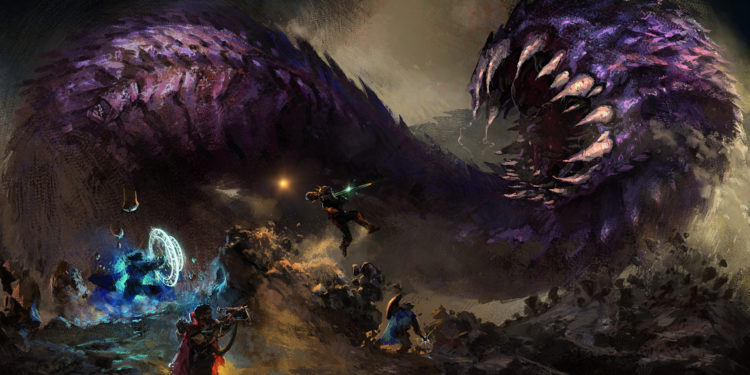

Pseudodragon Venom
Pseudodragon Venom is similar to drow poison in many ways. Some poisoners attempt to refine it to the same strength as drow poison, but it is extremely difficult to work with. It is legal by necessity, because many mages keep pseudodragons as pets or familiars.
- Acquisition: This poison must be harvested from a dead or incapacitated pseudodragon. It requires no further preparation.
- Market Value: 125gp
- Legality: Legal
- Saving Throw DC: 11
- Effect: A creature subjected to this poison must succeed on a Constitution saving throw or be poisoned for 1 hour. If the saving throw fails by 5 or more, the creature is also unconscious while poisoned in this way. The creature wakes up if it takes damage or if another creature takes an action to shake it awake.
Purified Couatl Venom
Couatl venom is different from the venom of most other creature's in that is requires a refinement process to use, and it loses its potency if taken from an unwilling couatl. However, it is extremely useful for a number of legal and illegal practices.
- Acquisition: This poison must be harvested from a willing couatl and then mixed with a small amount of holy water.
- Market Value: 700gp
- Legality: Legal
- Saving Throw DC: 13
- Effect: A creature subjected to this poison must succeed on a Constitution saving throw or be poisoned for 24 hours. Until this poison ends, the target is unconscious. Another creature can use an action to shake the target awake. This effect ignores immunity to the poisoned condition.
Purple Worm Poison
While extraordinarily rare, the venom of purple worms is one of the most deadly poisons in existence. The only reason that it is not outright illegal in most civilizations is the necessity for antivenom.
- Acquisition: This poison must be harvested from a dead or incapacitated purple worm. It requires no further preparation.
- Market Value: 2,000gp
- Legality: Regulated
- Saving Throw DC: 19
- Effect: A creature subjected to this poison must make a Constitution saving throw, taking 42 (12d6) poison damage on a failed save, or half as much damage on a successful one.
Scorpion Venom
Scorpion venom is commonly used by assassins that dwell in the harsh desert climates that scorpions typically roam.
- Acquisition: This poison must be harvested from a dead or incapacitated scorpion. It requires no further preparation.
- Market Value: 115-1,100gp
- Legality: Regulated
- Saving Throw DC: 9-12
- Effect: A creature subjected to this poison must make a Constitution saving throw, taking 4 (1d8) poison damage on a failed save, or half as much damage on a successful one. If the poison has been harvested from a giant scorpion, the damage increases to 22 (4d10) and the saving throw DC increases by 3; the value of the poison also increases to 1,100gp.
Serpent Venom
Serpent venom is relatively common, but still very deadly. It is heavily regulated in most societies. It's only legal uses are in the creation of antivenom and in low doses for the pre-approved deployment of anti-pest traps.
- Acquisition: This poison must be harvested from a dead or incapacitated poisonous snake. It requires no further preparation.
- Market Value: 125-200gp
- Legality: Regulated
- Saving Throw DC: 10-11
- Effect: A creature subjected to this poison must succeed on a Constitution saving throw, taking 5 (2d4) poison damage on a failed save, or half as much damage on a successful one. If the poison has been harvested from a giant poisonous snake, the damage increases to 10 (3d6) and the saving throw DC increases by 1; the value of the poison also increases to 200gp.
Spider Venom
Spider venom is the most common of venoms, but also one of the least potent.
- Acquisition: This poison must be harvested from a dead or incapacitated spider. It requires no further preparation.
- Market Value: 100-200gp
- Legality: Regulated
- Saving Throw DC: 10-11
- Effect: A creature subjected to this poison must succeed on a Constitution saving throw or take 2 (1d4) poison damage.
If the poison has been harvested from a giant wolf spider, the damage increases to 7 (2d6) and the saving throw DC increases to 11. Additionally, the creature takes half damage on a failed save, and if the poison damage reduces the target to 0 hit points, the target is stable but poisoned for 1 hour, even after regaining hit points, and is paralyzed while poisoned in this way. The value of the poison also increases to 160gp. If the poison has been harvested from a giant spider, this damage increases to 9 (2d8) and the value of the poison increases to 200gp.
Sprite Poison
The tiny fey creatures known as sprites make a poisons akin to drow poison, but much less potent.
- Acquisition: This poison is made only by sprites.
- Market Value: 175gp
- Legality: Illegal
- Saving Throw DC: 10
- Effect: A creature subjected to this poison must succeed on a Constitution saving throw or be poisoned for 1 minute. If the saving throw fails by 5 or more, the creature is also unconscious while poisoned in this way. The creature wakes up if it takes damage or if another creature takes an action to shake it awake.
Svirfneblin Poison
Deep gnomes, known as svirfneblin, make their own poison from ingredients found deep within the underdark. Its sole purpose is to hinder their enemy's combat abilities.
- Acquisition: This poison is made only by svirfneblin.
- Market Value: 165gp
- Legality: Illegal
- Saving Throw DC: 12
- Effect: A creature subjected to this poison must succeed on a Constitution saving throw or be poisoned for 1 minute. The target can repeat the saving throw at the end of each of its turns, ending the effect on itself on a success.
Thri-kreen Venom
Thri-kreen venom can quickly render a creature useless, leaving it at the mercy of the poisoner.
- Acquisition: This poison must be harvested from a dead or incapacitated thri-kreen. It requires no further preparation.
- Market Value: 180gp
- Legality: Illegal
- Saving Throw DC: 11
- Effect: A creature subjected to this poison must succeed on a Constitution saving throw or be poisoned for 1 minute. If the saving throw fails by 5 or more, the creature is also paralyzed while poisoned in this way. The poisoned target can repeat the saving throw on each of its turns, ending the effect on itself on a success.
Wasp's Sting
Giant wasps are extraordinarily frightening, and while being stung by one is extremely painful, it is not deadly.
- Acquisition: This poison must be harvested from a dead or incapacitated giant wasp. It requires no further preparation.
- Market Value: 230gp
- Legality: Regulated
- Saving Throw DC: 11
- Effect: A creature subjected to this poison must succeed on a Constitution saving throw, taking 10 (3d6) poison damage on a failed save, or half as much damage on a successful one. If the poison damage reduces the target to 0 hit points, the target is stable but poisoned for 1 hour, even after regaining hit points, and is paralyzed while poisoned in this way.
Witchbane Poison
A creation that seems to have been specially devised just to hamper spellcasters, this poison is often reviled and feared by the magically enlightened. The blue jelly is often smeared upon blades wielded by assassins seeking to end the life of a wizard or sorcerer, and is quite easily identified by those familiar with the effects.
- Acquisition: This poison is made from distilled residuum that is then allowed to evaporate and thicken while under the effects of an anti-magic field.
- Market Value: 700gp
- Legality: Legal
- Saving Throw DC: 17
- Effect: A creature subjected to this poison must make a Constitution saving throw. On a failed save, they lose 1d4 spell slots, starting at level 1 slots and increasing until that many spell slots have been lost. This effect ignores all magical effects that grant immunity to poison.
Wyvern Poison
Slightly more potent than serpent venom, but not quite as deadly as purple worm poison, wyvern poison is the mid-range vehicle of death for assassins with extremely high-priority or powerful targets. It is kept regulated for the creation of antivenom, especially in regions where wyverns are more common.
- Acquisition: This poison must be harvested from a dead or incapacitated wyvern. It requires no further preparation.
- Market Value: 1,200gp
- Legality: Regulated
- Saving Throw DC: 15
- Effect: A creature subjected to this poison must make a Constitution saving throw, taking 24 (7d6) poison damage on a failed save, or half as much damage on a successful one.
Yuan-ti Venom
The yuan-ti are sinister snake-like humanoids, and their poison can be used by those that manage to get their hands on it. While it is cheaper than other venoms of similar strength due to the lack of demand for antivenom, it is much more difficult to find.
- Acquisition: This poison must be harvested from a dead or incapacitated yuan-ti malison or abomination. It requires no further preparation.
- Market Value: 110-150gp
- Legality: Regulated
- Saving Throw DC: 11-13
- Effect: A creature subjected to the poison from a yuan-ti malison must succeed on a Constitution saving throw, taking 7 (2d6) poison damage on a failed save, or half as much damage on a successful one. If the poison has been harvested from a yuan-ti abomination, the damage increases to 10 (3d6) and the saving throw DC increases to 13; the value of the poison also increases to 150gp.
Zealot's Blade
Zealot's blade is a favorite among the rich with little to no actual combat skill that enjoy hunting rare creatures for sport. It does, however, also have many uses in more capable hands.
- Acquisition: Zealot's blade is crafted from potent venom, which is altered to affect a specific creature type.
- Market Value: 6,000gp
- Legality: Legal
- Saving Throw DC: 25
- Effect: A creature subjected to this poison must make a Constitution saving throw, taking 78 (12d12) poison damage on a failed save, or half as much damage on a successful one. This damage ignores resistances and immunities.
Multitype Poisons
Antithesis (Ingested or Injury)
While not technically a poison itself, this oily mixture serves a similar purpose. It contains microscopic parasitic entities that live in oil and feast on magic.
- Acquisition: One must first find or acquire a solution that contains the creatures necessary for this mixture. They are typically found in pools of natural oil that sit along ley lines within the underdark. The oily mixture can then be processed to make it more viscous for application to weapons, or to make it clear in order to be hidden within food or drink.
- Market Value: 1,300g
- Legality: Illegal
- Saving Throw DC: 14
- Effect: A creature subjected to this poison must succeed on a Constitution saving throw. On a failed save, they are infected with a parasitic disease. While diseased in this way, the creature cannot regain hit points through any means other than a short or long rest. Each time it would regain hit points in any other way, it instead takes 4 (1d8) poison damage and can repeat the saving throw, ending the effect on itself on a success.
Basic Poison (Ingested or Injury)
Basic Poison is readily available in any shop that carries alchemical supplies or medicines. It is commonly used as a solution to problems with vermin, particularly rats.
- Acquisition: This poison is created from Twilight wormwood, but can typically be bought from market or crafted from basic poisonous substances.
- Market Value: 100gp
- Legality: Legal
- Saving Throw DC: 10
- Effect: A creature subjected to this poison must succeed on a Constitution saving throw or take 2 (1d4) poison damage. Once applied, the poison retains potency for 1 minute before drying.
Betrayer's Inception (Contact or Ingested)
This poison is a thin liquid that can be applied to any surface, adhering to it until it comes into contact with organic matter, which it quickly seeps into. It is clear, nearly invisible, and odorless, but can be easily identified by agitating the liquid in any way, which causes it to flash violently with varying hues of light. Due to its use in bringing down many nobles and royalty in past generations, it has been banned in nearly every established civilization. Being caught with it on your person is an instant death sentence.
- Acquisition: All recipes for this poison have been destroyed. One can only learn of its nature by asking the right person. Ask the wrong person, and you will be put to death.
- Market Value: ???
- Legality: Highly Illegal
- Saving Throw DC: 22
- Effect: A creature subjected to this poison must succeed on a Constitution saving throw or be poisoned. The poisoned creature feels no immediate effect, and is unaware of their condition. After a week, the creature gains an effect listed on the short-term madness table (DMG 259). When the short-term effect ends, they gain an effect from the long-term madness table (DMG 260). When the long-term effect ends, they gain a new long-term effect as well as an indefinite effect (DMG 260). After each long-term effect ends, they gain a new one until they die or are cured. This effect can only be cured by a greater restoration spell cast at 7th level or higher.


Bloodwine (Ingested or Injury)
This thick, crimson positoxin includes garlic in its creation, making it particularly harmful to vampires and other undead with a vulnerability to garlic. Such creatures have disadvantage on their saving throws to resist the poison's effects. The bloodwine can also be consumed by a living creature, and it remains in the system of that creature for up to 12 hours. Any undead that attempt to consume the creature or drink its blood is affected by the bloodwine as if they had ingested it themselves.
- Acquisition: Bloodwine is made from a precisely distilled mixture of holy water, blood, and fine wine.
- Market Value: 250gp
- Legality: Legal
- Saving Throw DC: 11
- Effect: An undead creature subjected to this poison must succeed on a Constitution saving throw, taking 10 (3d6) radiant damage on a failed save, or half as much damage on a successful one.
Ghost Blossom Extract (Ingested or Injury)
This cruel poison has no physically damaging effects, but causes the nerves in each limb to give the false sense of extreme pain, also causing violent muscle spasms.
- Acquisition: Ghost blossom extract is made from the nectar of the Ghost Blossom.
- Market Value: 420gp
- Legality: Illegal
- Saving Throw DC: 13
- Effect: A creature subjected to this poison must succeed on a Constitution saving throw or be poisoned for 1 minute. If the saving throw fails by 3 or more, the creature drops any items it is holding. If the saving throw fails by 5 or more, the creature falls prone. The poisoned creature is paralyzed. The creature can repeat the saving throw at the end of each of its turns, ending the effect on itself on a success.
Lich Dust (Ingested or Inhaled)
A lich is a legendary creature, and killing its mortal vessel is no easy feat. However, for the poisoner powerful enough to do so, the dust left behind by their cremated corpse can be used as a powerful poison.
- Acquisition: Lich dust is acquired by cremating the corpse of a fallen lich.
- Market Value: 2,400gp
- Legality: Illegal
- Saving Throw DC: 18
- Effect: A creature subjected to this poison takes 35 (10d6) cold damage and must make a Constitution saving throw. On a failed save, the creature is paralyzed for 12 hours. The creature repeats the saving throw at the end of each hour. On a failed save, they take an additional 17 (5d6) cold damage, or take half as much damage and ending the effect on itself on a success.
Tears of the Infernal (Contact or Injury)
This poison is incredibly rare and incredibly dangerous to handle. Putting it in a vial that isn't correctly prepared will melt the glass, and attempting to apply it to weapons that lack magical protection will cause extreme pitting on the metal, often melting right through it. The safest way to handle it is with tools, containers, and vials lined with or made from pure copper.
- Acquisition: Tears of the infernal are a precise mixture of the preserved blood of a powerful fiend and the acid extracted from the glands of an adult black or copper dragon, which is then heated until it becomes a thin, black, viscous liquid.
- Market Value: 7,650gp
- Legality: Illegal
- Saving Throw DC: 22
- Effect: A creature subjected to this poison must make a Constitution saving throw, taking 31 (7d8) acid and 35 (10d6) fire damage on a failed save, or half as much damage on a successful one. This effect ignores all resistances and immunities.
Veinrot Poison (Ingested or Injury)
This poison has a highly noticeable visual effect upon the victim. The veins closest to the surface of the skin become visibly black as the poison begins working its way through a victim’s bloodstream, turning the blood and the vessels into a rotten black ichor.
- Acquisition: This poison is created from the vein lily.
- Market Value: 500gp
- Legality: Illegal
- Saving Throw DC: 13
- Effect: A creature subjected to this poison must succeed on a Constitution saving throw or take 5 (2d4) necrotic damage and become poisoned. While poisoned in this way, the creature's Constitution score decreases by 2. The poisoned creature must repeat the saving throw every 24 hours, taking 5 (2d4) necrotic damage on a failed save. Until this poison ends, the damage the poison deals can’t be healed by any means. After three successful saving throws, the effect ends and the creature can heal normally.
Void's Blood (Contact, Ingested, Inhaled, or Injury)
The flower known as the black lotus is legendary - even amongst the gods. Its properties allow it to be used for a number of purposes: from fulfilling wishes, becoming one with the energies of other planes, and being used in high magic spells. But creating a poison out of the nectar is one of many uses.
The nectar is not inherently dangerous on it's own, but when distilled with a number of highly rare ingredients and dangerous reagents, it becomes the most deadly and volatile substance imaginable - so much so, that it's destructive capability and propensity to absolutely destroy a being - body, mind, and soul - has not only outlawed it in almost every kingdom, but also most worlds and planes - as it is seen as heinous and taboo in it's way to completely sever a being from reality itself (including deities).
- Acquisition: Finding the recipe for this poison is nearly impossible - as many mortal and extraplanar entities have gone out of their way to destroy any and all trace of it's existence. This poison is refined from the extraordinarily rare black lotus flower, and with several expensive and powerful alchemy reagents, including units of dendricite, animite, and chlorophyte - taking several months to produce the silky void black, vaguely luminescent and foggy oil.
- Market Value: Priceless
- Legality: Highly Illegal and Sacrilegious
- Saving Throw DC: 30
- Effect: This silky void of a liquid has no taste, no smell, no texture, never expires, and never loses potency. When exposed to open air, the black oil subsumes a white vapor indiscernible from regular white smoke.
A creature subjected to this poison by any means must make a Constitution saving throw or take 28 (5d10) force, 28 (5d10) poison, 28 (5d10) psychic, and 28 (5d10) aetherion damage, or half as much damage on a successful one. This damage ignores all resistances and immunities. Regardless of if they succeeded the saving throw, they become poisoned. While poisoned in this way, the creature's Hit Points can never recover, they can never regain spells slots, they have their AC reduced by 5, and take 3 levels of exhaustion (even if they were previously immune to exhaustion). The poisoned creature must repeat the saving throw at the end of every turn, taking the same damage on a failed save. After three successful saving throws, the creature is no longer poisoned. If the creature's hit points are reduced to 0 by this poison, it eats away their body, mind, and soul, leaving nothing remaining. They cannot be restored to life by anything short of a wish spell.
Handling this poison is incredibly dangerous - as one wrong move can end up erasing one would-be assailant from existence. Even the process of distilling this deadly, taboo substance will undoubtedly stir the ire of many powerful beings - and some may even take active steps to stop it from coming to existence.
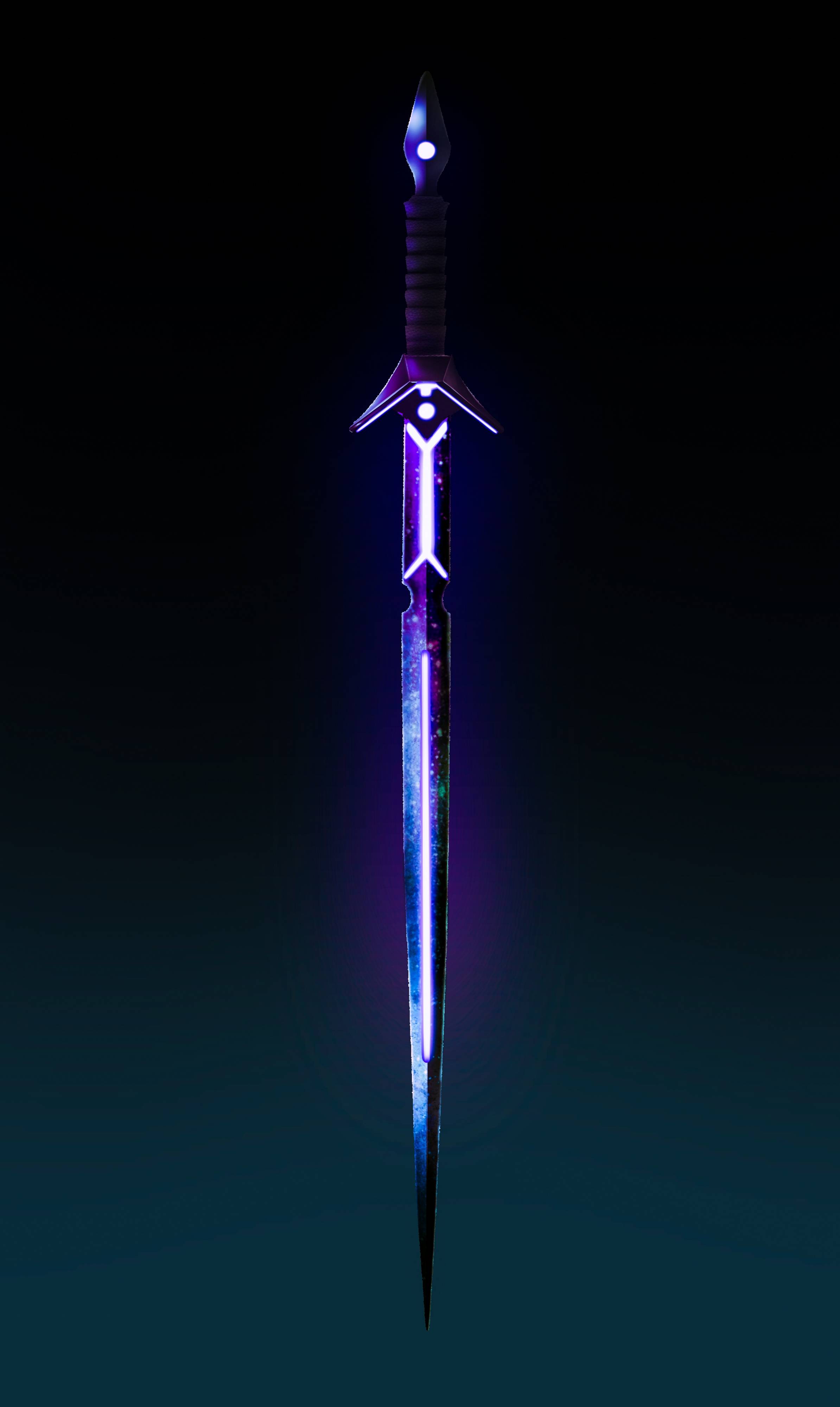



New Magic Items
In this section you will find new magic items for a multitude of adventures. At the end of this section is a set of guidelines for creating your own magical items using a modular system to determine properties and rarity.
Annihilation Javelin
Weapon (javelin), very rare
You gain a +2 bonus to attack and damage rolls made with this weapon.
This may be used as a spellfocus with a +2 to your spell save DC
This fragile, jagged, long section of animite hums faintly, and swirling white hot liquid can be seen racing within. This javelin is energized to it's critical capacity of souls, and is sealed with carved runes that scale up and down it's multi-faceted faces - due to this sealing, these javelins cannot house further souls, nor cast "soul cage".
Special Ability: This javelin has 4 "fragile" points - when all fragile points are expended, the javelin shatters.
The javelin can only be used in the following ways:
- (costs 1 "fragile" point) You can make a melee attack with this javelin, dealing 2d6+2 piercing damage.
- (costs 4 "fragile" points) You can make a thrown ranged attack (30/120 feet) - dealing initial attack damage, and shattering the javelin
Shattered - when the javelin shatters after losing all "fragile" points, it explodes - releasing the liquid animite within:
- The explosion extends in a 30 foot radius, dealing 2d20+10 Force damage, and 2d20+10 Aetherion damage to all creatures. If a creature is dropped to 0 hit points by this damage, they are disintegrated as per the "disintegrate" spell.
Amulet of Titan's Kiss
Wondrous item, legendary (requires attunement)
This seemingly simple amulet is carved from Titan Marrow, and is scrawled with a myriad of intricate runes that are visible only by their barely noticeable inner glow.
While wearing this amulet, you gain a +3 bonus to your natural AC.
Bestows Advantage to all Charisma (Intimidation) and Charisma (Persuassion) checks you make.
Once per dawn, bestows temporary hit points equal to 2x one of your hit dice. These temporary hit points last until the next dawn. (ex: a barbarian with d12 hit dice, rolls a 6 on one, therefore; gains 12 temporary HP until next dawn.)
Bag of Colding
Wondrous item, rare
This white leather bag is a variant of the Bag of Holding. The bag itself it’s imbued magically to keep everything inside of it at 40 degrees Fahrenheit, allowing keeping any perishable chilled and freshed. The bag can hold up to 250 pounds, not exceeding a volume of 64 cubic feet.
Bottled Light
Wondrous item, uncommon
As an action, you can snuff out a single, nonmagical light source up to the size of a large bonfire or multiple smaller light sources (equal to a large sized bonfire). The light is then stored inside the bottle for up to 8 hours. While the light is inside the bottle you can use a bonus action to cause it to shed bright or dim light up to what the original source could shed.
| Source | Size | Bright Light | Dim Light |
|---|---|---|---|
| Candle | tiny | 5 ft | 5 ft |
| Lamp | tiny | 15 ft | 30 ft |
| Torch | tiny | 20 ft | 20 ft |
| Lantern, hooded | tiny | 30 ft | 35 ft |
| Lantern, bullseye | tiny | 60 ft (cone) | 60 ft |
| Bonfire, small | small | 40 ft | 20 ft |
| Bonfire, average | medium | 60 ft | 30 ft |
| Bonfire, large | large | 80 ft | 40 ft |




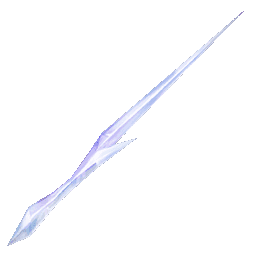
Bow of the Living Land
Weapon (any bow), legendary (requires attunement)
This magical bow is made of living wood, and small buds and flowers grow along it's twisted branches appropriate to whatever the local plantlife is currently like.
You gain a +2 bonus to attack and damage rolls made with this weapon.
This bow may be used as a spellcasting focus.
This bow grows its own living magical +2 ammunition as the string is drawn back - though you may fire any alternate ammunition if you so choose. Any ammunition that is created by the bow withers away and disintegrates into soil and native seeds 1 minute after being fired.
You know which way is east and west, and when it is day or night - by the bow blooming flowers during daytime, and entering Nyctinasty (the process through which flowers close) during night.
Attacks against creatures who possess the Etherealness ability or the Incorporeal Movement ability are made with Advantage - as you seemingly "pin" them to the material plane. Additionally, this bow has 5 charges, and regains 1d4+1 charges daily at dawn. While holding this bow you can cast goodberry at will, or expend 1 charge to cast the hunter's mark spell at 1st level.
Bracelet of Half Shape
Wondrous item, very rare (requires attunement by a druid or a character with wildshape or animal transformation capabilities)
While wearing this bracelet you can halt your Wildshape transformation halfway through into an animal.
While in this form you can still use weapons but not armor, you can also cast cantrips but you can't cast leveled spells. You also gain all the features you would normally get from your transformation.
You can use this ability once per day for free, every time you use it thereafter you gain one level of exhaustion. This count resets at dawn.
Cape of the Wanderer
Wondrous item, rare (requires attunement)
This cloak is made of woven wood and plant fibers, it seems tattered and rough as if it has been on the road for several years - potentially decades.
While worn, this cape makes it's wearer difficult to notice, requiring a DC 15 perception check by onlookers to realize their presence. Once noticed, the wearer cannot be unnoticed by the onlooker until a minute has passed outside their line of sight.
As an action, this cape can thrown into the air and be turned into a 50 foot diameter tent. This tent acts exactly as Mordenkainen's Private Sanctum Once used in this way, it cannot be used again until the next dawn.
Censure of Exorcism
Weapon (flail), legendary (requires attunement by a divine spellcaster)
This holy object is intricately crafted from alchemical silver and gold, and has a tiny sliver of viridium held within it's burning feverus core. An incredibly rare item found exclusively amongst holy groups and ancient orders.
You gain a +3 bonus to attack and damage rolls made with this weapon.
Can be used as a holy symbol for the purpose of divine spellcasting.
When loaded with oil and lit, for the next 10 minutes the area within a 60 foot radius is subjected to the following effects:
- Protection - The area comes under the effect of the protection from evil and good spell for the duration - targeting all outsider types (aberration, celestial, elemental, fey, fiend, and undead) with it's effect extending to anyone within that radius.
- Break Enchantment - All creatures within this radius are no longer charmed, frightened, or possessed by outsiders (aberration, celestial, elemental, fey, fiend, and undead).
- Form-Lock - Shapechangers can't transform or voluntarily end their transformations.
Additionally, if making an attack while the oil is burning, every hit made with the censure deals an additional 1d6 aetherion damage, as well as the following effect
- Dismissal - When making an attack against an outsider (aberration, celestial, elemental, fey, fiend, and undead), you attempt to drive the creature back to it's home plane. The creature must succeed on a Charisma saving throw (DC 20) or be sent back to it's home plane (if it's not there already) - as per dispel evil and good.
Down with Deities?
As the censure does target outsider creatures, and contains within it a sliver of Viridium, all divine creatures are also subject to the effects of the censure - When a deity is in it's presence, it's Divine Rank drops by 1 rank until the censure is removed from their presence.
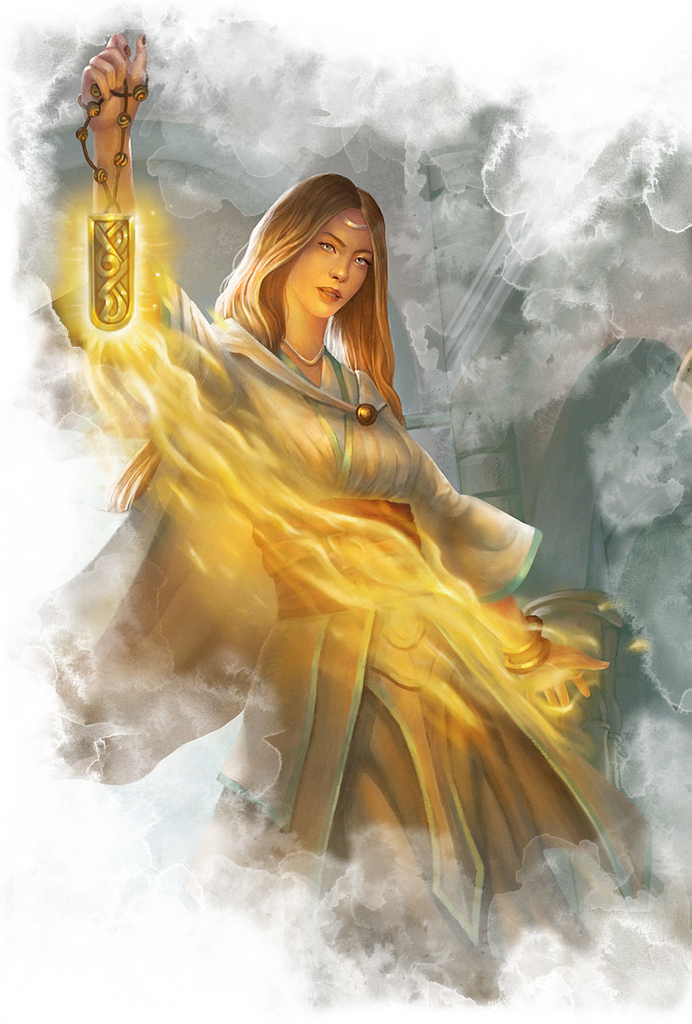
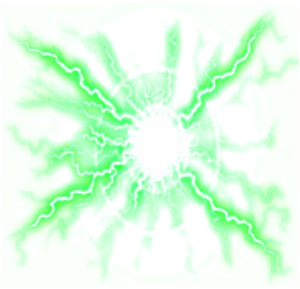
Chalk of Destiny
Wondrous item, legendary
Made from a myriad of ground monster bone, pinches of titan's ivory dust, and several rare alchemical reagents and imbued with the essence of every elemental genie. The recipe for which is thought to have been bestowed to an enchanter by a trickster god.
This piece of chalk has 3 uses that cannot be replenished.
You must write exactly what you want on a flat solid surface at least 5 feet wide and 5 feet tall. The chalk has the capability of altering reality to give you what you requested - as per the wish spell.
Curse. No matter what you wish for, it will always come with some price to pay for it's existence.
For example, you can write that you want infinite riches and you will successfully have it, but with these riches people will never accept your payments even if you offered 100 times more that what they requested - on account of their disdain of you or their absolute hostility with no reason.
You could be a wizard that writes that writes that you can know and cast every single known wizard spell which it will grant you, but when you attempt to cast any spell it could always be one you were not trying to cast, may be the opposite of what you were trying to cast, or you simply take 5d10 necrotic damage each time you cast a spell from magical hemorrhaging.
If you try to trick or con the chalk by writing that what you want won't have any consequences associated with it, the chalk turns to white hot ash and you become cursed. The curse can only be lifted with the wish spell. The DM will roll 1d10 which will determine how many effects there will be to the curse and the DM chooses these effects from the bestow curse spell.
Casting remove curse on the chalk simply turns the chalk to white ash and cannot be restored by any means.
Driftwind Anklets
Wondrous item, very rare (requires attunement)
These mithral anklets are embedded with aerocrystal studs and etched with visages of wind and breath.
While you wear these anklets your move speed is increased by 10 feet, and your Dexterity bonus to your AC is increased by 1.
The anklets have 3 charges and regain all charges at dawn.
Spending a charge and speaking the command word allows you to run on the wind for 10 minutes, giving you a fly speed equal to your move speed - which allows you to dash on the wind as well. Each turn if you do not move while in flight you descend at a rate of 30 feet per round.
Dragonbone Weapon
Weapon (any), rare
You gain a +2 bonus to attack and damage rolls made with this weapon.
When you hit with an attack using this magic weapon, the target takes an extra 1d6 damage. The damage type that is determined by the kind of dragon that provided the bones (see the table). In addition, the weapon glows faintly when dragons are within 120 feet of it.
| Dragon | Damage type |
|---|---|
| Black | Acid |
| Blue | Lightning |
| Brass | Fire |
| Bronze | Lightning |
| Copper | Acid |
| Dragon | Damage type |
|---|---|
| Gold | Fire |
| Green | Poison |
| Red | Fire |
| Silver | Cold |
| White | Cold |
If other dragon types exist in your world, consult your DM to determine the damage types they may confer.

Dragonplate Bulwark
Armor (fortress plate), legendary (requires attunement)
Based on the legends of Haedrig "Wyrmsbane" Olafson: The Dragonslayer Goliath, who in his life had united the goliath clans and brought unyielding wrath upon dragon-kind for the destruction of his homeland. This armor was made to mirror his original plate armor.
Dragonplate bulwark is crafted from the bones of dragonkind, and is impossibly heavy, weighing 130 lbs - Requires a Strength of 20 to wear.
While wearing this armor, you gain a +5 bonus to AC - armor is +3, shield is +2 (totals to 25 AC) - You gain advanced benefits of fortress plate
- Resistance to all bludgeoning, piercing, and slashing damage
- Chest mounted shield - removing the shield drops your AC to 21, but grants you the use of a +4 shield - still totaling to 25 AC.
Dragonstand - You have advantage on saving throws against the Frightful Presence and breath weapons of dragons, and you gain a +3 bonus to Charisma (Intimidation) checks you make.
Additionally, you ignore 10 points of damage done by any dragon-type creatures, as well as deal an additional 10 points of damage to all dragon-type creatures with your physical attacks.
Absorb Breath - when targeted by a dragon's breath weapon, if you succeed on your saving throw against the attack, you absorb part of the breath and are charged.
When charged, you deal 10 points of the designated breath type to all creatures within 5 feet of you - this damage ignores resistance, and treats Immunity as resistance. This ability lasts for 1 minute, and cannot be used again until next dawn.
Ebony Bow
Weapon (longbow), very rare (requires attunement)
Fashioned from corrupted kirinwood, This dark bow was created by an old vampire in a dark ritual using the blood of his ancestors.
You gain a +2 bonus to attack and damage rolls made with this weapon.
When you hit with an attack using this magic weapon, you deal an additional 2d6+5 necrotic damage and you regain hit points equal to half the total damage dealt (minimum 1).
Curse. This bow is cursed, ad becoming attuned to it extends the curse to you. As long as you remain cursed, you are unwilling to part with the bow, keeping it within reach at all times. You also have disadvantage on attack rolls with weapons other than this one, unless no foe is within 60 feet of you that you can see or hear.
Every day you must drink at least a gallon of humanoid fresh blood. For each day you don't drink, you gain 1 level of exhaustion. Finishing a long rest after drinking one gallon of blood reduces your exhaustion level by 1. If you die because of exhaustion, you become a vampire spawn on the next moonlight.
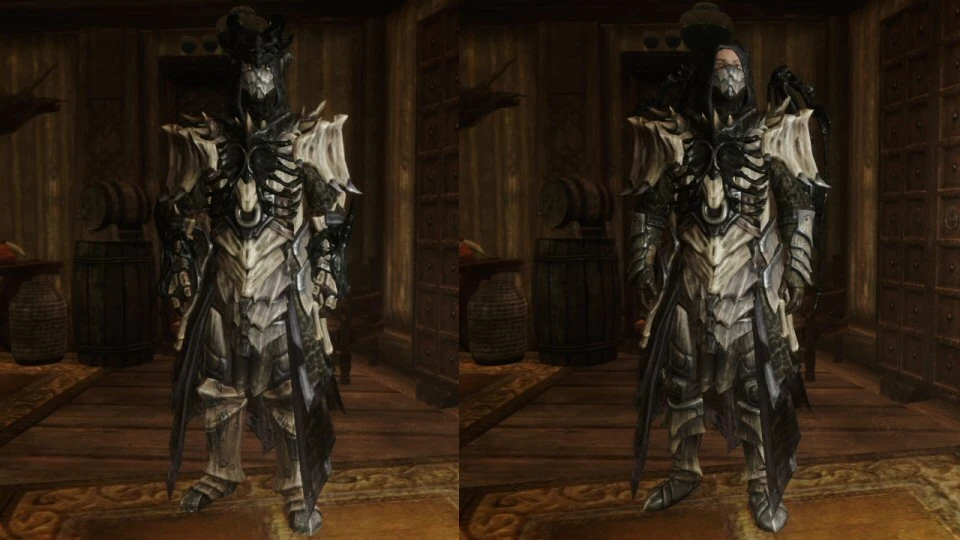

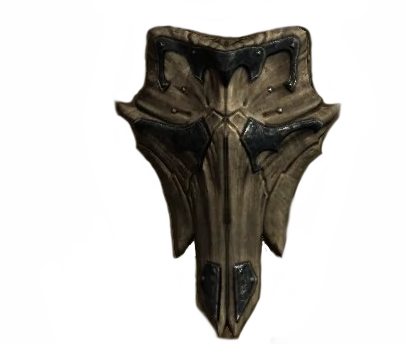


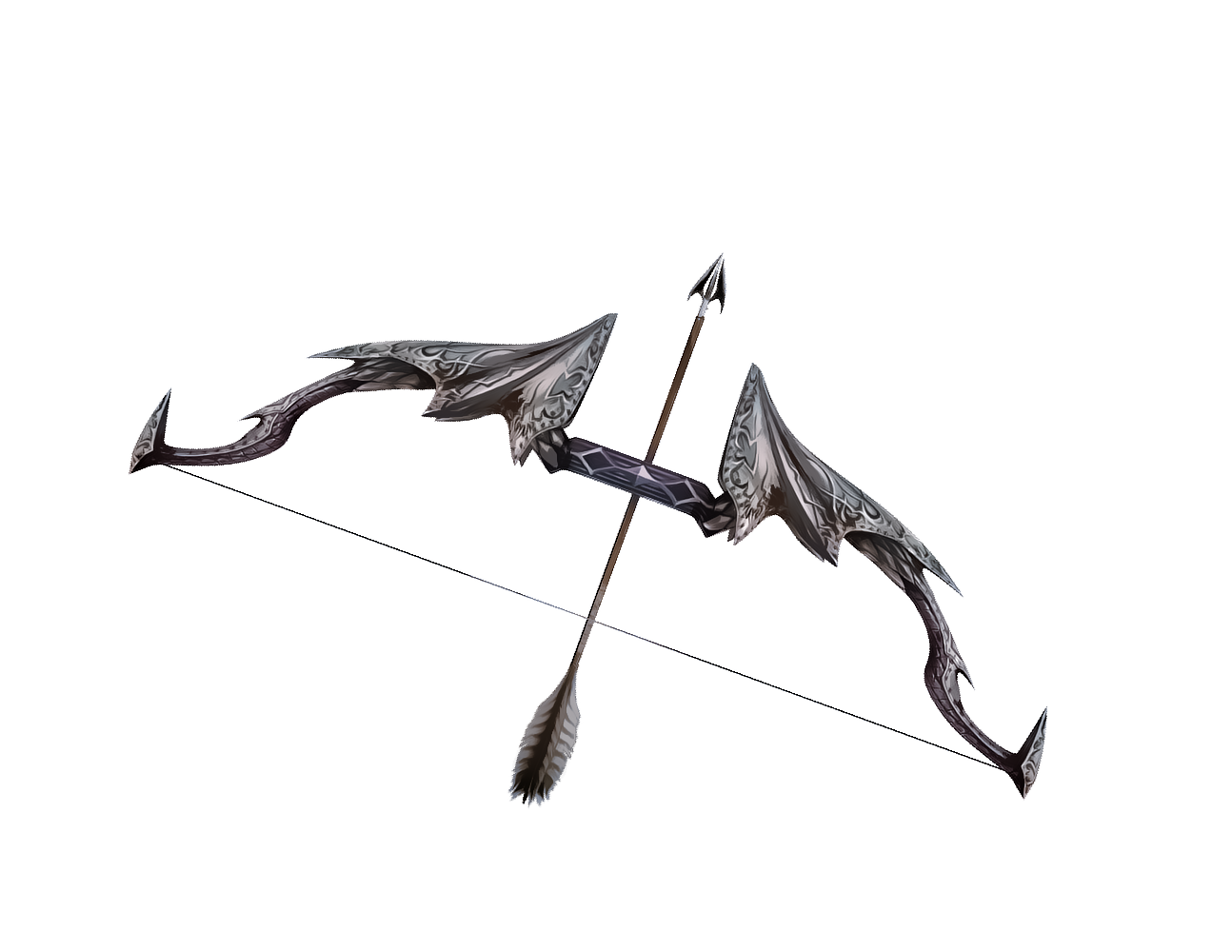
Essence Extraction Device
Wondrous Item, uncommon
This device looks is a leather bracer with a small syringe on the side. It allows its wearer to extract a creature's essence and store it in an empty glass vial connected behind the syringe.
It has 4 charges, and it regains 1d4 expended charges daily at dawn. When you make a check for harvesting a creature, you can extract one unit of the creature's essence. Additionally, if you have a creature part, you can expend 1 charge to transform that part into one unit of the creature's essence - destroying the part, but gaining an essence.
Ghost Weapon
Weapon (any weapon), uncommon (requires attunement)
Crafted with sinister salts, These spectral armaments are carried by ghosts, wraiths and other incorporeal undead creatures. The weapon weights only 1 pound, and can be used only by the creature attuned to it.
A ghost weapon deals necrotic damage instead of its normal damage, and when you hit with an attack using this magic weapon, you deal an additional 2d4 necrotic damage.
Gloves of Crafting
Wondrous item, uncommon
These leather gloves have a hammer and an anvil embroidered on each palm, and allows it's owner to craft items faster. While you're wearing the gloves, you count as two characters when you craft an item, reducing the crafting time to half (rounded up).
Mask of the Medusa
Wondrous Item, rare (requires attunement)
While wearing this mask, you can use an action to cast the flesh to stone spell (save DC 13). You can cast the spell twice per dawn, and you regain any expended uses daily at dawn.
Sunhallowed Spear
Weapon (spear), legendary (requires attunement by a creature of good alignment)
Crafted from celystine, aurorium, and hallowed salts, You gain a +3 bonus on attack and damage rolls made with this magic weapon. If you throw the spear, it flies back to your hand immediately after the attack.
A sunhallowed spear naturally gives off bright light in a 10 foot radius.
A sunhallowed spear deals radiant damage instead of its normal damage, and when you hit with an attack using this magic weapon, you deal an additional 2d6 radiant damage.
If the target is evil aligned, that creature takes an extra 1d6 radiant damage.
When you hit a fiendish creature with the sunhallowed spear, you can reroll the damage and use either result.
Creature Essence Salts - alternate use
Essence Salts are generally used for the creation of magic items that imbue that creature's essence into the fabric and function of the item to be crafted - but they have a generally unique usage in the midst of combat as well:
As a bonus action, you coat a weapon or piece of ammunition with one unit of a Creature's Essence Salt - losing the salt. The next attack you make with this weapon against the corresponding creature type bypasses any damage resistance and treats immunity as resistance. The coating last for 1 minute, or until you make an attack with the weapon.
- Ignan salts - fire elementals
- Aquan salts - water elementals
- Terran salts - earth elementals
- Auran salts - air elementals
- Draco salts - dragons
- Jotun salts - giants
- Sinister salts - undead, cursed and shadowfell creatures
- Jovial salts - fey, otherworldly and feywild creatures
- Profane salts - infernal creatures
- Hallowed salts - celestial creatures
- Psudon salts - aberration creatures


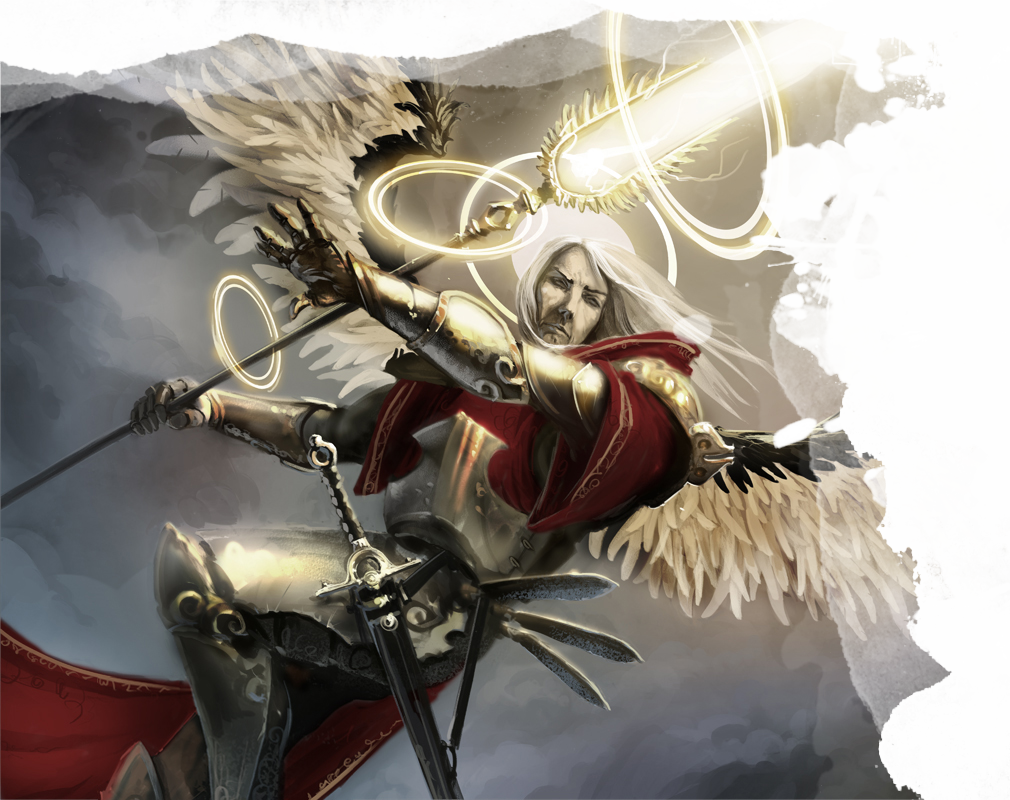


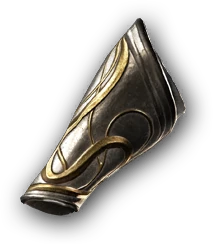
Phial of Determination
Potion, legendary
Crafted by unknown means, these crystalline bottles hold a blood-like liquid with a floating, pulsating crimson spark - seemingly always stuck in place. The phial feels hot to the touch, and smells of sweat and blood.
It is said that only a handful of these exist, and their construction, and origins, are unknown - but what is known is that these are highly coveted - as whole armies have fallen with their aid, and even gods have risen or been slain with these enigmas.
There is only 1 way of using this incredibly powerful potion.
- Crush the entirety of the flask, taking 1 piercing damage. A hot surge of energy rushes through you: The next roll you take is a definitive, natural, critical 20.
Phial of Resurrection
Potion, very rare
A Glowing, golden liquid resides inside this vial, it's contents sparkling and swirling. If held to the ear, a very faint heartbeat can be heard.
If you pour the contents of this potion into the mouth of a dead creature, they immediately come under the effects of the "Resurrection" spell.
Potion of Glibness
Potion, very rare
A favorite of diplomats, royalty, and the particularly shrewd trader - this seemingly liquid silver potion bubbles ever so slightly - and when uncorked, faint, harmonious humming can be heard within.
When consumed, the creature comes under the effect of the "Glibness" spell for 1 hour.
Potion of Primal Savagery
Potion, rare
Found amongst the brutal, wild and the desperate - this potion consists of a yellow-white liquid, which suspends inside it a small, sharp fang. When uncorked, the fang rapidly evaporates and the liquid begins bubbling violently and producing a bloody smelling mist.
When consumed, the creature begins to - painfully - extend both their fingernails into claws, and their teeth into fangs. They come under the effects of a 5th level "primal savagery" cantrip for 1 minute - making their unarmed attacks deal 2d10 slashing or piercing damage (claw or fang).
Potion of Prowess
Potion, legendary
This ghastly, bright, white-blue liquid gives off a faint humming that can be heard even from several feet away. Its contents are always swirling with what look like small figments of bull hair. If the stopper is removed, the hairs within all ignite into white-hot embers, and the liquid begins spinning into a vortex within - a high pitched humming can be heard, and the mixture becomes blinding to look at.
When consumed, the creature begins to glow the same color as the liquid, and comes under the effects of "Tensers Transformation" - without the need to maintain concentration, for 10 minutes.
- You gain 50 Temporary hit points. If any of these remain when the effects end, they are lost.
- You have advantage on attack rolls you make with simple and martial weapons.
- When you hit a target with a weapon attack, that target takes an extra 2d12 force damage.
- You have proficiency in with all armor, shields, simple weapons, and martial weapons.
- You have proficiency in Strength and Constitution saving throws.
- You can attack twice, instead of once, when you take the Attack action on your turn. You ignore this benefit if you already have a feature, like Extra Attack, that gives you extra attacks.
Immediately after the effects end, you must succeed on a DC 15 Constitution saving throw or suffer one level of exhaustion.




Potion of Unleashed Potential
Potion, mythical
This potion is a rarity amongst both mortals and divine.
Sought by kings, tyrants, demon lords, angelic protectors, commoners, and thieves alike - these vials of deep, murky dark purple liquid are spotted with motes of starlight within. The container which holds it seemingly vibrating in place at the raw power held inside it's thin walls.
These potions are incredibly rare, and just finding one will possibly attract attention the likes of which could be extremely beneficial - or horrifyingly terrible.
When the stopper is undone, the contents within begin to exude a wispy fog of purples, blues, blacks, and greys - mottled with with glowing embers of light - and whispers of promises, power, and potential can be heard. The liquid is beyond ice cold.
When consumed, the creature is granted a Wish, as per the "Wish" spell.
Potion of Wrath
Potion, rare
A favorite amongst brutes, warriors, thugs, and soldiers - this pitch black, tar-like liquid produces small bubbles of blood-like bursts throughout itself. Smelling like spoiled blood, burning metal, and pure alcohol, this potion tastes as bad as it looks, and is especially syrupy when poured.
When consumed, the creature flies into a fit of anger, coming under the effects of a barbarian's "rage" - a barbarian drinking this gains additional benefits and does not use a rage point.
While raging, you gain the following benefits if you aren't wearing heavy armor:
- You have advantage on Strength Checks and Strength saving throws.
- When you make a melee weapon Attack using Strength, you gain a +2 bonus to the damage roll.
- You have Resistance to bludgeoning, piercing, and slashing damage.
- If you are able to cast Spells, you can't cast them or concentrate on them while raging.
Your rage lasts for 1 minute. It ends early if you are knocked Unconscious or if Your Turn ends and you haven't attacked a hostile creature since your last turn or taken damage since then. You can also end your rage on Your Turn as a Bonus Action.
Barbarians who drink the potion gain the following:
- You not only have advantage on Strength check and Strength saving throws - but you also gain a +2 to both.
- Your rage damage bonus is increased by 2.
- You not only have resistance to physical damage, but you also ignore 5 points of any damage that is dealt - even from magical.
Power Pole
Weapon (quarterstaff), legendary (requires attunement)
Crafted from Aetherwood - stained with red paint. You gain a +3 bonus on attack and damage rolls made with this magic weapon. Can be used as a spellfocus.
When targeted by a spell attack or similar magical effect, you gain a +3 "Parry" AC bonus to the attack.
This 5-foot staff weighs 3 pounds and does not get heavier regardless of how long it becomes. This staff has 5 charges and regains 1d4+1 charges daily at dawn.
Dodge. Expending one of the weapon’s charges, you can take the Dodge action as a bonus action on your turn.
Stretch. While holding this staff, you can spend a charge and speak its command word as a bonus action to cause it to extend outwards from each end at a rate of 30 feet - per charge - each turn. Each end of the rod only stops extending if you will it to stop, the rod hits a solid surface, or the rod reaches a total extended length of 150 feet.
While stretched, the weapon’s reach equals its length, and you have advantage on Dexterity (acrobatics) checks.
If either end might strike a creature no more than one size larger than you while extending, that creature must make a DC 15 Dexterity saving throw. On a failed save, the rod strikes the target and you may choose whether to stop the rod's extension or will it to continue. If you will it to continue, then you must roll a Strength (Athletics) check contested by the target’s Strength (Athletics) check. If you succeed, then the target is stunned until the rod finishes extending. If you fail, then the rod stops extending.
If both ends of the rod extend and stop at solid surfaces which can hold it in place, the rod can support up to 1,000 pounds. You can make the rod retract by using a bonus action to either let go or speak the command word again. It has AC 15 and 20 hit points.



Tassels of Enchantment
Wondrous Item, rare (+1), very rare (+2), legendary (+3) (requires attunement)
These magical charm tassels are made from a variety of substances - usually carved bone, engraved stones, gilded feathers, or intricately forged metal symbols, and affixed to a series of woven hair, rope or string
You can affix these magical tassels to a weapon, shield or suit of armor. That item gains a bonus to attack and damage rolls if it is a weapon, or a bonus to AC conferred if it is armor or a shield. The bonus depends on the rarity of the tassels, and the tassels cannot be affixed to a magic item.
Vorpal Spear
Weapon (any spear that deals piercing damage), legendary (requires attunement)
You gain a +3 bonus to attack and damage rolls made with this magic weapon. In addition, the weapon ignores resistance to piercing damage.
When you attack a corporeal creature and roll 20 on an attack roll, you impale the creature, killing it instantly. A creature is immune to this effect if the creature is incorporeal, immune to piercing damage, has legendary actions, or the DM decides it is too large to be impaled. Such a creature instead takes an extra 6d8 piercing damage from the hit.
Zephyr Shield
Armor (shield), rare (requires attunement)
This spiraling, bronzed mithral shield is enchanted with a set of intricate runes, forming the image of interlocking vortexes of wind - and weighs incredibly light.
This shield has 5 charges and regains 1d4+1 charges at dawn.
If you are hit with a melee weapon attack while wielding this shield, you can expend 1 charge and use your reaction to blast the triggering creature with strong wind. The triggering creature must succeed on a Strength saving throw (DC 15) or be pushed 15 feet away from you.
In addition you can spend 3 charges to cast the spell wind wall (save DC 15).

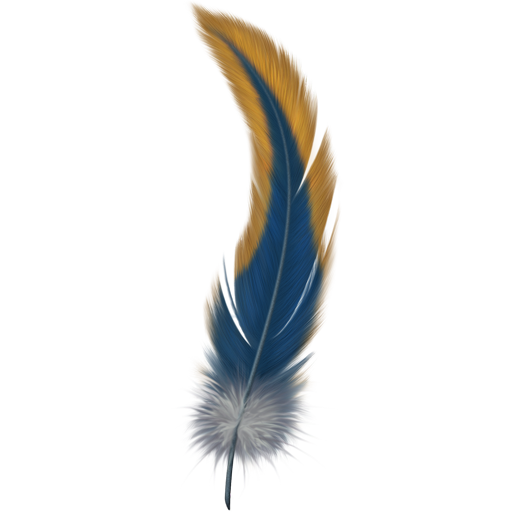




Zetto's Bottled Maelstroms
Wondrous Item, very rare
The primordial power of the destructive forces of nature, barely contained within the flasks in your hand. These elemental bombs are one of the few - but powerful - creations brought upon by the elemental studies of the Legendary Battlemage: Zetto Mildari. When you're too busy to cast a spell in trouble, or unable to set up an oil & alchemists fire bomb - using these flasks can enable adventurers to clear rooms, level structures, and create chokepoints in a matter of seconds.
Fairly simple - yet elegant - in design these glass flasks are covered in gold plated ceramics etched with intricate runes that continuously contain the elemental substance. Upon impact with a hard surface, the flask and ceramics shatter and release the contents within. The ensuing release of energy is both explosive and volatile, resulting in a swirling mass of gyrating elemental energies
As an Action, you can throw the flask. This weapon counts as a "finesse" weapon for the sake of the throw.
Make an improvised ranged weapon attack, up to 60 feet away. The flask explodes upon impact, releasing a swirling maelstrom of the predetermined type:
- A storm of elemental energies spreads from the center of impact out in a radius of 60 feet. This storm lasts for 5 rounds (30 seconds), and is considered difficult terrain.
- All Creatures in the area upon initial impact must make a DC 15 Dexterity Saving throw, taking (4d8) elemental damage and are knocked prone on a failure; or half damage and no prone on a success.
- All creatures who start their turn inside the maelstrom -or walk into it - must make the check above.
Bomb Types
The following table contains the types of Maelstroms found within the flasks.
| Contents Color | Element |
|---|---|
| Lime Droplets | Acid |
| White Frost | Cold |
| Red Flames | Fire |
| Grey Streams | Force |
| Blue Bolts | Lightning |
| Black Fog | Necrotic |
| Silver Sparks | Physical |
| Green Gases | Poison |
| Pink Screaming Faces | Psychic |
| Yellow Flashes | Radiant |
| Purple Pulses | Thunder |
| Multicolor Nebula | Aetherion |
Why not higher rarity - bottled maelstroms?
As with the Annihilation javelins, The purpose for bottled maelstroms being "very rare" as opposed to "legendary" is due to being limited use items. Make no mistake, these are incredibly powerful and legendary.



Zetto's Tomes of Elementalism
Wondrous Item, legendary
These tomes are relics left behind by the legendary elemental wizard and arcane warrior: Battlemage Zetto Mildari. Zetto spent his life focused on the more martial focus of elemental and war magics, living in a time of war against the dragon hoards of ages past, and knowing that not every warrior could wield magic, he focused his studies on ways to derive magic energies in more physical manners. His studies led him to discover and invent various new methods of spells and abiltiies that turned the tide in many a battle against those who stood in his way. His malleable view on magic allowed him to forge the weave into tomes of his choosing, creating books that - when read - would tap into the pools of elemental magic that gave him such great power...for a price.
Raw Conduits - These tomes are written in cipher and a multitude of arcane languages that tap into their respective sources of elements, which when read, are activated, burn pages within the book and the magical reagents that are contained within the writing itself - This activates a conduit into the weave that instills raw power into the reader.
The command words are contained within the front cover of each book. Requiring an DC 15 Arcana Check to properly read and understand. After which, all one needs to do to activate the book is open it to its gilded pages, recite the command word, and witness the symbols, runes, and ciphers magically flitter across each page with extreme speed, and then endure the price that comes with reading the tome...
A Price for Power - After reading the tome, the conduit opened by the weave must now be endured. As pure magic pours from the burning pages, the reader must now be able to face the raw power of their chosen element.
As the raw elemental energies surge through the reader, they must make a DC 15 Constitution Saving throw taking (4d10) damage of the chosen elemental type - or half as much damage on a success - as their body struggles to contain the energy.
After they have succeeded in retaining the energy, their body is now overcharged with raw elemental power - which is now evident by the flaring aura of that element. This power transfers into corresponding elemental spells as well as melee, & ranged attacks.
Unfortunately, the overcharge comes at a price - both of sight and body - as the reader loses their initial sight, becoming blind for the duration. Additionally, the overcharge does not confer any form of superior resistance or immunity to the damage type (save for any pre-existing resistances or immunities the reader may have had.) The reader, hoewever, does take less damage from the elemental type.
Tome of Elementalism
Written by Zetto the Battlemage, This sacrificial tome is inscribed with words of elemental power and serves as a conduit that instills raw energy into those who read the contents within.
Each Tome has 3 Charges, which cannot be replenished once expended. Only 1 charge can be used every 24 hours
-
Command Words A Tome of Elementalism is inscribed with a command Word written in Primordial on the inside front cover (read 'Raw Conduits').
-
Energy Backlash After reading the Tome, one must make a saving throw to endure the tumultuous output of elemental energy being weaved into them (read 'A Price for Power').
-
Elemental Overcharge Once read and endured, the reader is now instilled wtth resonating elemental energy of the chosen type.
-
Sacrificial Tome As the Tome is read, the pages burn with arcane energy and are rendered useless and ruined after being used. After all 3 charges are expended, the book disintegrates into fine white dust.
Elemental Overcharge
The Reader of the Tome becomes overcharged with elemental energy. The following effects last for 5 minutes.
-
Elemental energy wraps and races across your body, creating effects similar to the selected element in the "Elementalism Table". You take 10 less damage of the associated type.
-
The raw flow of power from the tome's pages scours itself into your sight, rendering your normal sight useless for the duration, but gaining blindsight for 60 feet for the duration.
-
Any Creature that moves within 5 feet of you the first time on a turn or ends its turn there takes (1d10) Elemental damage
-
All melee and ranged attacks the reader makes deal an additional (4d10) Elemental damage
-
All spells that deal the associated damage type deal an additional (4d10) Elemental damage more.
-
Spells that do not deal the associated damage type deal an additional (2d10) Elemental damage instead, as the energy warps the spells power output. (A Spell must deal damage in some way for this to apply)
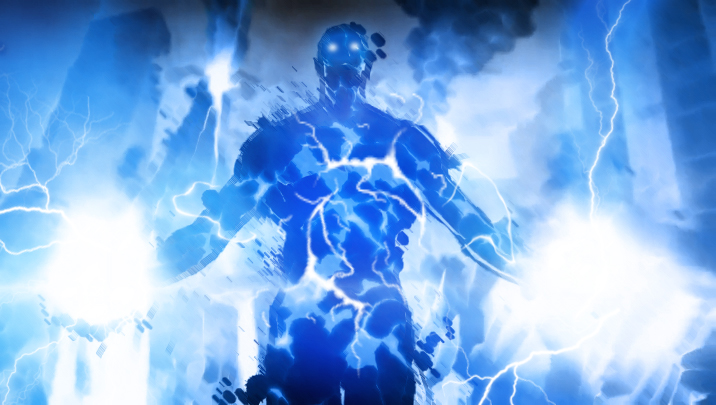



Elementalism Table
The Tomes produce effects according to the elements that are present upon the covers. The Effects are extrapolated upon after the table.
| Tome Color | Element | Effects |
|---|---|---|
| Lime | Acid | Corrosive Pooling |
| White | Cold | Frosted Fog |
| Red | Fire | Fiery Smoke |
| Grey | Force | Shifting Aura |
| Blue | Lightning | Energized Storm |
| Black | Necrotic | Dark Shadows |
| Silver | Physical | Sparking Body |
| Green | Poison | Noxious Gas |
| Pink | Psychic | Dissonant Spirit |
| Yellow | Radiant | Brilliant Aurora |
| Purple | Thunder | Reverberating Moves |
| Multicolor | Aetherion | Omnichromatic Clouding |
Elemental Effects
Here are the visual effects of each elemental overcharge.
Acid - Corrosive Pooling Acid pours and pools off of you, creating an expanding puddle and aura that follows you as you move.
Cold - Frosted Fog A cold fog of frost, snow, and ice swirls around you, freezing the surrounding area.
Fire - Fiery Smoke Fire and embers swirl and dance around you, producing a heated cloud of fiery smoke and flames that burn the area.
Force - Shifting Aura Your movements leave displacing afterimages of your body and your form glows with unnatural arcane force, blasting the surroundings.
Lightning - Energized Storm Electricity arcs and tears around you, forming a mass of energized bolts that strike the vicinity.
Necrotic - Dark Shadows Darkened shadows of decay and death swirl and seep from you, corrupting the area around you.
Physical - Sparking Body Your body is wreathed in a slight aura of sparking metal and dust that lacerates, punctures and strikes everything around you.
Poison - Noxious Gas A cloud of vile and lethal poison pours from you and infects the surrounding area.
Psychic - Dissonant Spirit Your soul warps and flares off of you, becoming visible as a shifting mass of energy and whispers that terrifies or astounds all those who see it.
Radiant - Brilliant Aurora Light flares and flickers all over your body, becoming an extremely bright and shining aura.
Thunder - Reverberating Moves Your body vibrates and resounds with a charged ringing that threatens to obliterate the surrounding
Aetherion - Omnichromatic Clouding You are subjected to a maddening array of all previous Elemental effects above at once, and surrounded by an aura of multichromatic colors.

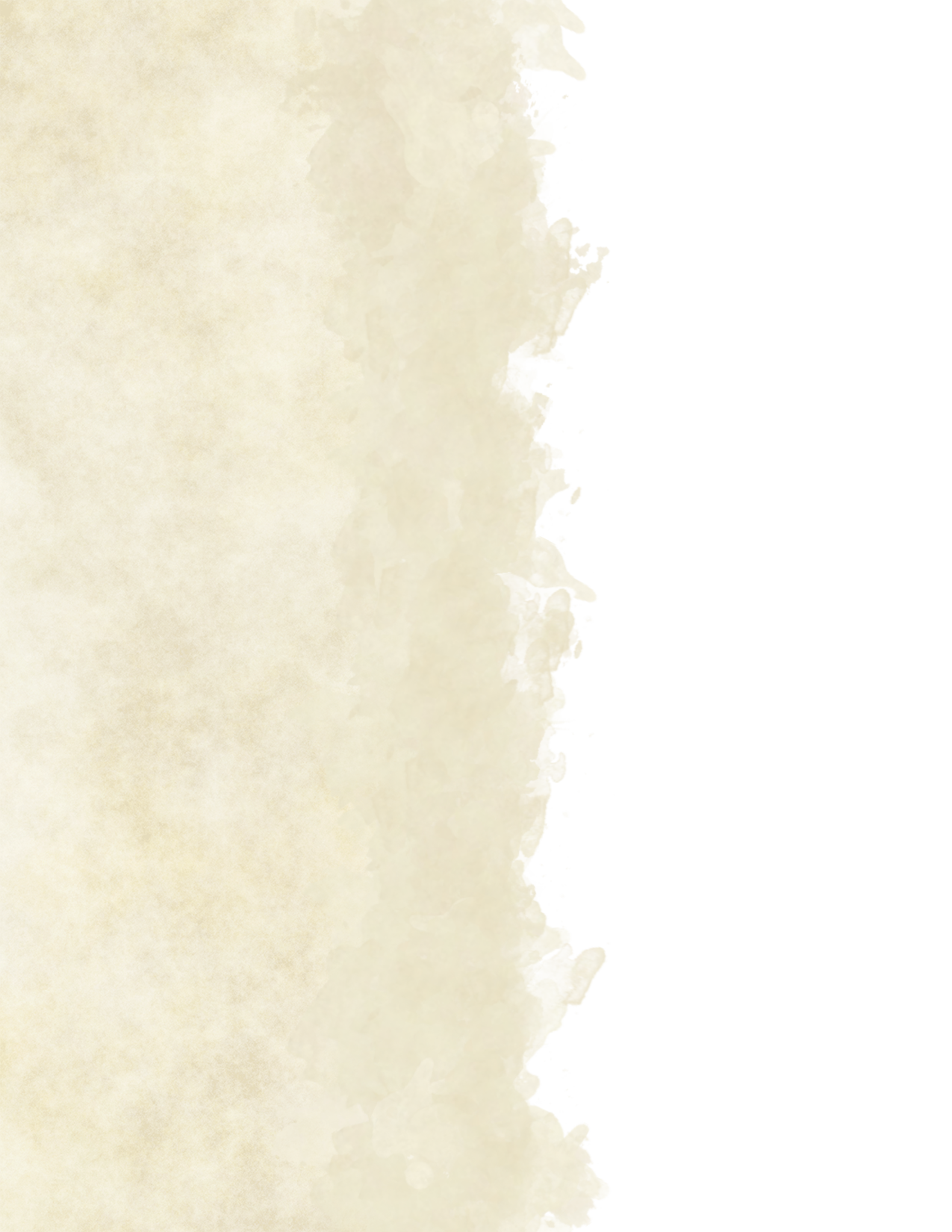
Modular Magic Items
Every magical item has properties which can go from dealing additional damage, giving resistance to a particular damage type, allowing a character to cast spells, increase their attributes and more. This section gives both players and DMs some guidelines to create custom magic items, which can also be crafted using the previous rules.
The character level determines the recommended levels a character should have to gain access to a specific tier. For example, a 3rd level character should have a tier 1 item, while a 9th level character can have a tier 3 item or lower.
A Magical item can only be enchanted or magically altered up to 3 separate times after their initial creation; therefore, a magical item made from exceptionally rare materials and high enchantments to start with will yield a more powerful magical weapon after being further enchanted.
| Character Level | Item Tier | Item's Rarity |
|---|---|---|
| 1st - 4th | Tier 1 | Common |
| 5th - 8th | Tier 2 | Common |
| 9th - 12th | Tier 3 | Uncommon |
| 13th - 16th | Tier 4 | Rare |
| 17th - 20th | Tier 5 | Very Rare |
| 21st - 24th | Tier 6 | Legendary |
| 25+ | Tier 7 | Mythical |
Item Tiers
Any magic item created using these rules have an item tier, which determines the number and rarity of properties for that item. For more information about uncommon and rarer properties, see the "Item Properties" section, below.
A tier 1 item has only a minor property, tier 2 and higher items can have one minor property alongside their other properties that gives a simple feature or effect to it for free.
The following table shows the properties rarity for magic items for every tier.
Property Rarity per Tier
| Tier | Property 1 | Property 2 | Property 3 | Property 4 |
|---|---|---|---|---|
| Tier 1 | Minor | - | - | - |
| Tier 2 | Uncommon | Uncommon | - | - |
| Tier 3 | Rare | Uncommon | - | - |
| Tier 4 | Rare | Rare | Uncommon | - |
| Tier 5 | Very Rare | Rare | Rare | - |
| Tier 6 | Legendary | Very Rare | Rare | - |
| Tier 7 | Mythical | Legendary | Very Rare | - |
| Artifact | Mythical+ | Mythical+ | Legendary+ | Very Rare+ |
Item Properties
In the following tables you can find various magical properties divided by type. It's up to the DM to determine if an item can have the same property multiple times and if its possible to add a property to a particular item. For example, a character can't add the Armor I property twice to a tier 3 magic armor, and that character cannot add the Weapon II or Vampiric II properties since an armor isn't made for dealing damage.
Spells and Charges
If an item has the charges or spell properties, the creator must decide which spell to add when creating the item. The character must have proficiency in the Arcana skill and must provide any material components required for the casting of the spell. Moreover, the character must have the spell prepared, or it must be among the character's known spells, in order to add that spell to the item.
For items with the Spell property, a character can choose only one spell to add. The spell level is determined by the charges in the property rarity. For example, an item that has the Spell III property with the lightning bolt spell, that spell will be cast as a 7th-level spell every time a character uses it.
For items with charges, a character can choose to add various spells. The number of spells and the spell level is determined by the rarity of the property, as shown in the following table.
| Property | Number of Spells | Maximum Spell Level |
|---|---|---|
| Charges I | 1 | 1st |
| Charges II | 2 | 3rd |
| Charges III | 3 | 5th |
| Charges IV | 4 | 7th |
| Charges V | 5 | 9th |
Each charge equals 1 spell slot level. For example, expending 1 charge allows the character to cast a 1st-level spell the item has, and expending 5 charges allows the character to cast a 5th-level spell the item has.


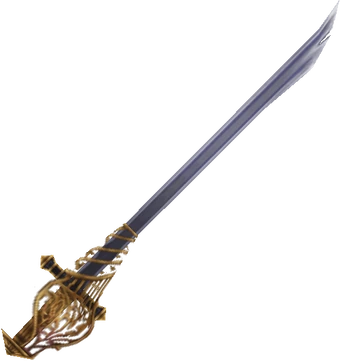
Minor Properties
| Property | Description |
|---|---|
| Beacon I | The bearer can use a bonus action to cause the item to shed bright light in a 10-foot radius and dim light for an additional10 feet, or to extinguish the light. |
| Compass | The wielder can use an action to learn which way is north. |
| Conscientious | When the bearer of this item contemplates or undertakes a malevolent act, the item enhances pangs of conscience. |
| Delver | While underground, the bearer of this item always knows the item's depth below the surface and the direction to the nearest staircase, ramp, or other path leading upward. |
| Gleaming | This item never gets dirty or soiled. |
| Guardian | The item whispers warnings to its bearer, granting a +2 bonus to initiative if the bearer isn't incapacitated. |
| Harmonious | Attuning to this item takes only 1 minute. |
| Hidden Message | A message is hidden somewhere on the item. It might be visible only at a certain time of the year, under the light of one phase of the moon, or in a specific location. |
| Key | The item is used to unlock a container, chamber, vault, or other entryway. |
| Language | The bearer can speak and understand a language of the DM's choice while the item is on the bearer's person. |
| Sentinel I | Choose a kind of creature that is an enemy of the item's creator. This item glows faintly when such creatures are within 120 feet of it. |
| Song Craft | Whenever this item is struck or is used to strike a foe, its bearer hears a fragment of an ancient song. |
| Strange Material | The item was created from a material that is bizarre given its purpose. Its durability is unaffected. |
| Temperate | The bearer suffers no harm in temperatures as cold as -20 degrees Fahrenheit or as warm as 120 degrees Fahrenheit. |
| Unbreakable | The item can't be broken. Special means must be used to destroy it. |
| War Leader | The bearer can use an action to cause his or her voice to carry clearly for up to 300 feet until the end of the bearer's next turn. |
| Waterborne | This item floats on water and other liquids. Its bearer has advantage on Strength (Athletics) checks to swim. |

| Wicked | When the bearer is presented with an opportunity to act in a selfish or malevolent way, the item heightens the bearer's urge to do so. |
| Illusion | The item is imbued with illusion magic, allowing its bearer to alter the item's appearance in minor ways. Such alterations don't change how the item is worn, carried, or wielded, and they have no effect on its other magical properties. For example, the wearer could make a red robe appear blue, or make a gold ring look like it's made of ivory. The item reverts to its true appearance when no one is carrying or wearing it. |
Uncommon Properties
| Property | Description |
|---|---|
| Ability Increase I | Increase an Ability Score to 16 |
| Armor I | The item grants you an additional +1 AC |
| Charges I | The item has 3 charges (DC 11). It regains 1d2 expended charges daily at dawn |
| Damage I | The item deals an extra 1d6 damage |
| Luck I | While this item is on your person, you gain a +1 bonus to ability checks and saving throws. |
| Movement I | The item grants a climbing or swimming speed equal to the walking speed |
| Permaspell I | You can cast one cantrip at will (DC 11) |
| Skill I | The item grants a +5 bonus to one skill |
| Slayer I | The item deals an extra 2d6 damage against a specific creature type |
| Spell I | You can cast a spell at 3rd level once per long rest (DC 11) |
| Vampiric I | On a critical hit, you regain 1 hitpoint |
| Weapon I | You gain a +1 bonus on attack/damage rolls |
Rare Properties
| Property | Description |
|---|---|
| Ability Increase II | Increase an Ability Score to 18 |
| Armor II | The item grants you an additional +2 AC |
| Beacon II | The item shed bright light in a 40-foot radius and dim light for an additional 40 feet |
| Charges II | The item has 5 charges (DC 13). It regains 1d4 expended charges daily at dawn |
| Damage II | The item deals an extra 1d8 damage |
| Defense I | Damage that you take from one damage type is reduced by 5. |
| Luck II | While this item is on your person, you gain a +2 bonus to ability checks and saving throws. |
| Permaspell II | You can cast one 1st-level spell at will (DC 13) |
| Returning | The item has the thrown property (20/60) and it flies to your hand after attacking |
| Sentinel II | The item glows faintly when a creature of a specific type is near (240 feet or less) |
| Skill II | The item grants advantage to one skill check |
| Slayer II | The item deals an extra 3d6 damage against a specific creature type |
| Spell II | You can cast a spell at 5th level once per long rest (DC 13) |
| Supercharged I | The item has 2x as many charges, and regains another die of charges per dawn |
| Vampiric II | On a critical hit, you regain hitpoints equal to half the damage dealt (minimum 1) |
| Vicious I | When you roll a 20 on your attack roll with this weapon, the target takes an extra 7 damage of the weapon's type |
| Weapon II | You gain a +2 bonus on attack/damage rolls |
Very Rare Properties
| Property | Description |
|---|---|
| Ability Increase III | Increase an Ability Score to 20 |
| Armor III | The item grants you an additional +3 AC |
| Beacon III | The item shed bright light in a 80-foot radius and dim light for an additional 80 feet |
| Charges III | The item has 7 charges (DC 15). It regains 1d6 expended charges daily at dawn |
| Damage III | The item deals an extra 1d10 damage |
| Defense II | You gain resistance to one damage type |
| Luck III | While this item is on your person, you gain a +3 bonus to ability checks and saving throws. |
| Permaspell III | You can cast one 2nd-level spell at will (DC 15) |
| Sharp I | When you roll a 20 on your attack roll with this weapon you lop off one of the target's limbs, with the effect of such loss determined by the DM. If the creature has no limb to sever, you lop off a portion of its body instead. |
| Siege I | This item deals 2x damage to objects and structures |
| Spell III | You can cast a spell at 7th level once per long rest (DC 15) |
| Spellguard | While wielding this item, you have advantage on saving throws against spells and other magical effects, and spell attacks have disadvantage against you. |
| Supercharged II | The item has 3x as many charges, and regains another 2 dice of charges per dawn |
| Superiority I | This item's damage ignores resistance to a particular damage type. |
| Swift I | You can make one attack as a bonus action |
| Vampiric III | On a hit, you regain hitpoints equal to half the damage dealt (minimum 1) |
| Vicious II | When you roll a 20 on your attack roll with this weapon, the target takes an extra 14 damage of the weapon's type |
| Weapon III | You gain a +3 bonus on attack/damage rolls |
Materials & Magic
In regards to material bonuses, some guidelines are needed:
- If an item is made with more than one material, the one with the higher bonus to attack/damage rolls or AC overrides the other.
- The Max Magical Bonus for items is +5.


Legendary Properties
| Property | Description |
|---|---|
| Ability Increase IV | Increase an Ability Score to 22 |
| Armor IV | The item grants you an additional +4 AC |
| Charges IV | The item has 9 charges (DC 17). It regains 1d6+2 expended charges daily at dawn |
| Damage IV | The item deals an extra 1d12 damage |
| Defense III | You gain Immunity to one damage type |
| Luck IV | While this item is on your person, you gain a +4 bonus to ability checks and saving throws. |
| Permaspell IV | You can cast one 3rd-level spell at will (DC 17) |
| Sentience | The item is blessed (or cursed) with a form of sentience that is attributed to it's function. Refer to page 214 in the Dungeon Master's Handbook for how this sentience develops and acts. |
| Sharp II | When you roll a 20 on your attack roll with this weapon you lop off the target's head - if it has a head. The creature dies if it can't survive without the lost head. A creature is immune to this effect if it is immune to slashing damage, doesn't have or need a head, has legendary actions, or the DM decides that the creature is too big for its head to be cut off with this weapon - it instead takes an extra 6d8 slashing damage from the hit. |
| Siege II | This item deals 3x damage to objects and structures |
| Spell IV | You can cast a spell at 9th level once per long rest (DC 17) |
| Supercharged III | The item has 4x as many charges, and regains another 3 dice of charges per dawn |
| Superiority II | This item's damage ignores resistance to a particular damage type, and treats Immunity as resistance. |
| Swift II | You can make two attacks as a bonus action |
| Vampiric IV | On a hit, you regain hitpoints equal to the damage dealt (minimum 1) |
| Vengeance | While you hold the weapon, you can use your reaction to make one melee attack with it against any creature in your reach that deals damage to you. You have advantage on the attack roll, and any damage dealt with this special attack ignores any damage immunity or resistance the target has. |
| Vicious III | When you roll a 20 on your attack roll with this weapon, the target takes an extra 21 damage of the weapon's type |
| Weapon IV | You gain a +4 bonus on attack/damage rolls |
Mythical Properties
| Property | Description |
|---|---|
| Ability Increase V | Increase an Ability Score to 24 |
| Armor V | The item grants you an additional +5 AC |
| Charges V | The item has 10 charges (DC 19). It regains 1d6+4 expended charges daily at dawn |
| Damage V | The item deals an extra 2d6 damage |
| Luck V | While this item is on your person, you gain a +5 bonus to ability checks and saving throws. |
| Permaspell V | You can cast one 4th-level spell at will (DC 19) |
| Spell V | You can cast a spell at 10th level once per long rest (DC 19) |
| Supercharged IV | The item has 5x as many charges, and regains another 4 dice of charges per dawn |
| Superiority III | This item's damage ignores both Immunity and Resistance to a particular damage type. |
| Vampiric V | On a hit, you regain hitpoints equal to double the damage dealt (minimum 1) |
| Vicious IV | When you roll a 20 on your attack roll with this weapon, the target takes an extra 28 damage of the weapon's type |
| Weapon V | You gain a +5 bonus on attack/damage rolls |
Artifacts
Artifacts are incredibly rare and powerful objects that maintain a massive amount of magical energies within them, using many a method to craft them.
The properties of an Artifact are heavily steeped in why they were created, and can even have the effects of one or multiple other magical items.
Refer to Page 219 of the Dungeon Master's Handbook for further details for crafting artifacts.
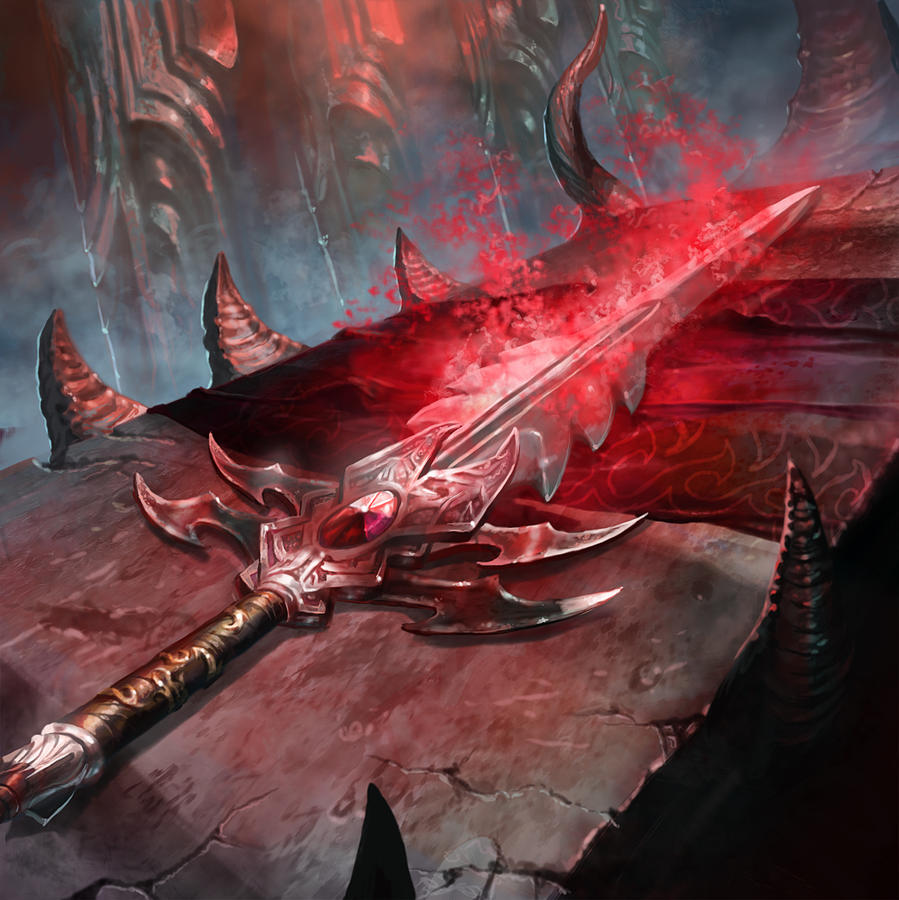

Evolving Items
You can use the modular magic item rules for creating an item that will evolve with a specific character. First, make sure to give something to the item so it makes the character the only one to use it, such as adding a class prerequisite for attuning to the item. You can also link it with the character's story and important events, like being the weapon his father used when he was an adventurer.
Evolving Requirements
To evolve an item to a tier, the character must be at least at the minimum level required for each tier to evolve the item. For example, a 7th level character cannot evolve his or her magic item to tier 3 until reaching 9th level.
Additionally, even if a character has level to evolve the item to the next tier, it's up to the DM to determine an additional task or a triggering event to allow the item to evolve. This requirement gives a bit of background to the item, and also allows the DM to create some special quests to discover the item hidden features. Here're some sample requirements you can use:
- The character must slay a number of creatures with the weapon.
- The item must be placed on the altar found in the top of an abandoned wizard tower, or an ancient grave to the character's ancestors.
- The character must gain a deity or other entity's favor.
- The character must defeat an old enemy of the weapon's creator.
- The item evolves after saving a group of innocents from the claws of a tyrant.
- The character must execute a light (or dark) ritual.
- The item evolves when the character makes a big sacrifice for a personal cause.
Item Tiers and Evolving Items
Whenever an item evolves into a new tier, you can upgrade the properties to a rarer level following the same table from the Item Tiers section.
Tier 1
- Common items without any special property - or a Minor property.
Tier 2
When it evolves to this tier:
- you can add two Uncommon properties to the item.
Tier 3
When it evolves to this tier:
- you can upgrade one Uncommon property to Rare.
Tier 4
When it evolves to this tier:
- the item gains an extra Uncommon property
- you can upgrade one Uncommon property to Rare.
Tier 5
When it evolves to this tier:
- you can upgrade one uncommon property to Rare.
- you can upgrade one Rare property to Very Rare
Tier 6
When it evolves to this tier:
- you can upgrade one rare property to Very Rare.
- you can upgrade one Very Rare property to Legendary.
Tier 7
When it evolves to this tier:
- you can upgrade one Rare property to Very Rare.
- you can upgrade one Very Rare property to Legendary.
- you can upgrade one Legendary property to Mythical.
Artifact
When it evolves to this tier:
- the item gains an extra Very Rare property.
- You can upgrade one Legendary property to Mythical.
- You can upgrade one Very Rare property to Legendary.
- The item also gains additional features with your DM's approval according to the Artifact.
Taking and Replacing Properties
Since these rules are based on evolving the weapon properties instead of changing them to other, I don't recommend replacing one property with another at higher tiers, but it's up to you if you want to do so. For example, replacing the Damage II property with the Vampiric III property when evolving to tier 4.
A reason for replacing properties could be related with the item background story or a very particular event, such as discovering that the item contains the soul of an evil creature, replacing the "good-aligned" properties when the soul is awakened, like replacing the Beacon I property to a Damage I property (necrotic) for a weapon.
Alternatively, you can avoid taking one property at the beginning rarity, and then take a rarer property at higher tiers. For example, when creating an armor, you only choose the Ability Increase I property and leave the second property empty at tier 2. Then, when the armor evolves to tier 3, you upgrade the Ability Increase to II and you also pick the Armor I for the second property.
Triggering Event Example
A 3rd level character is rewarded with Igni, a longsword used by his family for generations to defend the city against evil.
- Since he is a 3rd level character, the weapon is at tier 1, so it's just a basic longsword with a nice name, a background history, and the Guardian minor property (for now).
The character continues its adventures using the longsword, and after some adventures he reaches level 5. In this moment, his father tells him that the longsword has special abilities, and the character needs to prove himself worthy to unleash those abilities. For this, he must destroy an old fire elemental that attacked the city years ago.
- In this case, the character has the first requirement completed (reach level 5 to evolve the weapon to tier 2), but the weapon will not evolve until the character kills the fire elemental mentioned by his father.
After reaching 6th level, the character decides to enter the elemental lair and fight with the creature, and at the moment he destroys the elemental, the essence of the creature is drained by the longsword, and with that the weapon evolves to tier 2, giving the weapon a +1 to attack and damage and an extra +1d6 fire damage on a hit.
Evolving Weapon Example
Igni (Tier 1)
Weapon (longsword), Common (requires attunement)
- Same stats as the longsword found in the Player's Handbook, plus the beacon I minor property (bonus action to cause the item to shed bright light in a 10-foot radius and dim light for an additional 10 feet, or to extinguish the light.)
- Igni is forged from Feverus steel, granting an extra 1d6 (nonmagical) fire damage on strike.
Igni (Tier 2)
Weapon (longsword), Common (requires attunement)
- You gain a +1 on attack and damage rolls made with this weapon.
- When you hit with an attack using this weapon, the target takes an additional 1d6 fire damage.
Igni (Tier 3)
Weapon (longsword), Uncommon (requires attunement)
- Increase the bonus to attack and damage rolls to a +2
Igni (Tier 4)
Weapon (longsword), Rare (requires attunement)
- Increase the additional damage to 1d8 fire damage.
- As an action, you can now cast the firebolt cantrip at will - at your level, using your melee attack as the spell attack. (Increases by 1d10 at 5th, 11th, 17th, 23rd, and 29th level)
Igni, Soul of the Ember (Tier 5)
Weapon (longsword), Very Rare (requires attunement)
- Increase the additional damage to 1d10 fire damage
- As an action, you can now cast the firebolt cantrip at will - at your level, using your melee attack as the spell attack. And as a reaction, you can cast hellish rebuke at 1st level (DC 13).
Igni, Flame of Heroes (Tier 6)
Weapon (longsword), Legendary (requires attunement)
- Increase the bonus to attack and damage rolls to a +3
- Increase the additional damage to 1d12 fire damage.
Igni, Fire of the Gods (Tier 7)
Weapon (longsword), Mythical (requires attunement)
- Increase the bonus to attack and damage rolls to a +4
- Increase the additional damage to 2d6 fire damage.
- As an action, you can now cast the firebolt cantrip at will - at your level, using your melee attack as the spell attack. And as a reaction, you can cast hellish rebuke at 2nd level (DC 15). As an Action, you can can Aganazzar's Scorcher at 2nd level (DC 15).
Igni, The Grand Conflagration (Artifact)
Weapon (longsword), Mythical (requires attunement)
Having tasted the essence of fire elementals, the blood of pit fiends, and the ichor of a dark god - blessed by the ancestors and reforged into a new form: Igni has now transformed into the epitome of fiery wrath.
- Increase the bonus to attack and damage rolls to a +5
- As an action, you can now cast the firebolt cantrip at will - at your level, using your melee attack as the spell attack. And as a reaction, you can cast Hellish Rebuke at 3rd level (DC 17). As an Action, you can can Aganazzar's Scorcher at 3rd level (DC 17). And finally, as an action, you can cast Fireball at 3rd level (DC 17).
- As a bonus action Igni sheds bright light in a 80-foot radius and dim light for an additional 80 feet, or to extinguish the light.
- At the DM's approval, Igni has gained the "Defense III" property - granting immunity to fire damage.
- As per the "Artifacts" section - Igni now gains beneficial and detrimental properties:
- Minor beneficial property: While attuned to Igni, you gain a +1 bonus to AC.
- Major beneficial property: While attuned to Igni, your walking speed increases by 10 feet.
- Minor detrimental property: While attuned to Igni, your complexion takes on the appearance of cracked and scorched skin, with embers dancing between the cracks.
- Major detrimental property: Creatures with a CR of 0, as well as plants that aren't creatures, drop to 0 hit points and are lit aflame when within 10 feet of Igni.
More Info
The original info for materials, crafting items, creature harvesting, enchanting, and more can be found in The Complete Crafter made by AeronDrake.
This Supplemental guide was mostly made to supply more items and themed equipment for my homebrew world of high magic, as well as all others that may benefit from it.
I do not claim any of the content in here as strictly my own, as it has be accumulated through various sources and materials throughout the years - i have merely consolidated it for the purpose of easy access. Some material may be of my own design - or heavily influenced by other sources.
Other References:
- (Me) Spartan127's Pryxis's Pages of Pure Magic
- Matthew Eckart's Poisons for 5th Edition
THANK YOU
Enjoy my Work?
If you enjoy my work and wish to support me, feel free to buy me a coffee!
- My Patreon: patreon.com/Vassal127
